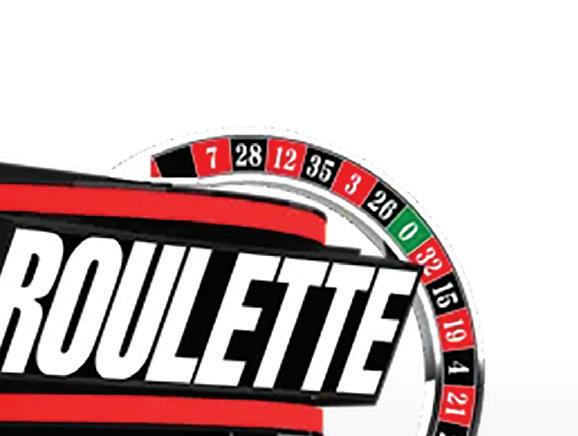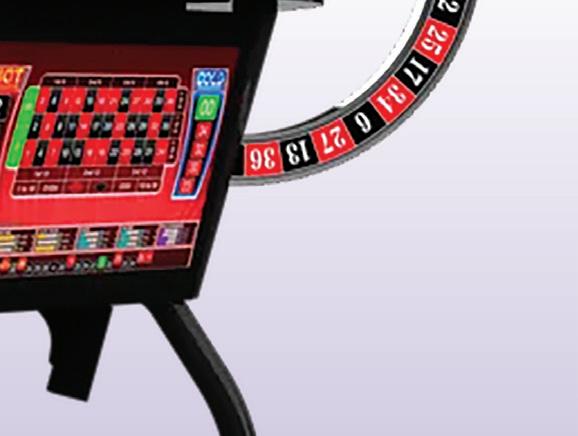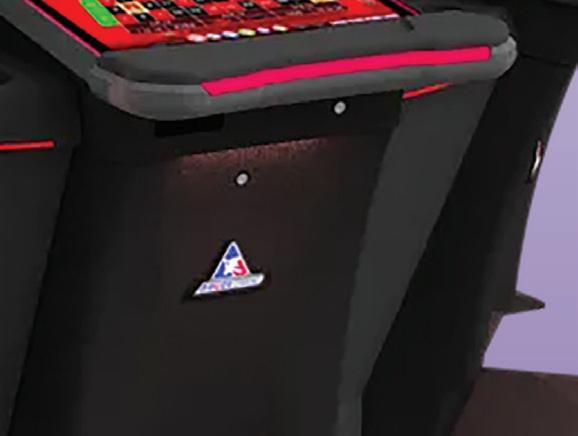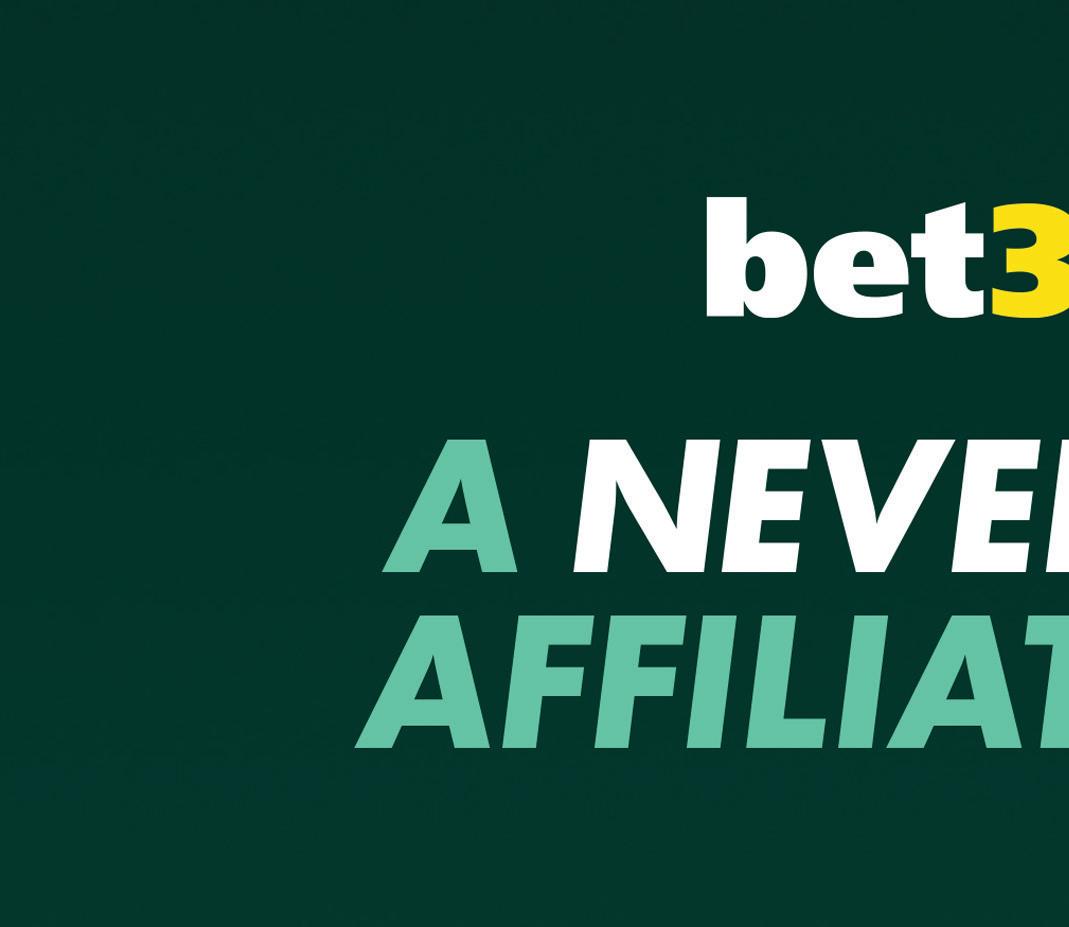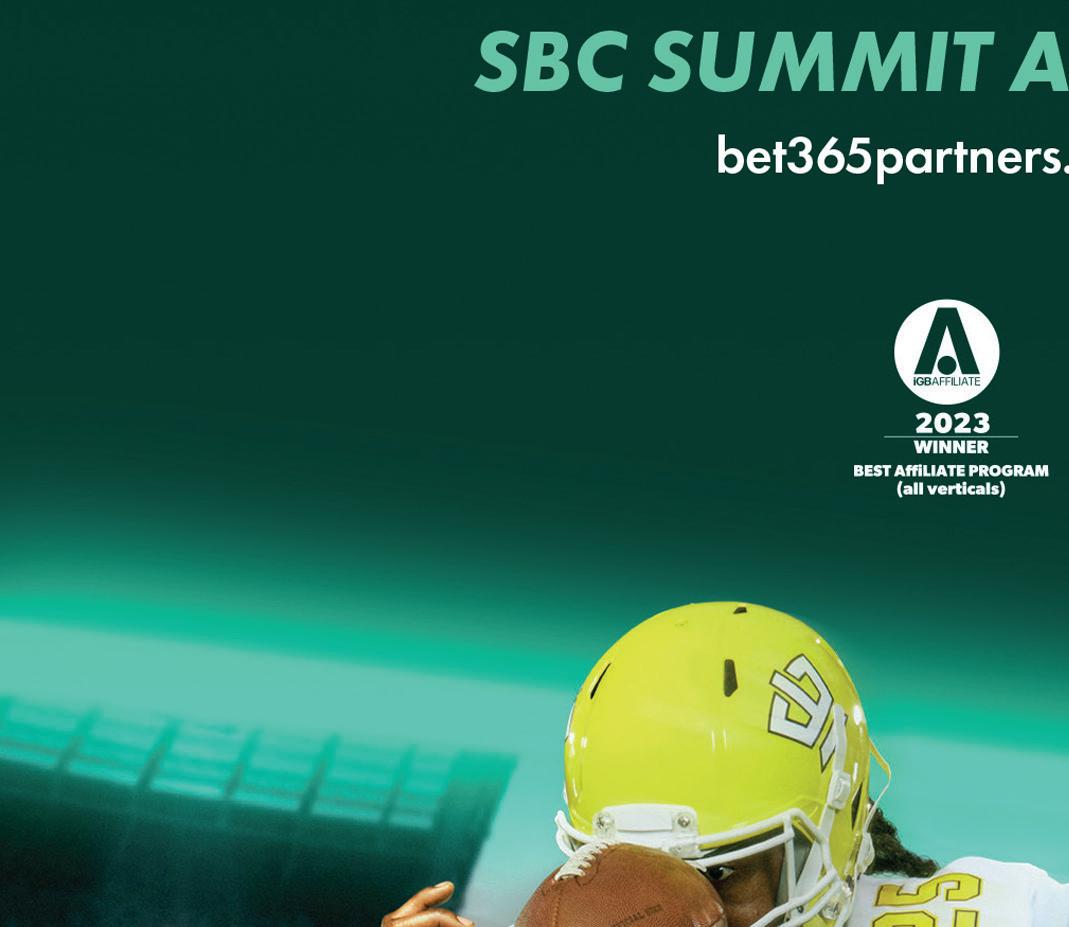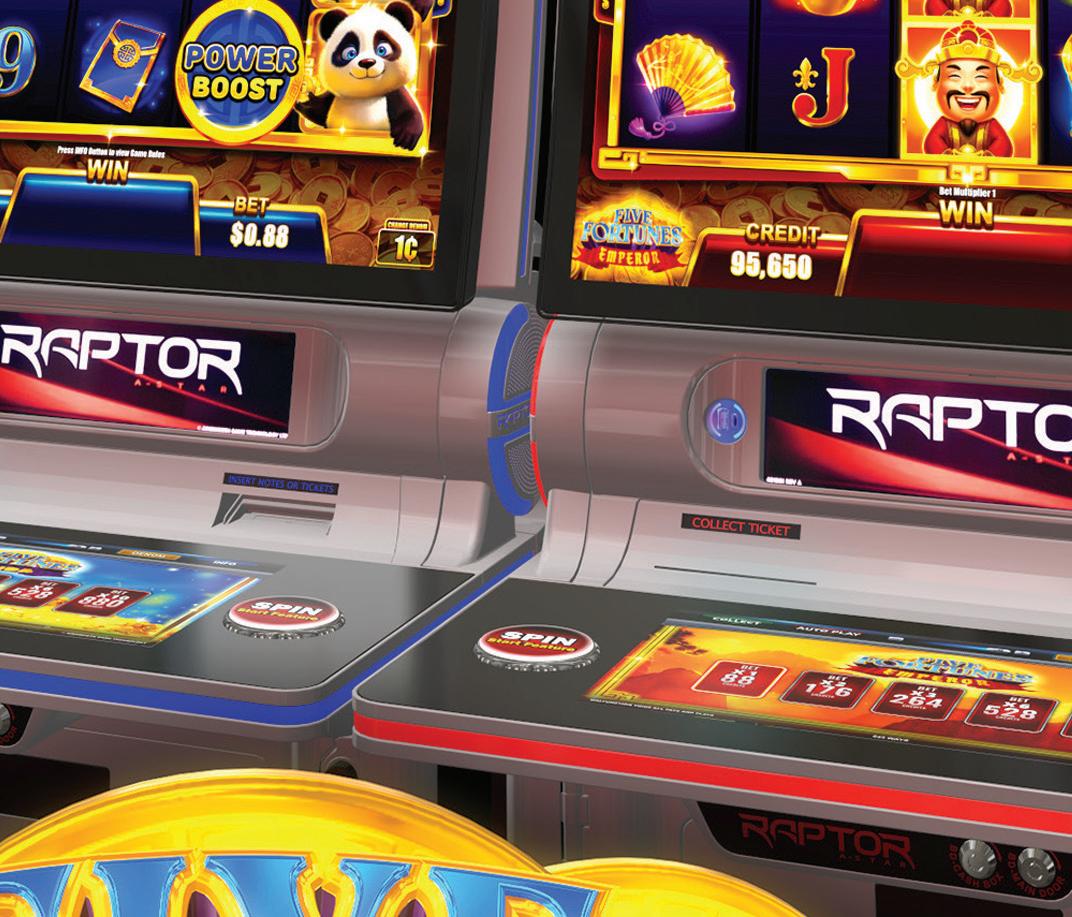


















Gaming America shares insight as to how Interblock Gaming went from a small company meant for developing security systems into one of the global leaders of gaming.

INTERNET VIKINGS: Examining how gaming firms can plan for the Trump tariffs
IGA REVIEW: We look back at interviews from Tribal gaming's biggest show of 2025
LATIN AMERICA: A brand new section focuses on LatAm and, in particular, Brazil











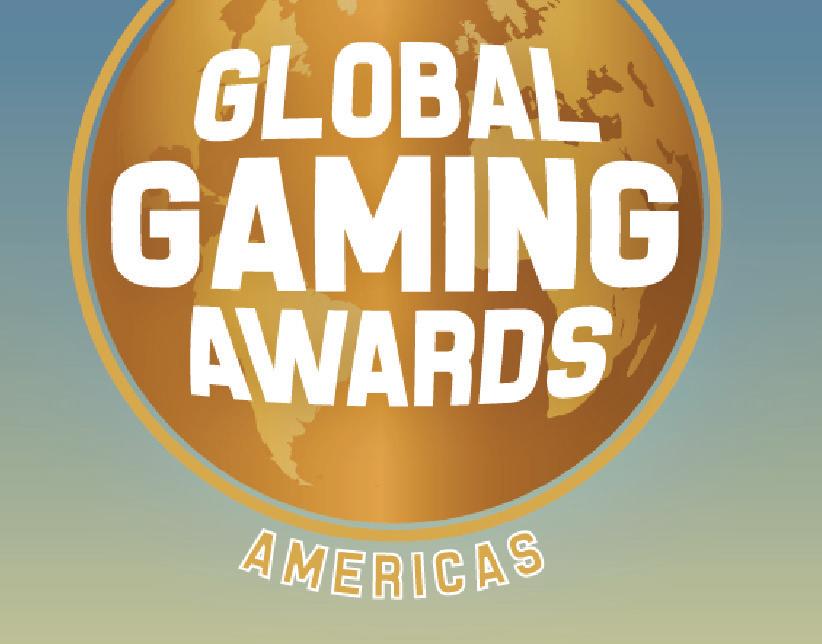








POWERED BY































































































































































































































































































































COO, EDITOR IN CHIEF
Julian Perry
CONTRIBUTING EDITOR
Tim Poole
SENIOR STAFF WRITER
Beth Turner
STAFF WRITERS
Kirk Geller, Laura Mack, Will Underwood
LEAD DESIGNER
Claudia Astorino
DESIGNERS
Olesya Adamska, Callum Flett, Gabriela Baleva
JUNIOR DESIGNER
Medina Mammadkhanova
ILLUSTRATOR
Judith Chan
MARKETING & EVENTS MANAGER
Mariya Savova
FINANCE & ADMINISTRATION ASSISTANT
Dhruvika Patel
PUBLISHING ASSISTANT
Abi Ockenden
IT MANAGER
Tom Powling
COMMERCIAL DIRECTOR
Deepak Malkani
Deepak@playerspublishing.com
Tel: +44 (0)207 729 6279
ACCOUNT DIRECTOR
Michael Juqula
Michael.Juqula@gamblinginsider.com Tel: +44 (0)203 487 0498
SENIOR ACCOUNT MANAGER
William Aderele
William.Aderele@gamblinginsider.com Tel: +44 (0)207 739 2062
BUSINESS DEVELOPMENT MANAGER - U.S. Casey Halloran
Casey.Halloran@playerspublishing.com Tel: +1 702 850 8503
ACCOUNT MANAGERS
Irina Litvinova
Irina.Litvinova@gamblinginsider.com Tel: +44 (0)207 613 5863
Serena Kwong
Serena.Kwong@gamblinginsider.com Tel: +44 (0)203 435 5628
AWARDS SPONSORSHIP MANAGER
Michelle Pugh
Michelle.Pugh@globalgamingawards.com Tel: +44 (0)207 360 7590
CREDIT MANAGER Rachel Voit
WITH THANKS TO: Kevin Nephew, Elizabeth Deegan, Brian Parrish, Joe Maloney, Elliott Rapaport, Rickard Vikström, Kristo er Ottosson, Rita Garry, Rick Arpin, Oliver Lovat, Kimberly Haigh, Joan Botts, Emma Ford, John Connelly, Neil Montgomery, Ana Bárbara Costa Teixeira, Elvis Lourenço, Stephen Crystal, Mauricio Lima, Paulina Hovar, Abhinay Bhagavatula, Tom Light, Andre Gel , Interblock, FabiCash and IGT
2632-766X
The Interblock story is quite a story.
As we sat down with Global CEO John Connelly at IGA 2025, industry-defining trends were rolling off his tongue, notably the creation of new gaming categories – most famously, Electronic Table Games.
That is exactly why Connelly, and Interblock, form the cover feature of this May/June edition of Gaming America magazine. His journey is fascinating, but Interblock's goes even deeper considering how different its original roots were to where it stands today.
Speaking of IGA, it was a fantastic show to attend again this year. The show floor is smaller than G2E's, allowing you to pretty much get from one side of the hall to the other in the space of just a couple of minutes. At the same time, however, everyone who needs to be there is in attendance.
You basically get a less crowded, more personal show – but it is arguably no less productive. As for the conference panels, I've always said IGA does them better than any other show... 2025 proved no different.
As such, we provide write-ups of some of our IGA-based interviews with Tribal leaders in this issue – but it is worth noting that an overarching theme from across the week was the threats Tribes face from new forms of gaming: sweepstakes, daily fantasy 2.0 and, most of all, predictions markets.
As sweepstakes and predictions markets continue to dominate the headlines, our daily news coverage on the Gaming America website is either showing influential figures join an operator (Sara Slane going to Kalshi) or a state outlawing a sweepstakes operator completely (VGW in Delaware, for instance).
Back to this magazine, though, and I am yet to even mention a huge new feature this issue: a dedicated section of Gaming America focusing purely on Latin America.
With the incredible growth of LatAm gaming in recent years, we will now be dedicating specific coverage to the area every issue. And we start this edition with a map outlining some of this year's highest-profile partnerships across Latin America, while we also have expert contributions from Neil Montgomery, Ana Bárbara Costa Teixeira and Elvis Lourenço on Brazil. Our regular viewpoints feature looks at LatAm, too, as suppliers and operators give their outlook on the rest of 2025.










Across our magazine, we have some pioneering female contributors, with three senior female executives featuring from Paragon Casino Resort alone (it's a fascinating property, which has its own alligator atrium!).










But one high-profile female executive who stood atop the industry will sadly no longer be with us. Indeed, on the day of writing this letter, Elaine Wynn has passed away and, to close, Gaming America would like to pay its respects to an important figure in gaming history.







JULIAN PERRY, COO, Editor-in-Chief

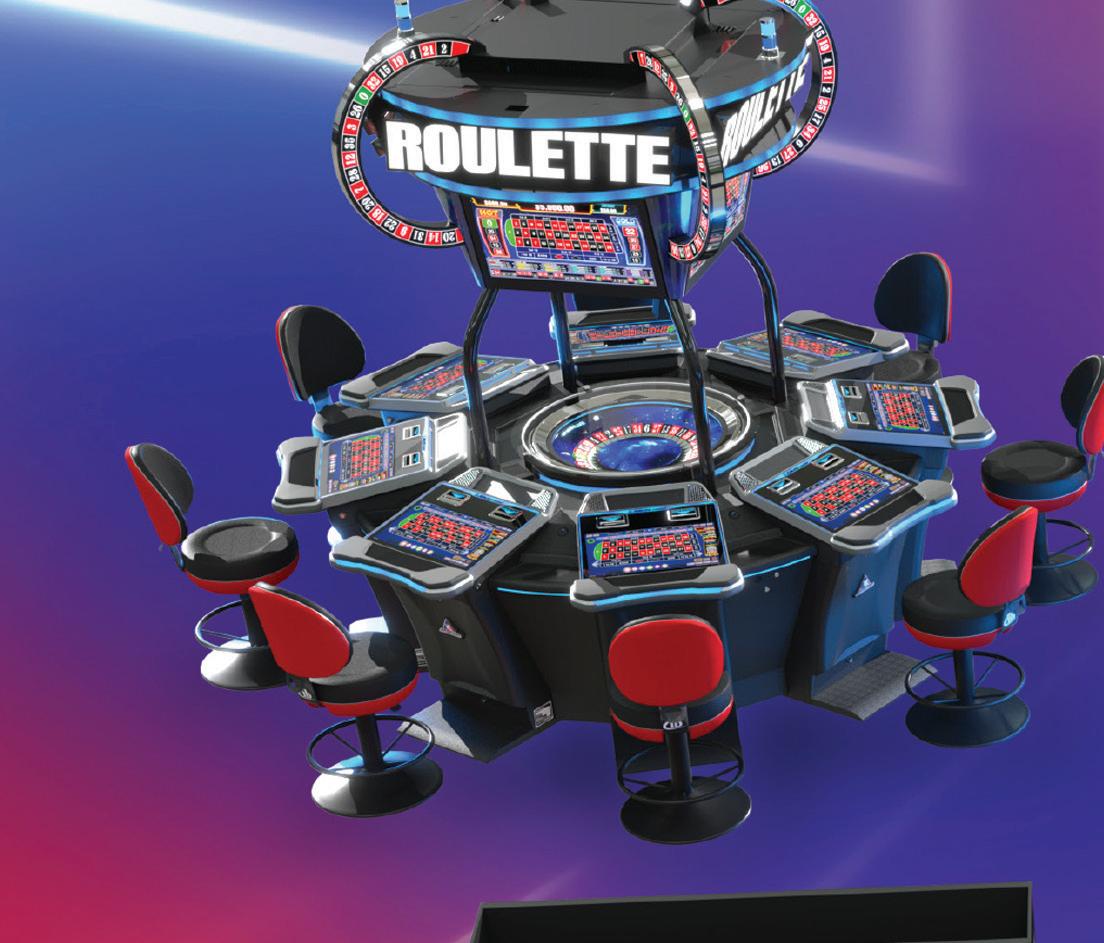
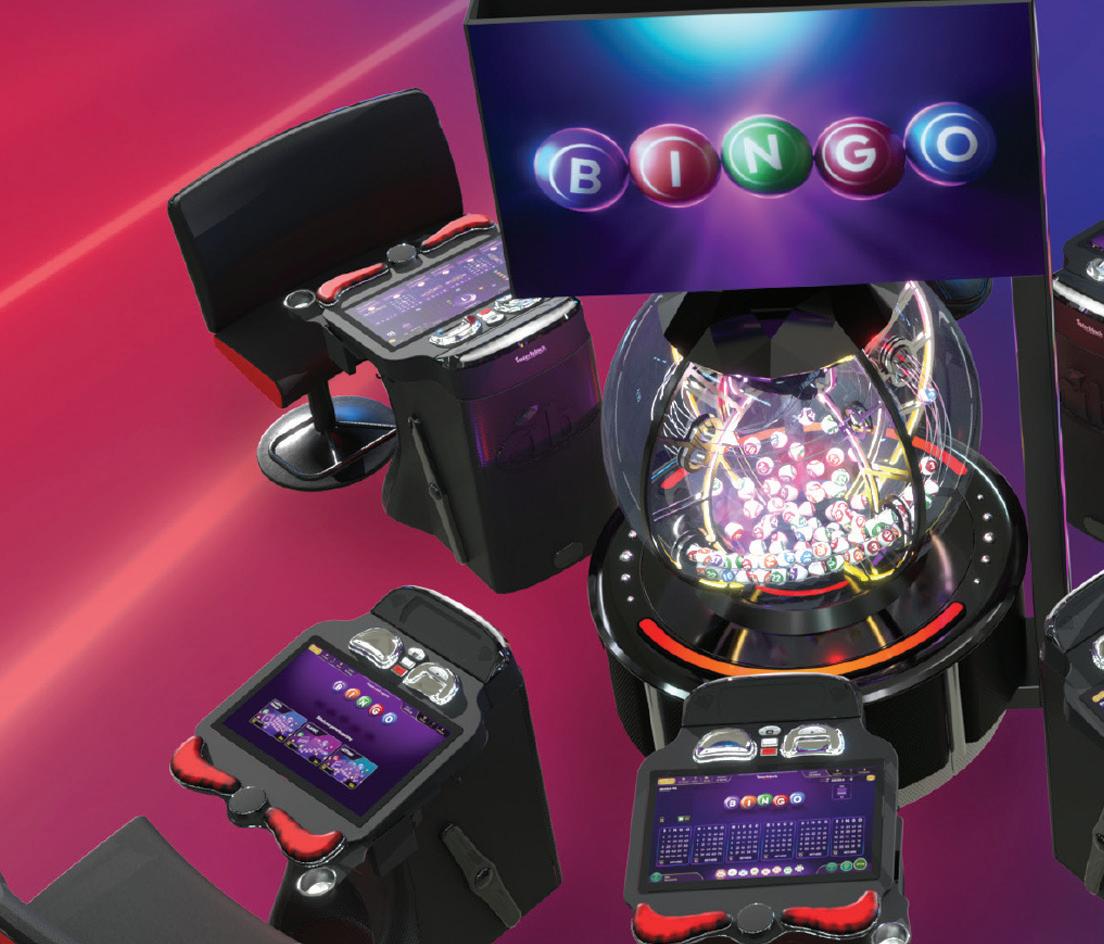
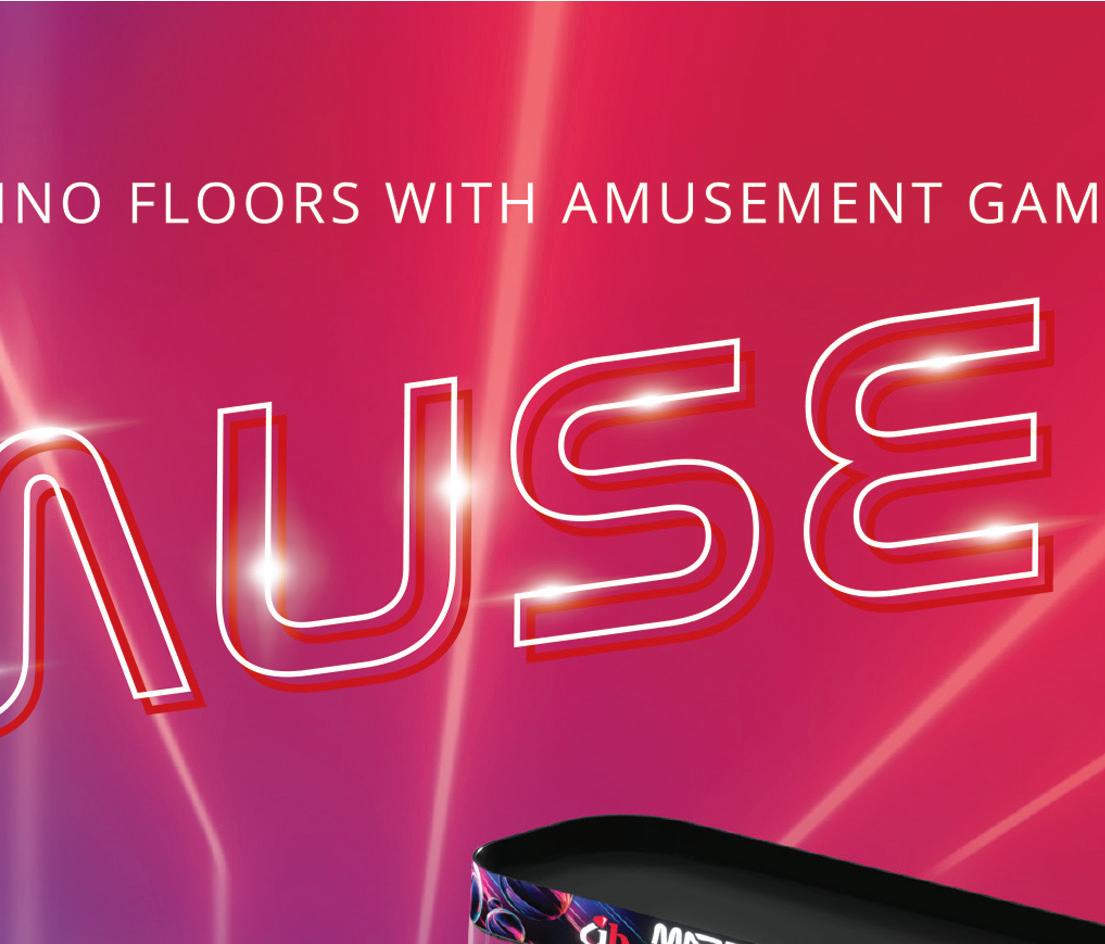
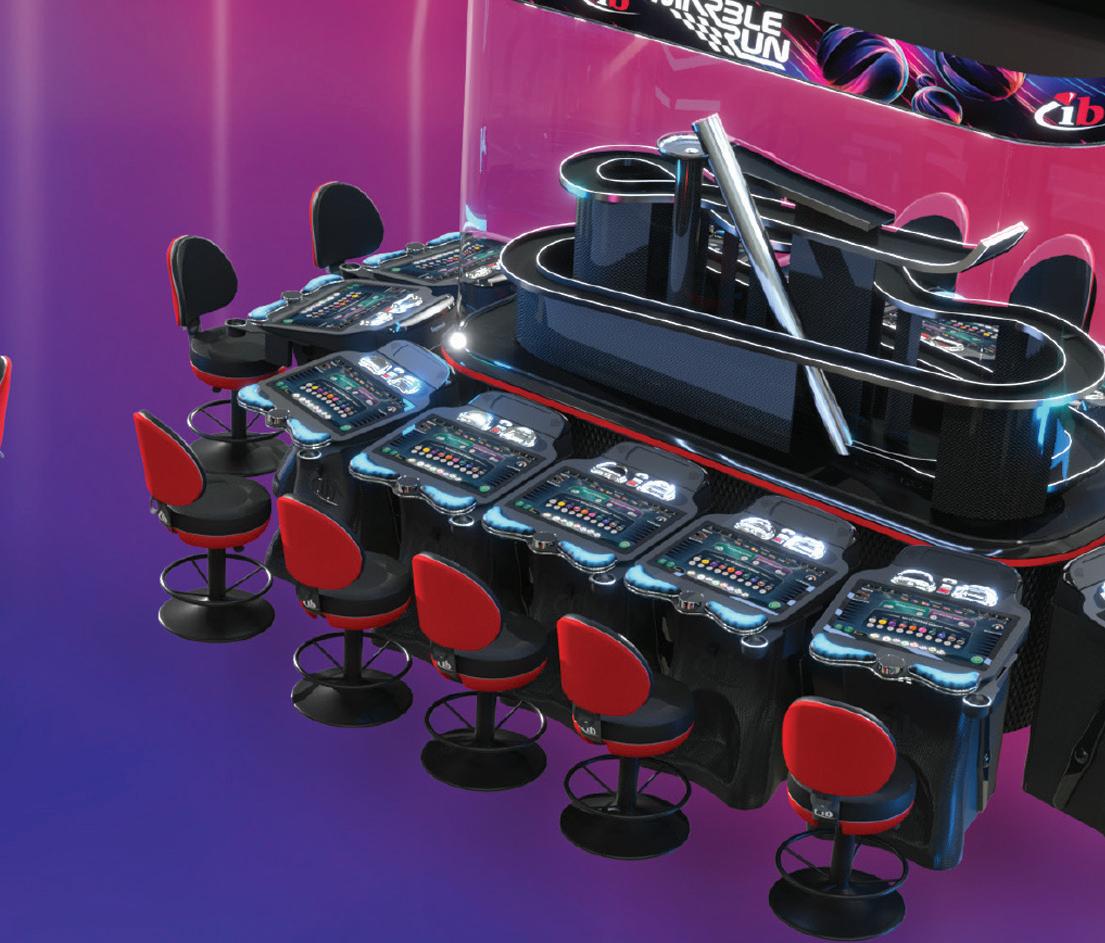
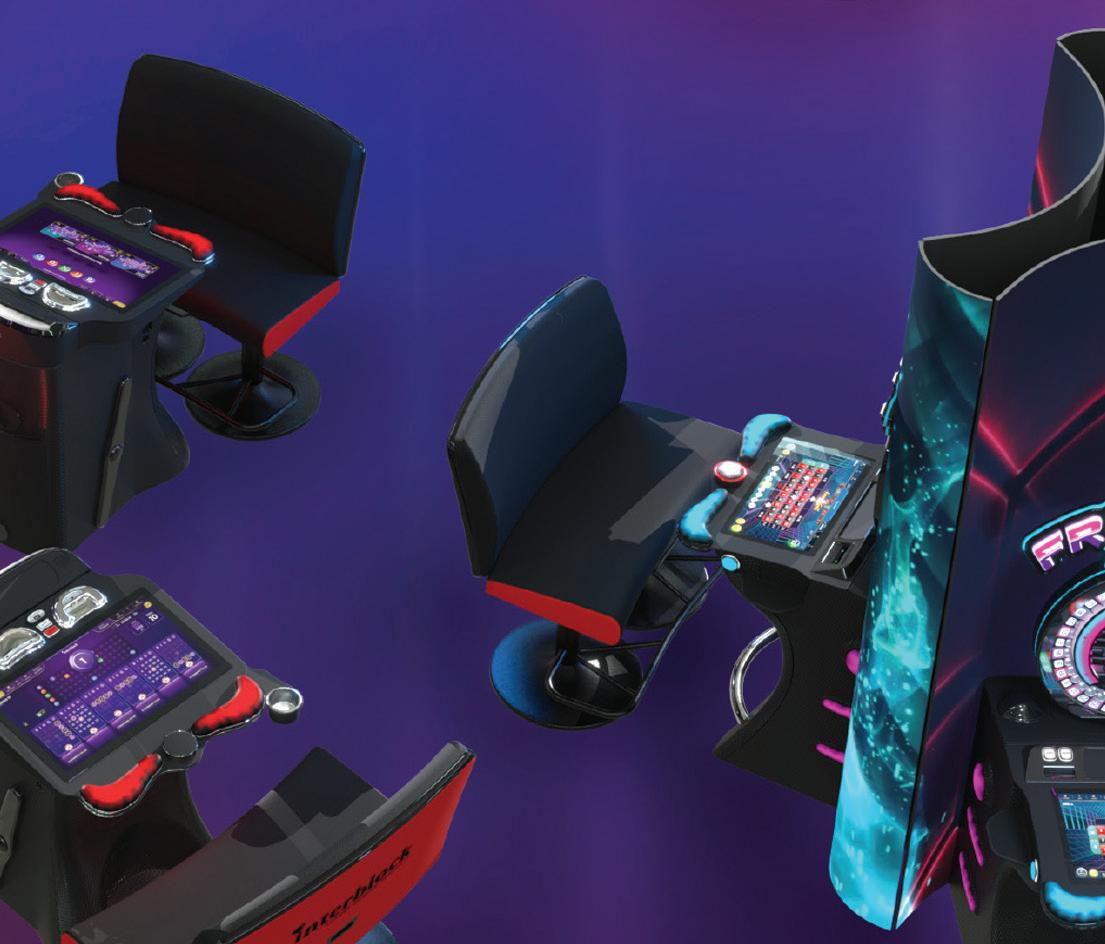
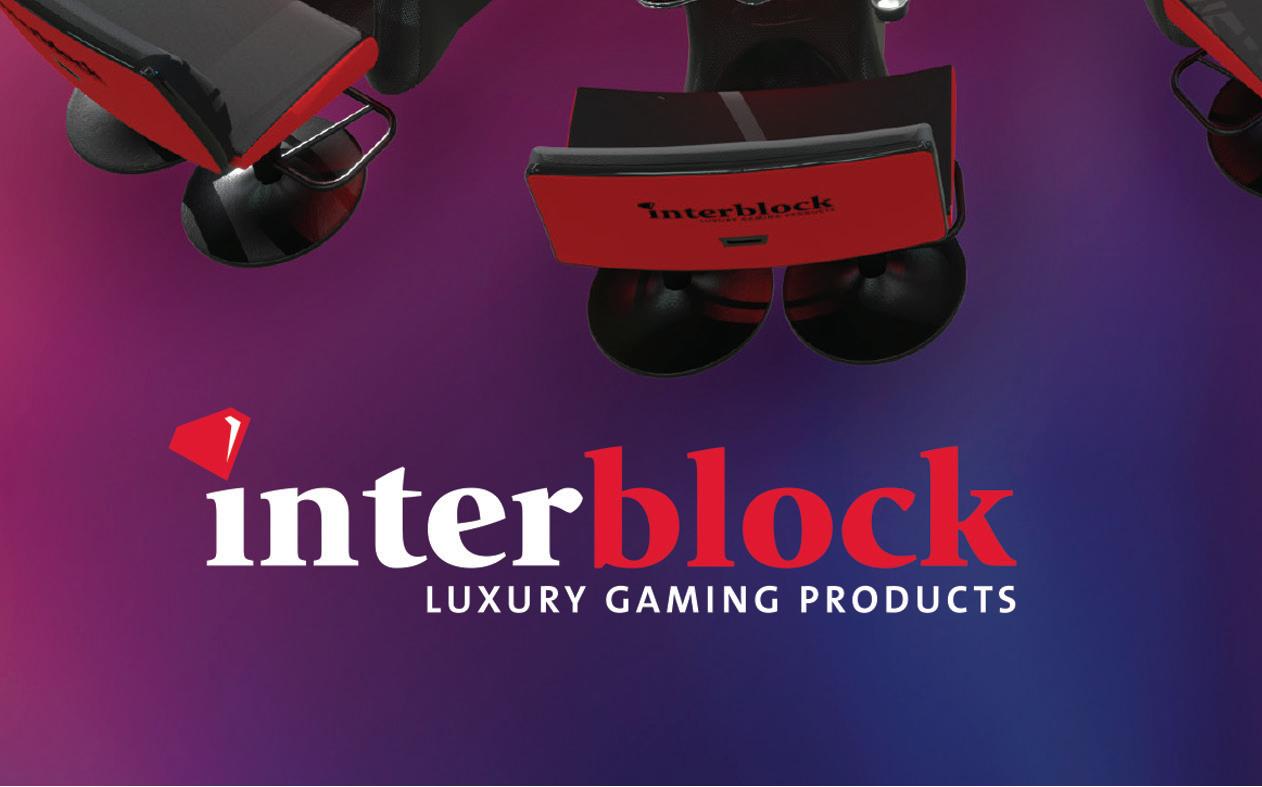


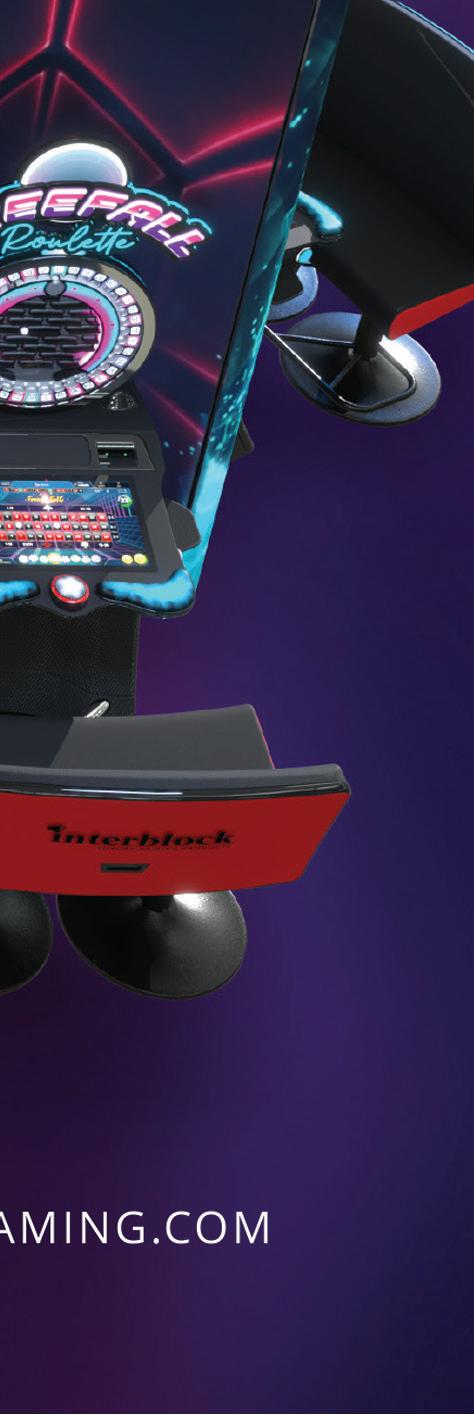

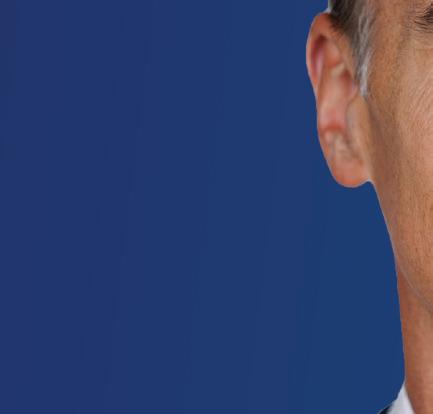
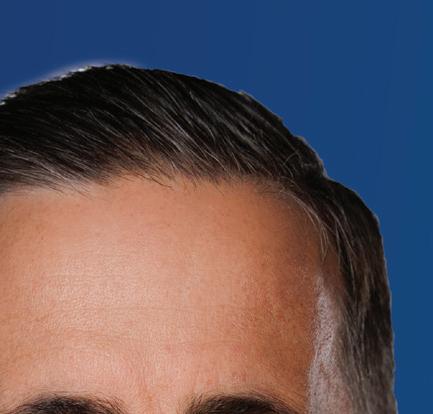
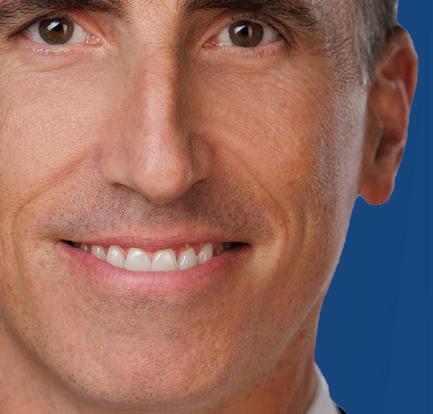









8
Gaming America takes a peek behind the curtain of the upcoming Asia-Pacific and Americas Awards.
Providing a detailed look at the daily fantasy sports (DFS) market, Gaming America goes statewide to see where it is, and is not, a stand-alone option for players.
Gaming America spoke with several Tribal industry leaders at IGA 2025.





16
American Gaming Association SVP of Strategic Communications Joe Maloney discusses responsible gaming messaging and the association's Play Smart from the Start campaign.
18
Birches Health Founder & CEO Elliott Rapaport explains the facts of problem gambling and need for the industry to create aid, tools and treatment.





20
Internet Vikings’ CEO and COO discuss remaining stable in a continuously moving market.
Howard & Howard Attorneys’ Rita Garry explores the importance of monitoring, measuring and assessing data policies.
24
Rick Arpin of KPMG US looks into exchange betting and prediction markets.
Regular contributor Oliver Lovat breaks down the state of the Las Vegas Strip, and asks: How can it keep up with the times?
32
We speak with three female leaders at the Paragon Casino Resort in Louisiana, a property where they even have an alligator sanctuary...
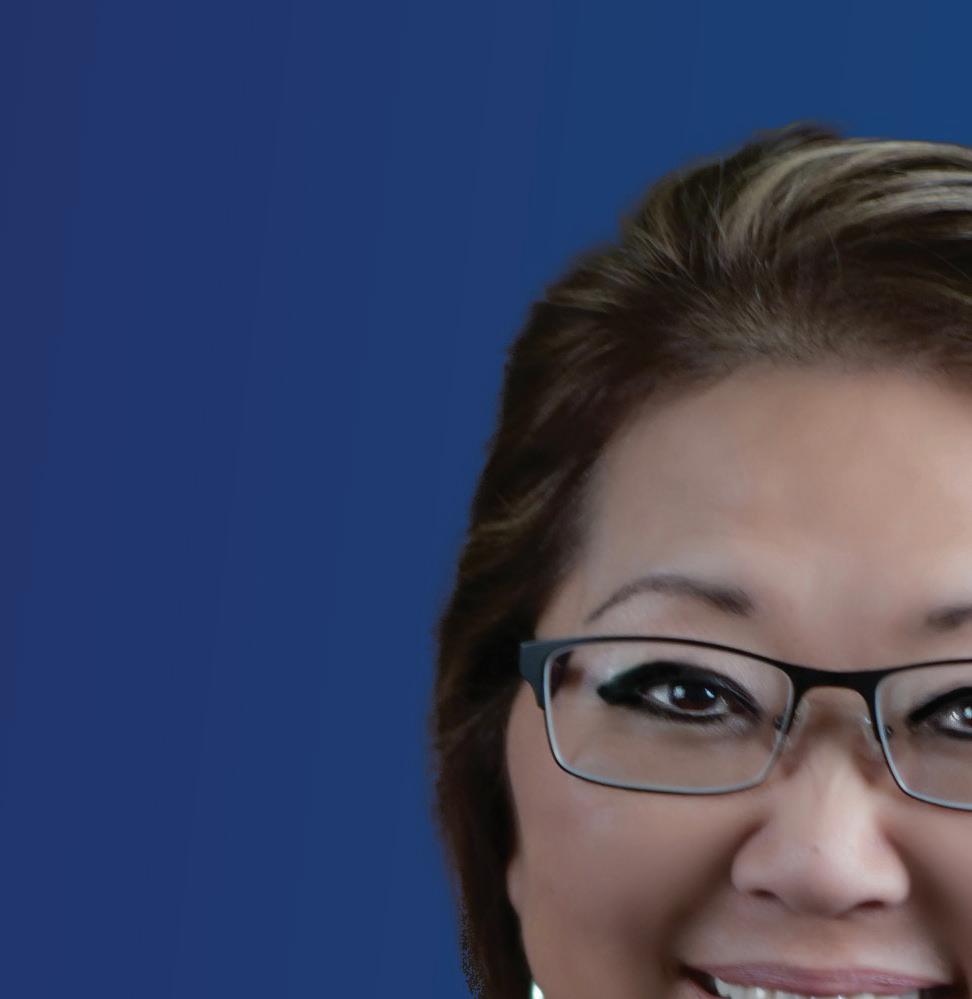












36 THE INTERBLOCK STORY
Gaming America looks back on the history of one of the industry’s leading suppliers. 46 A DEAL'S A DEAL
Gaming America provides a detailed look at partnerships undertaken by gaming companies across regulated LatAm markets.
48 ONE DOWN, THREE TO GO
Gaming America regular contributor Neil Montgomery reflects on the first quarter of a regulated online gaming market in Brazil.
50 AN INFLUENCED MARKET
Brazilian lawyer and AMIG Founding Member Ana Bárbara Costa Teixeira discusses the impact of influencer marketing on Brazil’s gaming industry.
54 OPERATOR POV
Aposta Ganha Chief Product Officer Elvis Lourenço looks back at Brazil’s year so far, and what may come in the future.
56 VIEWPOINTS
Executives from across the industry provide insight on the latest developments from the LatAm market.
62 PRODUCT REVIEWS
Gaming America surveys the latest gaming innovations, including those from companies such as FABICash, IGT and Interblock.

Gaming America previews the Global Gaming Awards Asia-Pacific 2025 while looking ahead to the Americas presentation in Las Vegas set to be held in October.
On March 17 2025, the nominations window for the Global Gaming Awards Americas 2025 officially opened, with the industry’s most prestigious Awards returning to Las Vegas for a 12th consecutive year. The event will be held at the Venetian Resort Las Vegas during the Global Gaming Expo (G2E) conference in October.
However, prior to this celebration, the Global Gaming Awards Asia-Pacific is set to be held on June 3 in Manila. The Global Gaming Awards Asia-Pacific will recognize and reward the strongest performers from the Asia-Pacific gaming industry across the previous 12 months. The event is powered by Gambling Insider and the voting process is independently adjudicated by KPMG in the Crown Dependencies.
driven by record performance from MGM China. MGM China continued to outperform industry recovery in the past 12 months, with property visitation growing by 54% year-overyear and reaching 163% of 2019 levels.
Throughout 2024, Wynn Resorts also drove a healthy market share in Macau, led by strength in both premium mass and VIP, earning a spot
Global Gaming Awards Asia-Pacific for Casino Operator of the Year, having increased its market share and outpaced industry growth during Q4 2024. The group continued to ramp up the newly opened Phase Three at Galaxy Macau while currently making progress with Phase Four.
In the Corporate Social Responsibility of the Year category, Sands received a nomination after organizing 74 community events throughout 2024, impacting more than 49,800 beneficiaries while its team members contributed more than 13,000 volunteer hours. The company established 2021-2025 ambitions to invest $200m in workforce development, contribute 250,000 volunteer hours to its communities and reduce carbon emissions by 17.5%.
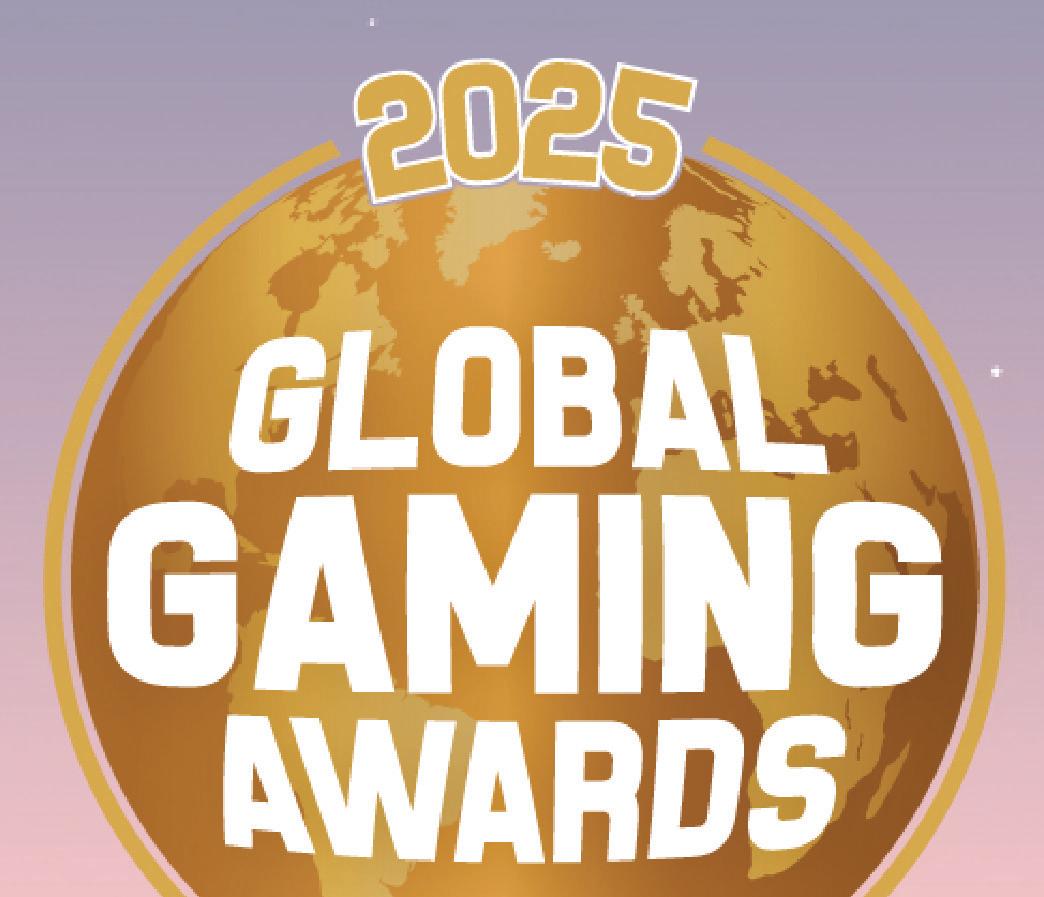


With the official Shortlist having been revealed on May 5, there are a number of contenders with US backgrounds that certainly stand out less than a month before the Awards are to be distributed.

the Awards are to be distributed.



For Casino Operator of the Year, MGM Resorts received a shortlist entry following the best full-year consolidated net revenues
Under the Casino Product of the Year category, International Game Technology (IGT) has been nominated for its Rising Rockets progressive slot, including two base games Emperor and Empress. With over 200 installations across Asia, Rising Rockets has consistently outperformed expectations, according to IGT.



in the history of the company for 2024, on the Global Gaming Awards Asia-Pacific Shortlist. In FY24, Wynn Macau’s adjusted property EBITDAR rose to $1.17bn, a significant increase from the $954m reported during FY23.
Galaxy Entertainment Group will be looking to defend its victory from the 2024
IGT has been nominated alongside Aristocrat Gaming, which took home the win last year at the Global Gaming Awards Asia-Pacific 2024. Aristocrat’s Big Fu Cash Bats will be up for nomination during the 2025 Awards show, having launched in the Philippines in 2024 and recently debuting in Singapore, where its



first-to-market gameplay mechanic is driving player interest and delivering strong performance.








Not only will Aristocrat be looking to win consecutive Casino Product of the Year Awards, the supplier will also be hoping to claim victory in the Casino Supplier Category for a second straight year as well. In 2024, Aristocrat Gaming partnered with Macau’s Studio City to launch the Dragon Zone in celebration of Golden Week, a first-of-its-kind immersive player experience.





The Global Gaming Awards Americas consistently recognize and reward the gaming industry’s strongest performers across the previous 12 months. These are the most prestigious and trusted Awards in the industry and have gained respect among industry heavyweights, due to the strict rules and procedures put in place.
with the nomination window running through May 8. These achievements can be from the land-based or digital verticals, but must be related to the US, Canada and/or LatAm markets.
Golden Week, a first-of-its-kind immersive
Fellow suppliers such as Light & Wonder, IGT and Interblock will also hope to crowned the Casino Supplier of the Year on June 3. In February, Light & Wonder officially opened its new Philippines office and showroom in Clark, while Interblock installed over 1,000 electronic table games (ETGs) across Singapore, Macau, Malaysia, the Philippines and Vietnam throughout 2024. IGT continuously offers a regionally attuned portfolio of gaming solutions that are designed to maximize player engagement and drive strong performance results for operators across the Asia-Pacific.
Global Gaming Awards Americas at the Venetian Resort in Las Vegas, the Awards will once again be returning to the gaming capital of the world during G2E on October 6.


the most prestigious and


industry heavyweights, due to put
The Global Gaming Awards Americas will now honor the Casino Services Supplier of the Year, handed to the company which outperforms even the highest of expectations over the previous 12 months. Also, the well-known Land-based Supplier of the Year category has been split into both Class II and Class III awards, ensuring all levels of the land-based gaming industry are honored each year.
Those that are Shortlisted will be contacted in August for a supporting statement, detailing why each should be recognized during the ceremony in Las Vegas. The full Shortlist, including an explanation as to why each company and/or individual has been Shortlisted, will be released publicly in September after being finalized on August 8. A panel of over 100 C-level executives from the industry decides the winners, with KPMG in the Crown Dependencies independently adjudicating the voting process to ensure full transparency and fairness.
With new Awards set to honor the vast expansion seen across gaming in recent times, there is no measuring the amount of anticipation already building for the Global Gaming Awards Americas
2025.
Land-based Operator of the Year Award for
With the growth seen in the LatAm region as well, the Global Gaming Awards Americas will now be presenting not only a Land-based Operator of the Year Award for LatAm companies, but an Online Operator of the Year also.
When submitting nominations, Gaming America

When submitting nominations, kindly asks companies
Gaming America to write a short (480 characters
to write a short (480 characters max) statement highlighting achievements from the previous 12 months,
previous 12 months,


Insider consistently offer the most prestigious Awards in the entire sector, looking toward a 12th consecutive year of presenting the honors from Las Vegas.
While nearly every state across the US has accepted the introduction of daily fantasy sports (DFS), only a few continue to o er the sports betting vertical as a stand-alone option for residents.
While a regulated sports betting market is unlikely to ever be offered in Utah due to the state’s deep ties with the Mormon faith, DFS platforms such as DraftKings, FanDuel and Underdog Fantasy operate legally as games of skill rather than gambling. Outside of gambling that is also considered skill-based, Utah is one of only two US states, the other being Hawaii, that does not offer any form of legal wagering. With neighboring states including Arizona and Nevada offering in-person and online forms of sports wagering, Utah lawmakers remain steadfast in their reluctance to construct a regulated market for residents.





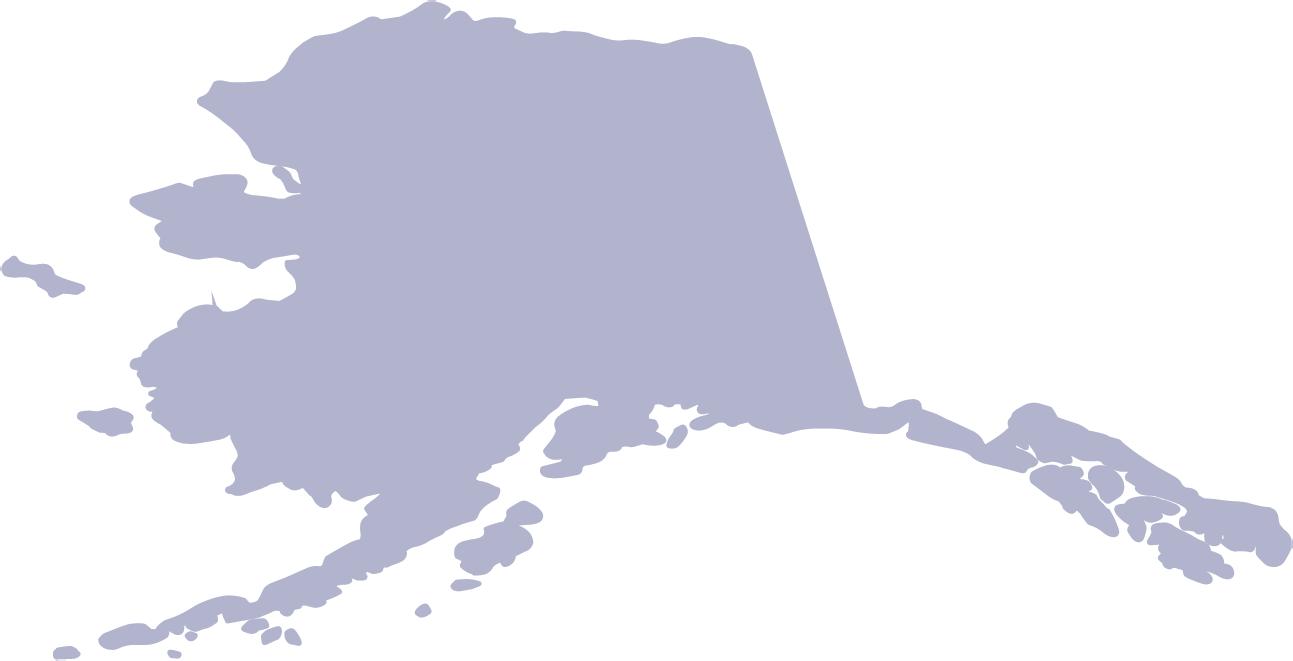

While retail and online sports betting are still currently unavailable in Alaska, Representative David Nelson introduced House Bill 145 on March 21, which aims to authorize and regulate mobile sports wagering across the state. If enacted, HB 145 would provide online sports wagering in Alaska by January 1, 2026, as well as set an adjusted gross revenue tax rate of 20% for operators granted a license. The measure, which does not include language for DFS, underwent its fi rst reading and has been referred to the House Labor & Commerce and Finance Committees.

DFS operators have been able to conduct business throughout California for many years due to state laws failing to properly address the offering. California law prohibits most forms of sports betting under the California Penal Code, only including verticals such as lottery, horseracing and certain card games. In 2022, FanDuel and DraftKings backed Proposition 27, which would have formed a regulated online sports betting market for residents, only to watch as 70% of voters rejected the legislation as part of the midterm elections that year.
Despite Minnesota having taken a conservative approach to gambling laws, often classifying uncertain activities as gambling, the state’s Attorney General’s office has not issued a definitive opinion on DFS. During February 2025, even with public support from professional sports teams and key stakeholders within the state, Minnesota lawmakers voted to a tie on legislation that would have legalized both in-person and online forms of sports gambling. Originally introduced by Senator Matt Klein, the bill failed to pass through its first test of the Minnesota Senate, creating a roadblock to authorization before the conclusion of 2025.
On March 6, 2025, efforts to send a constitutional amendment that would have legalized sports betting in Georgia failed to come to a vote in the state’s House of Representatives, delaying hopes of a regulated market until at least 2026. Like many states, however, Georgia has neither legalized nor outlawed fantasy sports, leaving DFS operators to conduct business in what is seen as a legal grey area. PrizePicks is currently headquartered in Atlanta, while FanDuel opened a technology campus in the city with over 900 employees during May 2021.
With DFS available in the state due to unspecified gambling laws, South Carolina seems to be turning its attention toward legalized forms of sports betting with recent efforts made during 2025. Senator Tom Davis introduced SB 444 on March 12, which would legalize online sports betting throughout South Carolina and allow for up to eight operators to obtain official licenses. The bill would establish a South Carolina Sports Wagering Commission to oversee the market and will only allow operators which are already established in at least five other states to apply for a sports betting license.




In 2019, the Texas House of Representatives passed a bill defining fantasy sports as legal games of skill, marking a signifi cant step in clarifying the legal status of DFS platforms within the state. Senator Carol Alvarado filed Senate Joint Resolution 16 in March 2025, which proposes legalized sports wagering and gambling at casinos and other destination resorts. If passed, it would also create the Texas Gaming Commission, a new organization that would regulate gambling for the Lone Star State.

Over three years after Alabama’s Attorney General ruled that DFS operations would be seen as illegal, Governor Kay Ivey signed HB 361 during June 2019, allowing operators such as FanDuel and DraftKings to re-enter the state. In early 2024, the Alabama House of Representatives passed HB 151 and HB 152, aiming to legalize sports betting and casinos while also establishing a state lottery. However, both bills failed to pass through the Senate, and no such legislation has been brought forth during 2025.
Similar to many states included in this piece, Oklahoma law does not currently regulate DFS, leaving the door open for operators to conduct business in the state without fear of ramifications. On February 24, 2025, the office of Oklahoma Governor Kevin Stitt released its official plan to legalize sports betting throughout the state. Stitt ’s plan is seen as a nonstarter for organizations such as the Oklahoma Indian Gaming Association; however, as it would reportedly cost over $200m a year in exclusivity fees paid by the Tribes to help support Oklahoma’s education budget.













As the first Seneca Nation member to lead the corporation, do you feel an added responsibility to ensure Tribal sovereignty remains at the forefront for guests and players?
Absolutely. It’s interesting you say that. I think every enrolled Seneca member feels that sense of sovereignty. I think being that first Seneca as President and CEO, it’s not just the responsibility, it’s an honour to be able to do that.
With iGaming in New York described as a ‘when not if’ by certain lawmakers, how would that present a challenge or opportunity to Seneca in the future?
It’s interesting




Following the panel 'Future-Proofing Tribal Gaming: Strategies to Compete in an Evolving Market,' which drew so many heads listeners had to be turned away, Gaming America’s Kirk Geller spoke with Seneca Gaming Corporation President & CEO Kevin Nephew at IGA.

with iGaming. It’s out there, but nobody knows yet where iGaming is going to be. So, we’re monitoring that situation as we go forward. One of those situations is, we see iGaming, we’re monitoring where it’s going overall in the gaming industry; but part of it will be, how is it constructed from a governance standpoint?














































Speaking on your panel at IGA, which was actually so full they were turning people away, how can sports betting and online gaming be incorporated by Tribes all around that are involved with IGA?
One of the things is, it isn’t so much just the product – a lot of it is the experience. What we’re finding now with all our gaming is it’s about the experience. One of the things we look at is technology. More technology comes into people’s households – they’re using their phones when they game – so, what’s going to differentiate us to get them on property?
One of the big things is to look at service. What we do there is monitor what our service standards are; customer service is critical. Then two, how do we encourage repeat visits? And, if they’re going to come in and experience, say, sports betting, how do you make that a true experience? What better place to meet friends and














































KEVIN NEPHEW President & CEO Seneca Gaming Corporation
enjoy, say, the Final Four of March Madness and have that repeat customer come back?
Do you see those verticals, whether it be sports betting or iGaming, as a necessity for Tribes if they’re going to compete in an evolving market?
I think it’s a necessity. I think it’s like anything; you look at a portfolio of the products you provide and ask, how do you get into that market? It’ll be interesting what the future holds.









How does an event such as IGA help Fortune Bay Casino find new innovations in gaming for your guests?


I feel like IGA is probably one of the best resources to bring back for Tribal properties, because they know what’s going on in the industry, what’s coming in the industry. You've got to bring groups from your property out here to look, because there are so many different learning opportunities here, whether it’s digital marketing, online gaming, sports betting. Having a team that we bring out, to be able to bring back all that learning to the property, so that we’re ready when things are approved in our jurisdictions... we can just go and be ready for it.
With Minnesota lawmakers recently introducing legislation that could bring sports betting to the state, would Fortune Bay ever consider partnering with operators to bring a sportsbook to the property?
We have been in talks for the past few years, because there’s a back-and-forth between ‘it’s going to go, it’s not going to go.’ We’re making sure we’re ready, being a proactive property instead of a reactive property. So, we’ve definitely been searching and talking to some companies on partnering.
I attended your IGA 2025 panel where you spoke about female leadership in Tribal gaming. You said Fortune Bay has gotten away from the Tribal element and that, when guests step in, they might not feel as if they’re



Gaming America’s Kirk Geller spoke with Fortune Bay Casino GM Elizabeth Deegan at IGA 2025, discussing Tribal culture at Fortune Bay Casino and empowering women to lead in the future.

stepping into an Indian casino. How do you plan on changing that aspect and reintroducing Tribal elements to your property?

My number one goal is to make sure people feel that culture when they come in. So, just implementing little things where we’re opening up a new market on our property. We’re going to have market items, 12 packs of pop, etc in the property. Starting with the Anishinaabe language as a room, it’s the Giizhik Market, which means cedar in our culture, and using that. Even just placing the Anishinaabe language under signs so that our guests know when they come in that they are at a Tribal property.



How do you find that Fortune Bay continues to remain prominent in the area, especially in Minnesota where there are up to 20 tribal casinos that guests could attend?




As a female leader, do you feel extra motivation to help repair for future generations, specifically with possible females that could lead the property?
Most definitely. Right now I have a really strong team, and we recently promoted three women into executive positions, myself being General Manager. We promoted a young band member as our Human Resources Director; we have a young band member as our Marketing Director and we’re continuing to grow those ladies into better leaders for what they’re doing.
We have a band member mentorship programme for our Tribal members so they feel like they have the opportunity to move up or be in a job they didn’t think they could get. But giving them the tools they need to succeed in those positions is really another one of my goals.
We pride ourselves on the natural beauty of where we are located in the state. We have beautiful Lake Vermilion, we have a beautiful golf course, a beautiful RV park. We’re a destination property. In the wintertime we have snowmobile trails, so we are definitely making sure that we are staying competitive in the market, reaching down in the Minneapolis metro area to try bringing those people up, letting them know what we offer. We are a four-seasons destination. Canadians are a huge part of our industry too, so we’re definitely trying to have some promotions that will bring them down as well.
















At IGA 2025, Brian Parrish, COO of the Osage Nation Gaming Enterprise, found time to speak with Gaming America about the importance of weaving customer experience in with business optimization.

You’ve been in the industry for over 30 years; I’m sure you’ve learned a lot! What would your biggest takeaway points or advice be?

I could spend all day talking about some of those things but for me, personally, it’s very gratifying to work in Indian Country because you can see who your shareholders are. You can see that the revenue you’re generating is going to build homes and provide education, food security, water security and things like that for communities, and it’s vitally important. The Osage Nation has well over a thousand years of documented history in the Oklahoma, Missouri and Kansas regions. So that, of course, predates the US by a long ways.






own way. I think an important message and takeaway, at least from my experience, is that my family is Irish on both sides and so I’m not Native American, but my wife is. I know that I’m a guest in these communities and so it’s important and incumbent upon me, when I come into a Tribal environment, to earn trust, show that I’m here for the right reasons: to help them make good decisions that make sense to further the quality of life for their membership and create security and stability. I have to earn trust.



over time, and they’ve become my best friends over the years. While I enjoyed commercial gaming, there is a tendency not to be able to forge those relationships because the focus is so different.

That’s consistent with what we’ve heard from people who worked in both and it’s a very humble perspective that you take. Can you tell us what you discussed at your first IGA panel this year?


But I’ve worked for four different Tribes and been CEO or COO for all of them. The lessons are all very similar: that sovereignty and self-determination are vitally important, and if it wasn’t for gaming and the Indian Gaming Regulatory Act that was signed into law by the late President Reagan back in 1988, the Tribes wouldn’t have these capabilities to be more economically interdependent and have the ability to improve quality of life for their membership; so it’s very gratifying.
I think it goes without saying that Tribal gaming, or gaming in general, has changed in the time since you entered the industry... but what are the most notable ways in which it has changed?
You know, every Tribe is different. They have different histories, different objectives, different cultures and tolerances for things, and it takes time for all of them to find their
Just because I have a title or a position, that doesn’t give me the authority to venture outside what my job duties and responsibilities are. I’m a guest in the community and I have to show respect for that. By taking that approach, I’ve built long-lasting, quality relationships with Tribal leaders and Tribal employees

















































































































































































BRIAN PARRISH COO Osage Nation Gaming Enterprise
Cashless gaming is evolving. I think at some point in the future, it will be a significant part of the gaming experience that everybody has right now. There are only eight to 10 states in the US that have approved cashless gaming. There are a lot of issues with technology and things like that. It’s also an education issue. Everybody has to understand how it works and why money handling in gaming, whether it’s credit or a cashless type of gaming, is very much about security and convenience. But people have to trust in the processes and how it works.
You know, we were laughing on the panel yesterday, talking about how there’s some of us like me that I still hold on to my chequebook, right? I enjoy handwriting checks because I’m touching the paper; I feel it. I see it and it’s the same thing with counting currency. Right now, the operators can go and pull a can out of a machine, they can take it to a soft count and they count it down and see the dollars; they record it and it runs through a counter, you can touch it and you know exactly what’s happening with your business. So then you get in the cashless




environment and everything is automated: you lose that comfort and that touch. So much about this is getting comfortable with the technology, understanding that you’re not going to have that kind of physical reassurance with some of it and that it’s not going to be for everybody. Nonetheless, the technology has to be seamlessly integrated, it has to work well and it has to be auditable.




That gives people comfort. So, overall and in time, I think it’s going to take root in younger people that are more technology savvy, who are much quicker to accept changes; but as time goes on, we think it will become an important part of how Class III gaming works across the US.
Sure, and then a word on the panel you had later in the week? So the next panel we’re talking about is improving guest experience – how do you do that through data collection and gathering information, and how do you measure it? Some of the thoughts I’ve been sharing and putting together questions on is the concept that our customers, our players, are not created equal, right? It’s interesting in the gaming environment, as it’s really based on value, worth and contribution. So just like you have to prioritize your players, you have to prioritize the feedback you get. You want to be proactive and responsive to the feedback you’re collecting and using it to make improvements. While most players will give you feedback, some won’t, and in that case your employees are the best source of that information, so take time to stop and listen, break that information down, communicate it back but prioritize it and then make good on the suggestions, and the feedback they’re giving you.
But when you’re surveying people one on one, you get a more specific look at what their perceptions are, you can still use that and measure it. It’s still good to have the social media side of things, but understand the value that it brings, as well as some of the potential limitations with it. Nevertheless, it’s critical to listen to your guest and then be responsive to what they’re telling you.






Data is still very relevant to this next question... in your Tribe, you’ve got an upcoming digital optimization strategy. Can you tell us a little bit about that and just how important it is for Tribes to stay ahead of digital trends? This is a really important issue for us and we’re hoping it is for all of the Tribes in Native American gaming. Our digital optimization strategy is about sitting down and developing a master specification in terms of how all the automated touchpoints, systems and services that you provide all interact in one ecosystem. But they also have to have all the data sovereignty, data security, controls and things in place that really safeguard the information properly, all while still providing frictionless, seamless services. If it’s convenient and easy and it inspires trust, people will use it, and that’s why it’s so
We’ve got a lot more data we can share on that. There are a lot of interesting biases when people get information. How has it been influenced? Social media is certainly an issue, but it’s just like focus groups, right? You get into a focus group and you can have one very vocal person that ends up artificially steering the dialogue, and it changes some of the data you’re going to collect – it’s the same thing with social media.


important to stop and develop that digital optimisation strategy or specification. Once that spec is in place, you just keep going back to it and make sure at every stage of your development and your implementation of these resources, it matches up.






There’s a lot of pressure on operators to generate more revenue and keep up with the Joneses, and ‘everybody else is doing this so we should too;’ but that’s not always the right pressure to succumb to. You really need to stop, think through it: “Hey, we’re going be a little more disciplined. We’re not going to be first to market with it, but we will be the best once we execute it and people will migrate to us;” because if the technology doesn’t work and all the other components don’t fit well together the way they need to, customers aren’t going to use it anyway – and you’re not going to get the return on investment. Instead, you’re going to be spinning your wheels and frustrating your team and guests in the process. So I think it’s a great discipline to have. It means you slow things down a little bit, but in the end, you’ll accelerate to a better result.

























Returning contributor, the American Gaming Association, writes all about responsible gaming messaging. Joining Gaming America this time is Joe Maloney, SVP of Strategic Communications.
Play smart from the start: Shaping the future of responsible gaming messaging
While responsible gaming has always been a priority for the legal gaming industry, it was clear we needed to evolve our approach to reflect how today’s consumers think, feel and engage with gaming. That’s why the American Gaming Association (AGA) recently unveiled Responsible Gaming: Play Smart from the Start – a new approach to RG messaging designed to resonate with today’s players.
What sets this platform apart isn’t just the message – it’s the method of how we got here. Over the last several months, the AGA conducted extensive research with focus groups that captured a broad range of player motivations and perceptions. The takeaway was clear: consumers want to bet responsibly, but current messaging doesn’t always speak to them. Our research uncovered a few key insights:
1. Players believe there is a “right” way to bet. We have an opportunity to reinforce the mindset that responsible betting is the “right” way to wager.
2. Today’s messaging often mixes responsible gaming with problem gambling, leading to player confusion. Our research suggests that effective responsible gaming communication is proactive and empowers players to make
informed choices. Meanwhile, messaging about problem gambling should be for those who need professional help.
3. Positive messaging is far more impactful than negative warnings. Our research reveals that consumers are more driven by the desire to enjoy positive experiences, like fun and entertainment, than by the need to avoid negative consequences. Encouraging smart decisions enhances their overall enjoyment.
Using these findings, Play Smart from

the Start reinforces the idea that gaming should be fun and enjoyed responsibly through three principles:
1. Start every game with the right mindset – be present and know your limits.
2. Act intentionally by setting limits – set a budget, take breaks and stay in control whether you win or lose.
3. Understand the rules and odds of the game – know the rules, understand the odds and bet with intention.





































































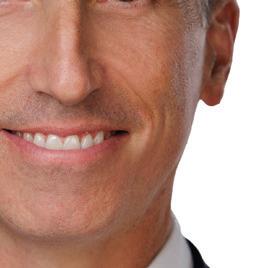






JOE MALONEY SVP of Strategic Communications American Gaming Association
What comes next? As we continue to roll out Play Smart from the Start, the AGA will collaborate closely with industry stakeholders to integrate this messaging across all marketing and communications. This will reinforce a unified, consistent voice wherever and however players are engaging with legal gaming.
This effort is about more than raising awareness – it’s also about trust. When players see a consistent, clear message across platforms and brands, it signals that the industry is in this together – strengthening consumer trust and benefiting the long-term health of the industry.
Our Play Smart from the Start messaging platform emphasizes that gaming should be a fun and responsible activity. And when consumers have the right tools to play responsibly, everyone benefits. The legal gaming industry can continue to serve as a trusted, enjoyable source of entertainment.
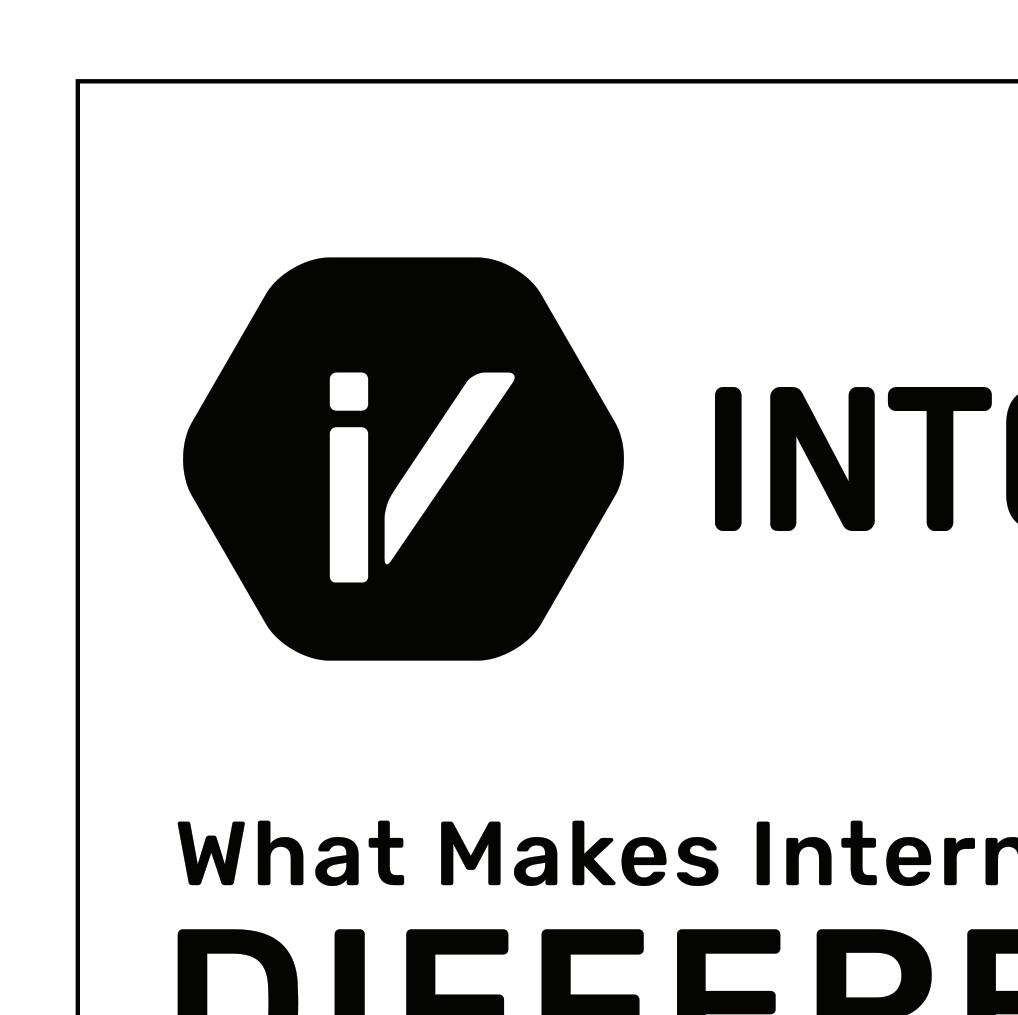
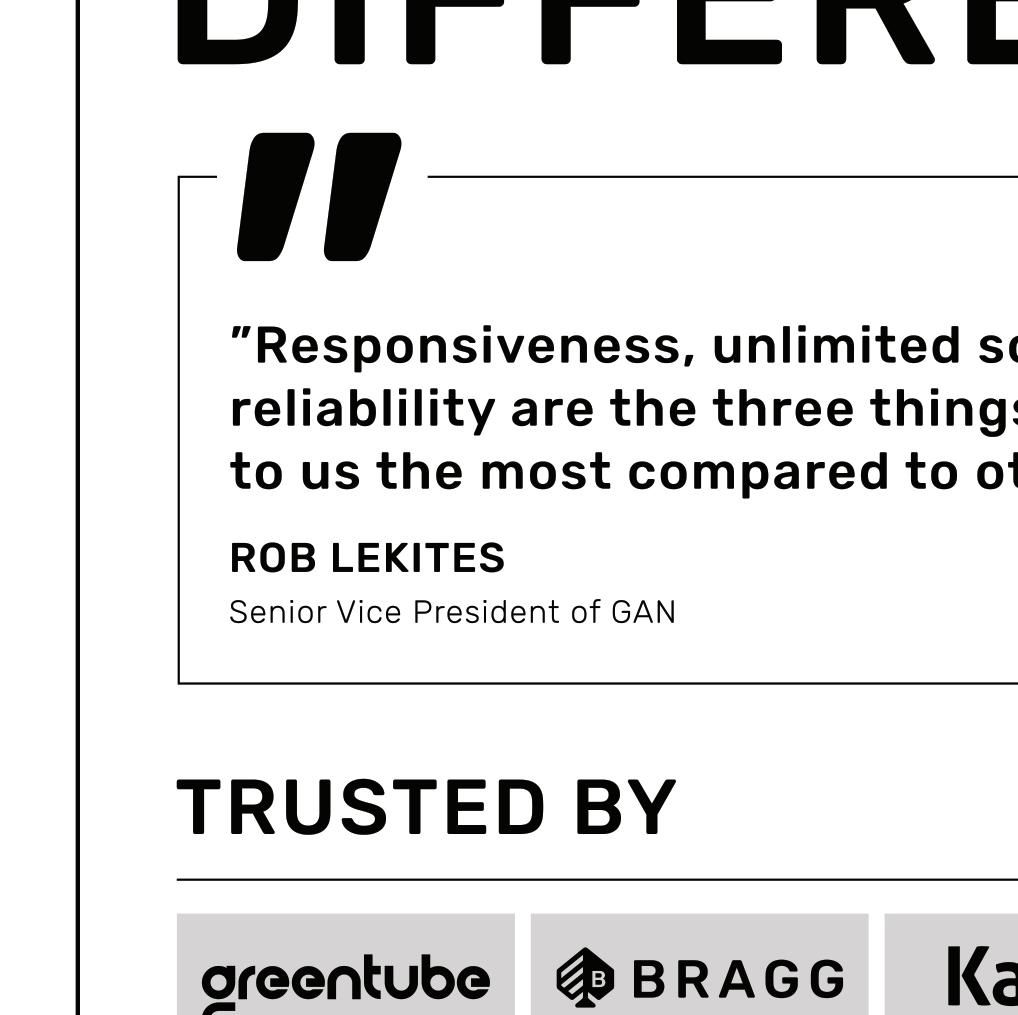
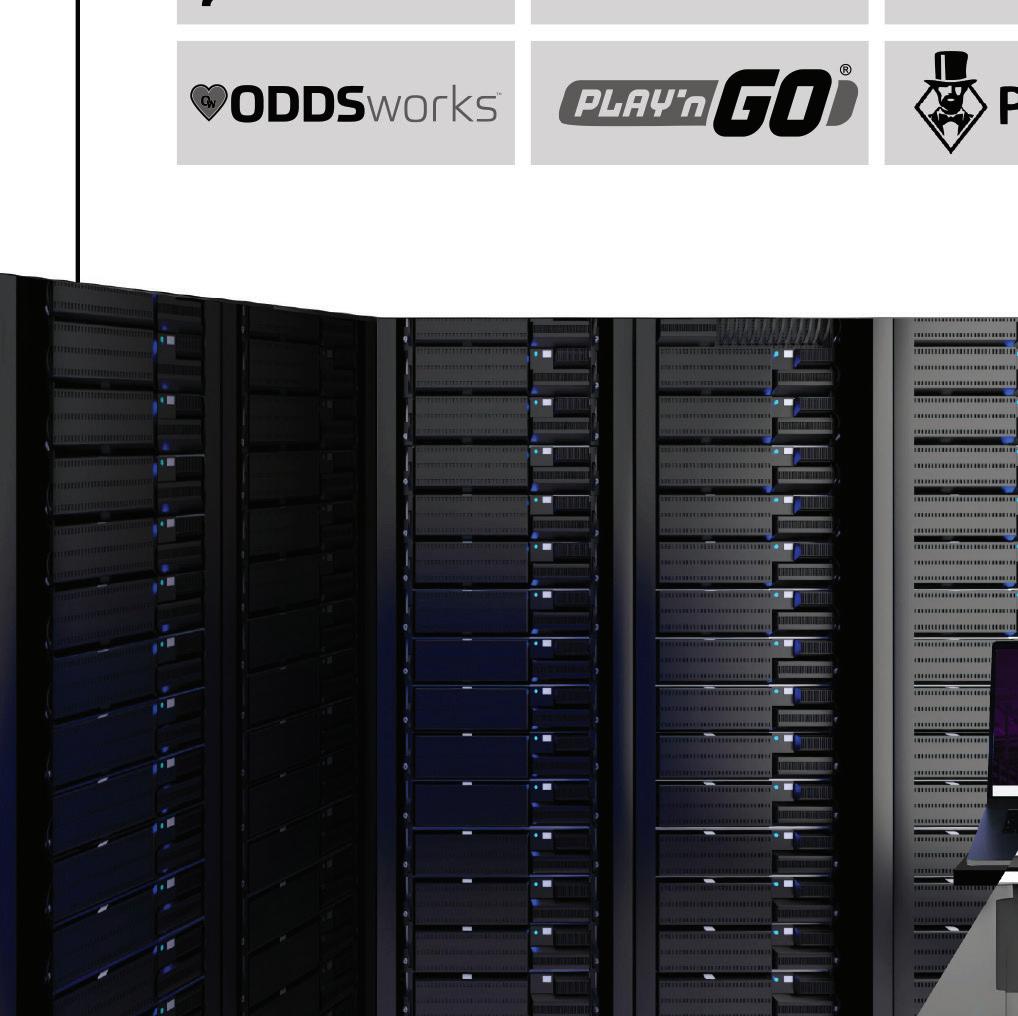
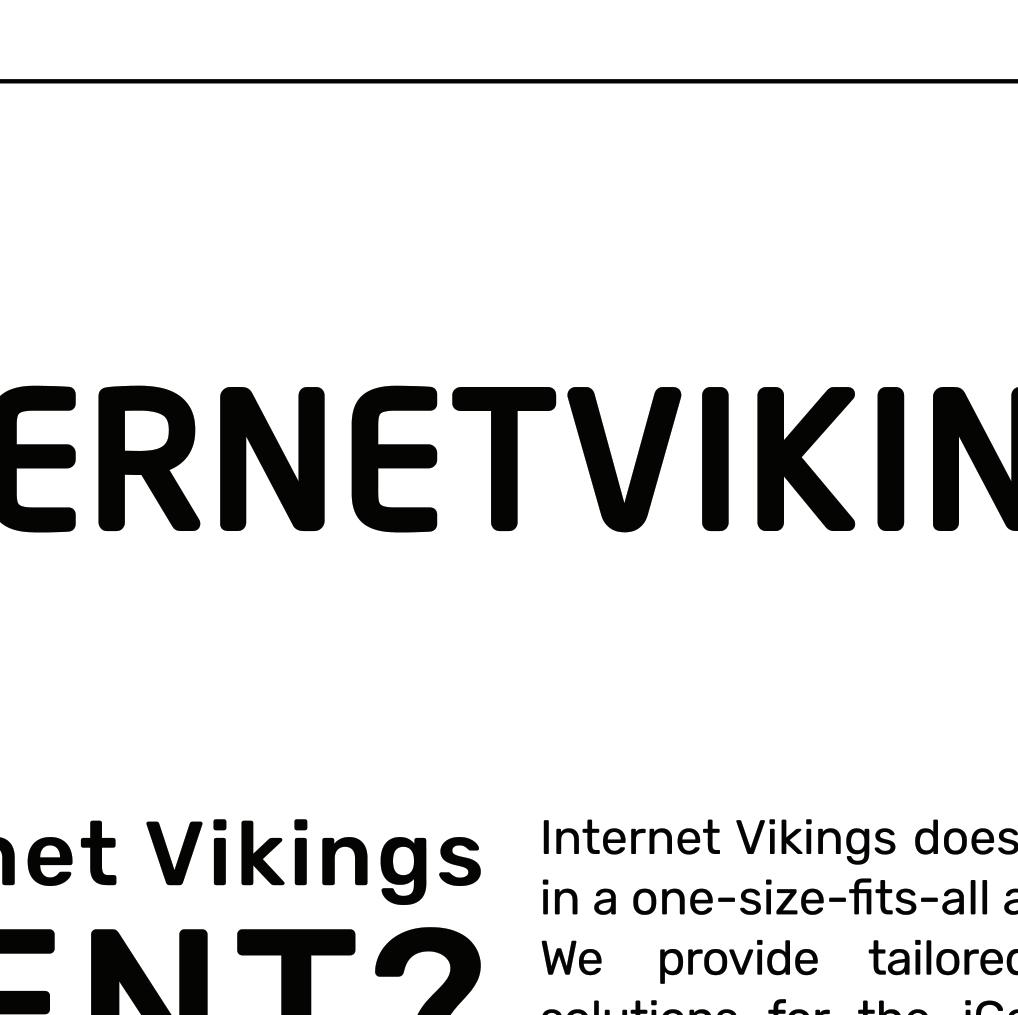
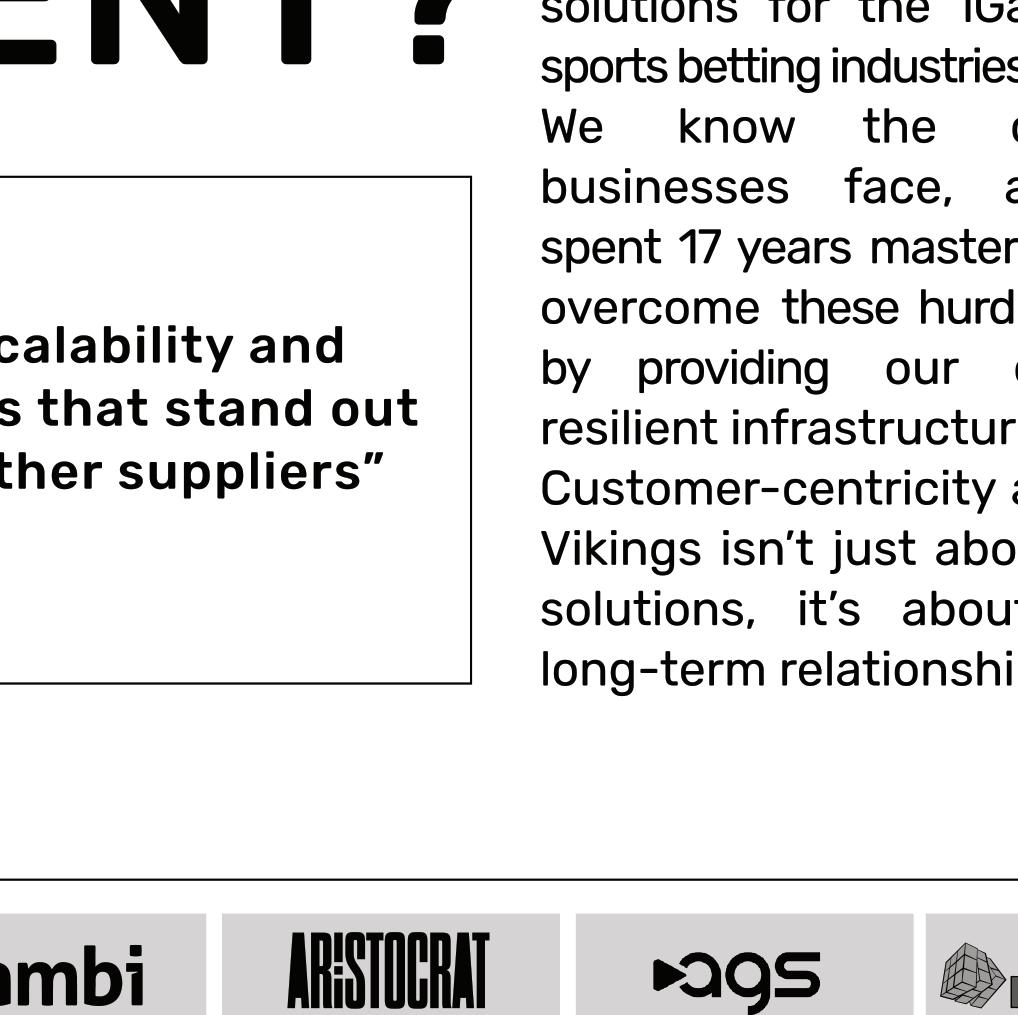




Birches Health Founder & CEO, Elliott Rapaport, discusses problem gambling in the US and why treatment access should be a wider gaming industry focus.
Problem Gambling Awareness Month (PGAM) reminds us that behind gambling lies a serious public health issue the industry must play a part in tackling. A January 2025 American Psychiatric Association national survey revealed that more than a quarter of Americans may gamble online daily. That means nearly 100 million people in the US are likely to pull out their mobile phones, find a quiet place to open a computer, and/ or generally find a way to place a bet online every single day.
The majority of these almost 100 million Americans who bet online daily may not ever need to seek out care for Gambling Disorder (the clinical designation for gambling addiction). However, for many that are in that minority and desperately need specialized treatment, the journey to find the necessary support for themselves, their families and their loved ones can be incredibly difficult.
The Lancet Commission on gambling estimated that 15.8% of adults and 26.4% of adolescents who gamble on online casino or slot products could be affected by Gambling Disorder. With sports betting products, they suggested 8.9% of adults and 16.3% of adolescents could be affected. Support for this population of individuals affected by Gambling Disorder is our central focus at Birches Health. Specialized clinical treatment is available across the US. Individuals struggling with their sports betting or gambling in general can receive care from the comfort of home from licensed, specially certified clinicians –with costs covered by insurance and state funding in select states. Demand for these services is increasing and more needs to be done through partnerships with state
governments, the sports industry and all stakeholders in gaming.
Birches Health’s goal as a company and a goal of the industry is two-fold: to increase access to specialized Gambling Disorder resources for those at risk, but ultimately to decrease gamblingrelated harms to reduce the number of individuals who ever reach a point of crisis.
Additional proactive collaboration between governments, healthcare providers and the gaming industry is needed to make sure those who need care can access it as quickly as possible.
Historically, Gambling Disorder was not a benefit covered by private and public insurance companies and, therefore, was not an option for members across the






















































































































































ELLIOTT RAPAPORT Founder & CEO Birches Health
US. With Gambling Disorder’s inclusion into the Diagnostic and Statistical Manual of Mental Disorders, Fifth Edition (DSM5) in 2013, this began to change. Over the past few years, we have seen coverage accelerate – now even with many state Medicaid plans and organizations under a Medicaid Managed Care system beginning to reimburse for the diagnosis in different markets.
As the healthcare industry has augmented coverage for Gambling Disorder for those individuals who need care, the gaming industry must integrate direct treatment access into different facets of the bettor’s experience, within onboarding/ signup experiences, and throughout their playing journey with always-on messaging and features.
In the wake of Problem Gambling Awareness Month (PGAM), held every March, preventing problem gambling must remain a crucial focus for an industry that has both the resources and the responsibility to ensure that, if someone reaches the point of needing help, they can access specialized solutions.
Research shows that over 20% of Americans may struggle with behavioral health disorders like anxiety and depression. Gambling Disorder will most likely never reach that kind of prevalence. However, across the US today there are countless individuals and their families who are dealing with a never-ending barrage of questions; and a maze of unspecialized providers as they struggle to find access to high-quality clinical treatment for Gambling Disorder in a financially sustainable way. Today, as well as any other day, is the right time to focus on changing that.

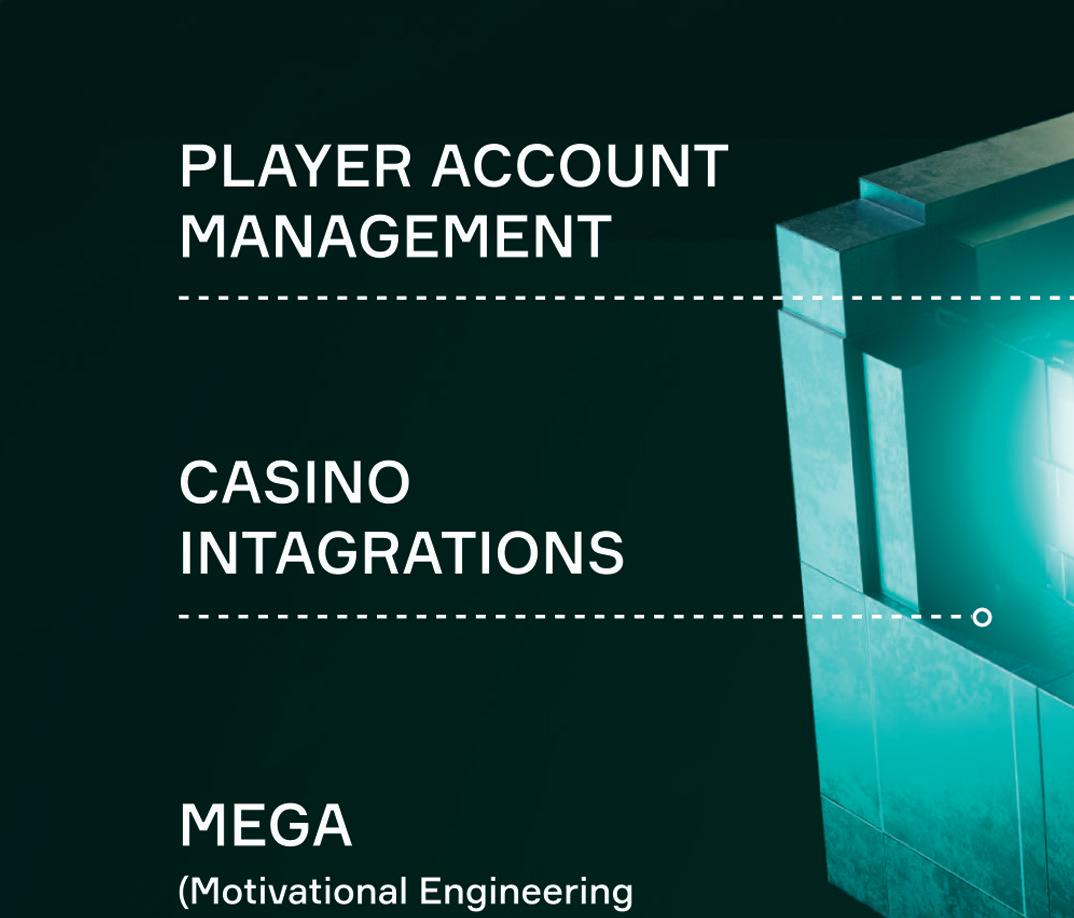

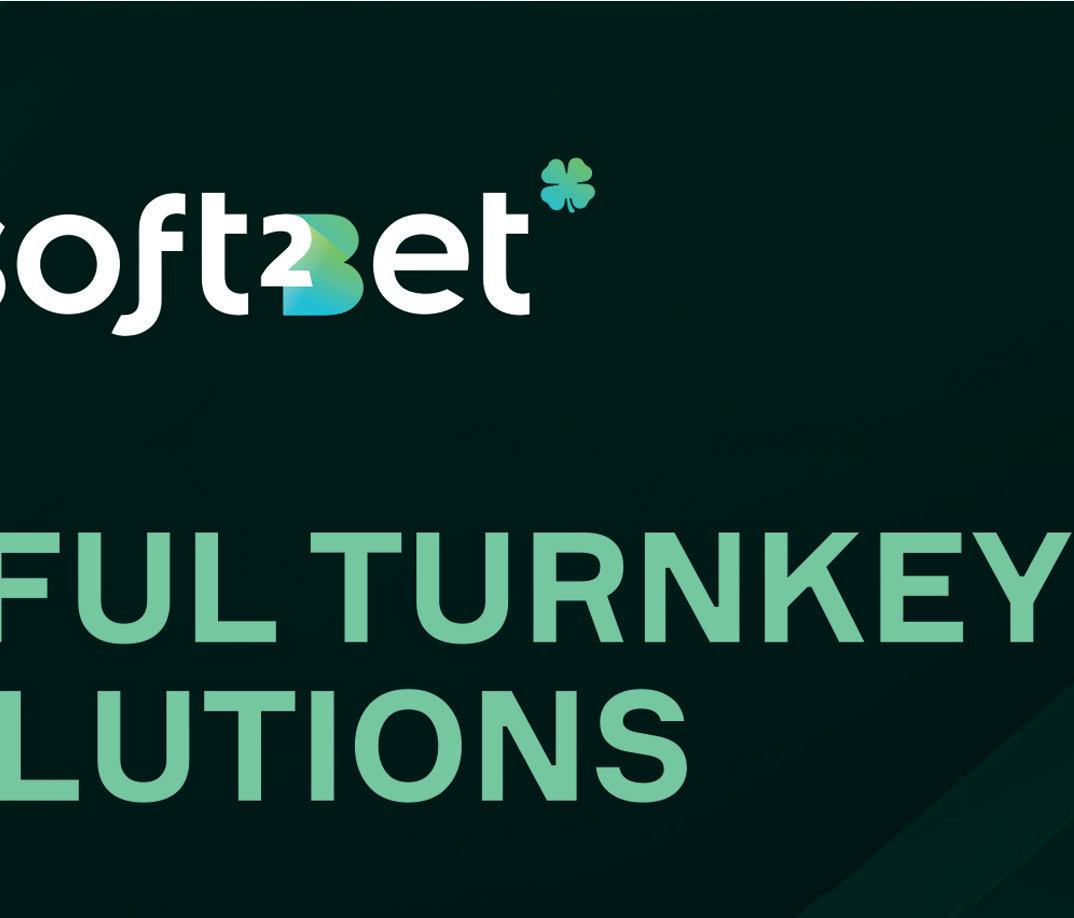


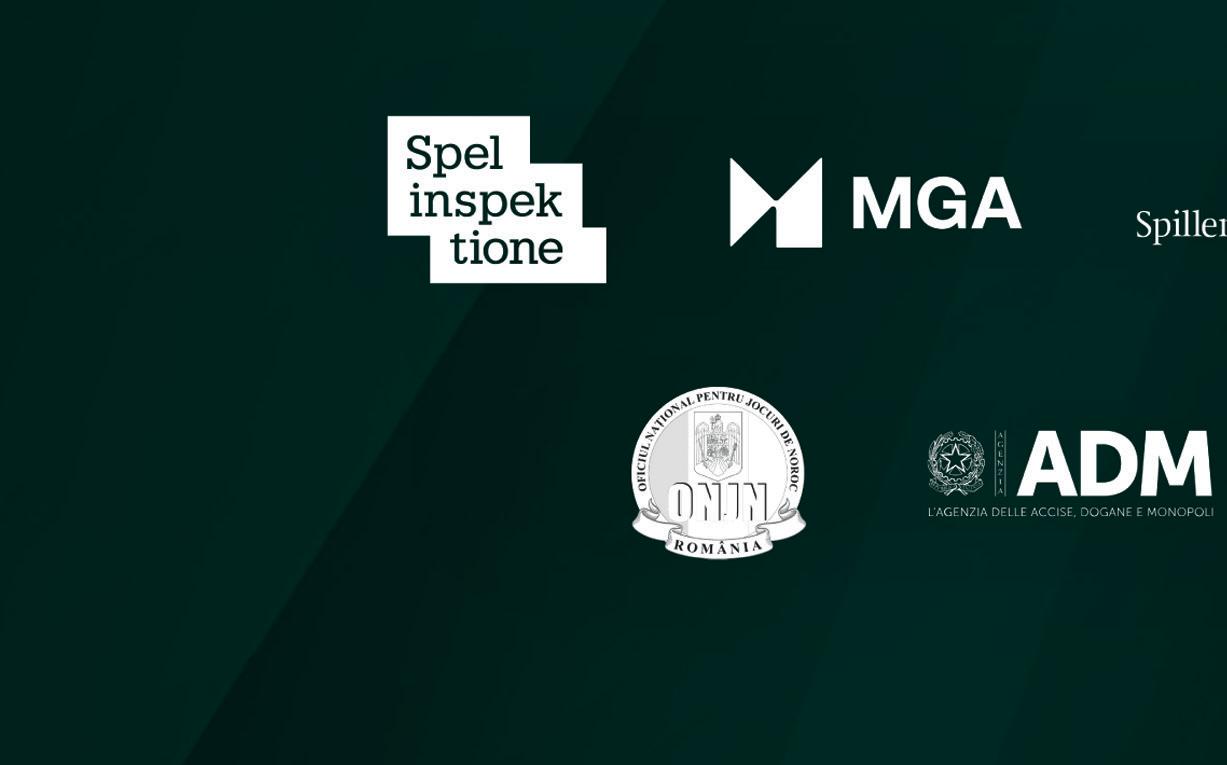
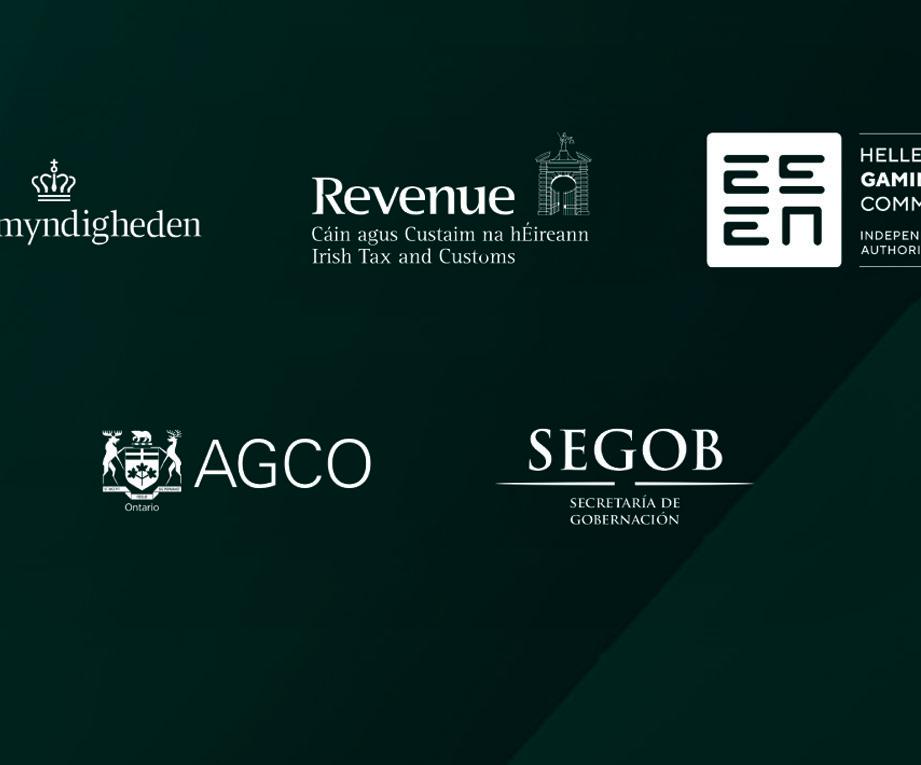


Amid potential delays, price hikes and regulatory risks, Internet Vikings’ Founder & CEO, Rickard Vikström , and COO, Kristoffer Ottosson , speak to Tim Poole and discuss the steps taken to maintain stability for customers.
We’re used to discussing industry topics but, from time to time, what’s in the mainstream news has a big impact on gaming. How could potential trade wars affect the sector?
Rickard Vikström: When trade wars become a reality, we can’t ignore them, especially when it comes to supply-chain disruptions. They can delay hardware shipments, increase costs and create uncertainty. For the industry, this means slower deployment, higher operational expenses and potentially losing ground to competitors who are better prepared. It’s not just about the hardware; it’s about the ripple effect on service delivery.
Kristoffer Ottosson: Trade wars also create unpredictability in pricing and






















































































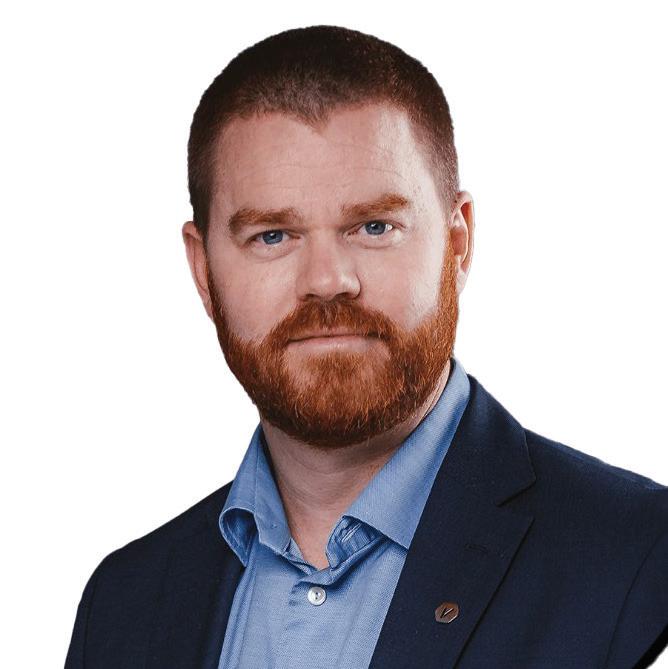
RICKARD VIKSTRÖM Founder & CEO Internet Vikings
availability. For operators relying on international hardware, this can mean scrambling to find alternatives or paying a premium to meet deadlines. It’s a logistical nightmare that can derail even the best-laid plans.
How costly could any delays or disruptions be to gaming operators?
RV: Think about it: if you’re launching a new platform or scaling up for a big event, even a few days of downtime can cost millions and damage your brand reputation. Operators also face penalties for failing to meet regulatory deadlines or service-level agreements.
KO: From a technical perspective, delays don’t just hit the bottom line, they strain

your entire infrastructure. If you’re forced to rush deployments because of delays, you risk compromising on quality, security or performance.
Internet Vikings is billing its localized hardware as something that can mitigate these potential effects. Tell us how.
KO : We’ve always believed in being proactive rather than reactive. By acquiring hardware ahead of time, we eliminate the risks associated with international supply chains. Our localized infrastructure means we’re not waiting for shipments stuck in customs. We overprovision our hardware, and this approach allows us to deliver no matter what’s happening globally.
How do you ensure quick deployment and scalability? And how confident can you truly be of delivering on that aim, given that these disruptions could be on a wide scale?
RV: As for confidence –’ll be direct: we’ve stress-tested our systems and planned for worst-case scenarios. Trade wars or supply chain disruptions don’t just affect one company; they’re widespread. But because we’ve localized our operations and overprovisioned, we’re insulated from those shocks. Our track record speaks for itself – we’ve consistently delivered for our clients, even during global crises.










































































COO
Internet Vikings
What would you say to an operator that might prefer to avoid the cost of a trade-warproof strategy, in the belief that the impact may not be too high?
RV : I’d say this: hope for the best, but plan for the worst. The cost of being unprepared far outweighs the investment in a future-proof strategy. Trade wars, supply chain issues and geopolitical tensions aren’t hypothetical – they’re happening right now. If you wait until the disruption hits, it’s already too late.


KO: I couldn’t agree more. Cutting corners on infrastructure is a false economy. The upfront cost of a strategy might seem high, but it’s nothing compared to the cost of downtime. Think of it as insurance; you might not need it every day, but when you do, it’s invaluable.
Finally, are there any planned updates for this kind of product for the rest of 2025?
RV: Absolutely. We’re always working on growing and improving Internet Vikings. In 2025, we plan to expand our localized hardware footprint even further, adding more data centers and increasing our internal overprovisioning capabilities.
KO: In the end, it’s about trust. We take pride in delivering on our promises, no matter what’s happening in the world. That’s how we help our clients and put them at the center of everything. By eliminating reliance on international shipments and investing in proactive infrastructure solutions, you can ensure uninterrupted service, scalability and future-proof performance. Whether trade wars escalate or not, being prepared is what sets industry leaders apart.








breaks down how data governance can be navigated from different sources, and how operators can measure and reassess data policies

The universe of privacy and data governance laws, regulations and frameworks is vast. Over 80% of the world’s population is covered by some form of privacy law. Often, the array of regulatory regimes conflict, overlap and change rapidly. There are laws and policies on data protection, privacy, cybersecurity, consumer protection, content moderation, online safety, artificial intelligence (AI) and intellectual property creating a complex digital regulatory environment. The gaming industry’s verticals are equally as vast. Covering, to name a few, casino play on and offline, console PC, and cloud gaming, sports betting, esports, streaming, mobile and iGaming, reaching overall revenues of $283bn in 2024 with expected growth at more than 8% per year. The glaring difference is the gaming industry is innovating faster than privacy and data governance legal frameworks can react. Gaming is deploying new technologies like virtual reality (VR), augmented reality (AR), AI and blockchain, adding to the complexities


of data governance and protecting player privacy, data management, advertising practices and monetization strategies.
The centerpiece of privacy laws is the idea of data protection and individuals’ rights
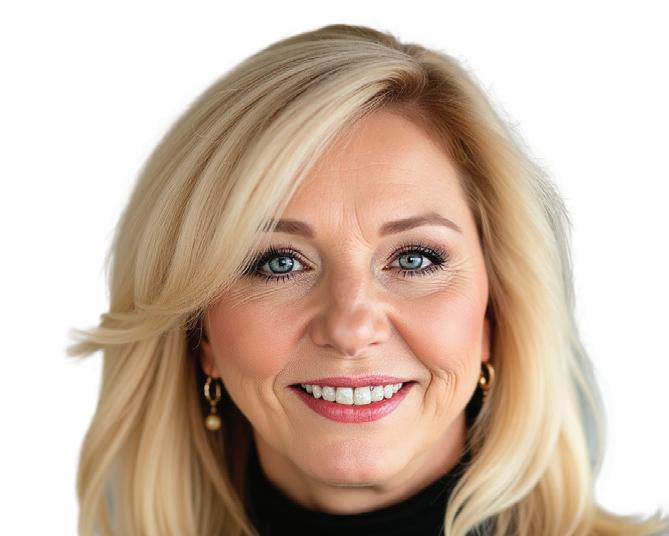














































































RITA W. GARRY Attorney and Counselor Howard & Howard
to control their personal information is fundamental. These laws are extraterritorial, protecting citizens’ personal information no matter where in the world they are, impacting the entire gaming ecosystem worldwide in correlation to their international user base. In 2022, Epic Games settled with the US Federal Trade Commission over violation of the Children’s Online Privacy Protection Act (COPPA) paying $520m related to the Fortnite video game. Online gaming companies fare no better in Europe as in March 2025, the Swedish company Star Stable Entertainment is being investigated by a consortium of EU national authorities for harmful marketing practices directed at children.
On the flip side, gaming owners and operators using multiple interaction channels are uniquely positioned to collect vast amounts of player information and must balance their desire to monetize such data to enhance player experiences with privacy laws, responsible and ethical data usage, and their



legal and ethical manner. This is a tall and, some may say, overwhelming order which can lead to “digital entropy.”

consumers’ trust. This is the privacy and security compliance balance beam gaming companies must walk to grow player engagement but also mitigate the risks of regulatory and civil actions, the operational and reputational harms caused by poor data governance, and growing consumer awareness of and appreciation for their privacy rights. With advanced technologies like AI, VR and AR, the amount of personal data expands to include biometric, geolocational and other forms of sensitive personal information that create both opportunities and challenges. So, in an already heavily regulated industry, gaming companies must also be personal data stewards ensuring transparency, fairness, focus on player wellbeing, and doing it all in a fully
Entropy is a measure of decay, disorder and randomness and, as technologies advance and data caches grow unmanaged or unchecked, organizational data governance can seem to fall into a state of disorder and uncertainty causing digital entropy. Rather than succumb to digital chaos, the gaming industry can leverage its familiarity with regulatory environments and the business imperative to enhance player engagement, to make data governance the centerpiece for both. To begin this process, apply the data matrix elements across each business domain to identify gaps in the organization’s data governance practices.


By surveying each business domain to identify relevant data repositories, classifying data types (personal information, confidential, intellectual property), accessors/users thereof and storage location, the risk areas and control weakness will identify themselves. This knowledge can then lead to reassessment or enactment of appropriate policies, and practices to safeguard against unauthorized access and grow privacy compliance confidence.
In the end, these activities will only yield real benefits with the support of executive level enthusiasm, budgets and regularly repeated reviews and assessments will achieve organizational data governance with skill and not by chance.























Rick Arpin, KPMG US Gaming Industry Leader, looks into exchange betting and prediction markets: Navigating the regulatory and industry implications.
The rapid expansion of exchange betting and prediction markets into sports-based event contracts has sparked significant interest and regulatory attention. These innovative financial products are raising discussions around jurisdiction, legal risk, taxation and industry alignment. I participated in recent panel alongside experts including DJ Hennes (KPMG Risk,
Regulatory & Compliance Advisory), Bob Stoddard (KPMG US Gaming Tax Leader), Alex Costello (VP of Government Relations at the American Gaming Association), and Reade Jacob (Counsel at WilmerHale), on these emerging dynamics and what they could mean for the future of prediction markets in the US.
At the heart of the current debate is the divide between federal and state regulation. The Commodity Futures Trading Commission (CFTC) allows new financial products, including event contracts, to be self-certified and launched quickly – an approach that prioritizes innovation. However, this





about how prediction markets could impact their legal frameworks and economies. Maintaining the integrity of these markets is another high priority. Concerns about transparency, manipulation and consumer protection are pushing regulators to consider stricter oversight mechanisms. The CFTC is evaluating potential enhancements such as disclosure rules and real-time surveillance to prevent fraud. State regulators are also exploring shared enforcement models to strengthen oversight and bolster public confidence.
or future reclassification. The CFTC’s ultimate stance could shape the economic viability of the entire sector, influencing how and where these platforms are deployed.
Maintaining the integrity of these markets is another high priority. Concerns about transparency, manipulation, and consumer protection are pushing regulators to consider stricter oversight mechanisms.
Stakeholder engagement is increasing in response. The American Gaming Association (AGA), for example, has been adamantly opposed to the introduction of federally regulated sports-based event contracts. In its letter to the CFTC, AGA commented that, “By circumventing the important regulatory protections implemented by states, these platforms also raise the prospect of considerable consumer and marketplace harms.”

has raised alarms among state gaming regulators where established sports betting frameworks may be at odds with the CFTC’s interpretations. Some states have argued that these products resemble traditional sports wagers and should fall under their oversight.
Meanwhile, the CFTC exercised its authority to review sports-based event contracts to determine their permissibility under the Commodity Exchange Act (CEA), the federal statute for the derivatives and futures markets. As part of this process, the CFTC requested industry comment and scheduled a public roundtable, after which it will determine whether such contracts (i) constitute “gaming” and (ii) are “contrary to the public interest.”11] Until the CFTC completes its review process, a definitive resolution remains elusive.
Beyond regulatory boundaries, legal concerns are also at play. States that have not legalized sports betting are particularly concerned
The tax implications of these markets are equally complex. If classified as sports betting, operators could face both federal excise taxes and state-level gross gaming revenue (GGR) taxes. From the user side, tax treatment hinges on whether a participant is categorized as a trader or investor. Traders may deduct losses and treat gains as ordinary income, while investors may face more limited deductions and higher capital gains rates.
This uncertainty is causing hesitation across the industry. Operators are wary of launching products that could be subject to unpredictable tax burdens
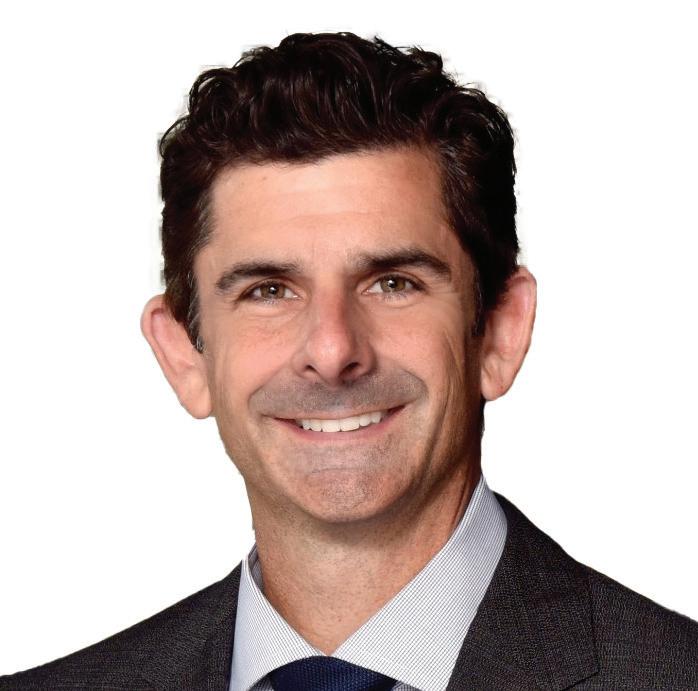





























































































Upcoming CFTC roundtables will offer an additional opportunity for industry voices to weigh in. While no immediate decisions are expected, the discussions will help shape the regulatory roadmap and inform future rulemaking.
The future of prediction markets and exchange betting is still being written. Regulatory clarity, especially from the CFTC, state agencies and potentially Congress, will be crucial in determining the direction of the market. Operators, investors and regulators must all prepare for a range of outcomes, including potential legal challenges and evolving tax frameworks.
RICK ARPIN
US Gaming Industry Leader KPMG
Industry participants are encouraged to stay actively engaged. The decisions made in the coming months will have a lasting impact on how and where prediction markets grow. These markets could offer new tools for engagement, investment and economic activity. But without a coordinated regulatory approach, they risk becoming mired in legal and jurisdictional disputes.










It depends on who you talk to, or what day of the week it is, or what social media you follow; Las Vegas is either done, or things have never been better. One thing is true, something has changed in recent years, but there is nothing new in that.
On July 31, 1969, Elvis Presley first took to the stage at the showroom of The International. Kirk Kerkorian’s Las Vegas casino resort was the largest in the world, and one fit for a king. Not even “old blue eyes” could put on a show like Elvis, who

... Or have we never had it so good? Gaming America regular contributor and Denstone Group CEO Oliver Lovat investigates how to transition Vegas for the next generation.
introduced a new generation of visitors to Las Vegas.
Those familiar with the resorts of the 1950s weren’t convinced. The property was too big, customers too young and the dress code too casual. The personal touch had gone. It just wasn’t Las Vegas anymore.





In 2016, I authored the paper, ‘Elvis Who? A strategic approach to understanding, attracting and retaining the next generation of Las Vegas customers.’ This wasn’t to diminish Elvis’ legacy, it was to underline that if you had been 21 at Elvis’ final Vegas show, by 2020 you would be most likely collecting your pension – but with some great stories to tell your grandchildren!
Armed with this data and strong hypothesis, I approached the subject of developing programming for Millennial and Gen Z demographics with a (nowdeparted) senior casino executive. Based on customer lifetime value and loyalty drivers, we could develop engagement and begin the relationship. I was rebuked, with the





memorable response that “young people don’t gamble.”
The 2024 LVCVA visitor profile makes for interesting reading. Gen Z (aged 21-27) make up 7% of visitors and Millennials (aged 28-43) are 46%. These two (once dismissed) demographics now comprise a majority of Las Vegas’ visitors. Among those that gambled, Gen Z had an average gaming spend of $575 and Millennials $767. In 2017 only 20% of all visitors gambled over $600. Gen Z spent $541 per person and Millennials spent $636 on food and beverage compared to the average of $376 in 2017. Millennials paid on average $191 per night for accommodation, compared to the average of $114 only seven years prior.



Gen X (aged 44-59) – and all still too young to have seen Elvis – comprise of 38% of visitors, gaming spend was at $873 and $616 per person on F+B. 91% were return visitors. 84% paid for their rooms. Not only have the properties that have actively programmed for the next generation of customers succeeded in attracting them, but they have also been the beneficiaries of these trends. Moreover, the spending behaviors – and expectations – of this next generation of customer are different from their parents. There are less comps demanded and are prepared for pricing to be comparable to other major experiential destination markets, if not that of Las Vegas a generation ago.

My former colleague Ed Burrows, who runs Hotel Analytica, undertook a detailed analysis of Las Vegas operator performance. Of the three publicly listed gaming operators on the Strip, MGM, Caesars and Wynn, there are some interesting findings.
In 2024, MGM’s Las Vegas (gaming and non-gaming) properties generated $8.82bn. Its portfolio stretches across all segments and demographics from the budgetfriendly Excalibur to Cosmopolitan and Bellagio. Across the portfolio, casino generated 22%, rooms 33%, F+B 27% and 15% other. The overall EBITDAR margin was 35.2%.
By comparison, Caesars' portfolio produced revenues of $4.27bn, 23% from casino, 33% from rooms, 27% from F+B and 14% other. Its EBITDAR margin was 44.6%.
Wynn and Encore’s performance was $2.75bn, with 23% from casino, 33% from rooms, 30% F+B and 14% from other.
The Strip properties differ significantly from other listed gaming companies; Red Rock and Boyd, both of whom operate off-Strip and, in locals markets, generated 66% and 71% of their revenues from the casino, respectively.
Extrapolating data (where available) Burrows notes that, across the portfolio, MGM achieved a citywide ADR of $260 and Wynn $555, compared to the market average of $206 (data unavailable for Caesars) with REVPAR of $245 at MGM and $494 at Wynn, both of which are record levels. The market average REVPAR was $178. In 2017 REVPAR was $124.
illustrates the global range of visitors


50% of under 40s that have been to Las

to 67% of international visitors, with 48% of domestic primarily coming for vacation/pleasure and 79% of international for the same purpose. This illustrates the global range of visitors and highlights the evolving rationale of visitation. In 2016 we noted that nearly 50% of under 40s that have been to Las Vegas have done so over eight times.











In total, 89% of Las Vegas’ domestic visitors are repeat customers, compared







events, all of which build a compelling case




inflection point, where the customer, the
For those of us that monitor the evolution of the market, we note the layering of Las Vegas, cumulatively adding to the gambling destination with entertainment spectacle, Sin City, convention destination, luxury resorts, sports, experiences and global events, all of which build a compelling case for repeat visitation. In recent years, I commented that Las Vegas was at an inflection point, where the customer, the programming and business model required












































































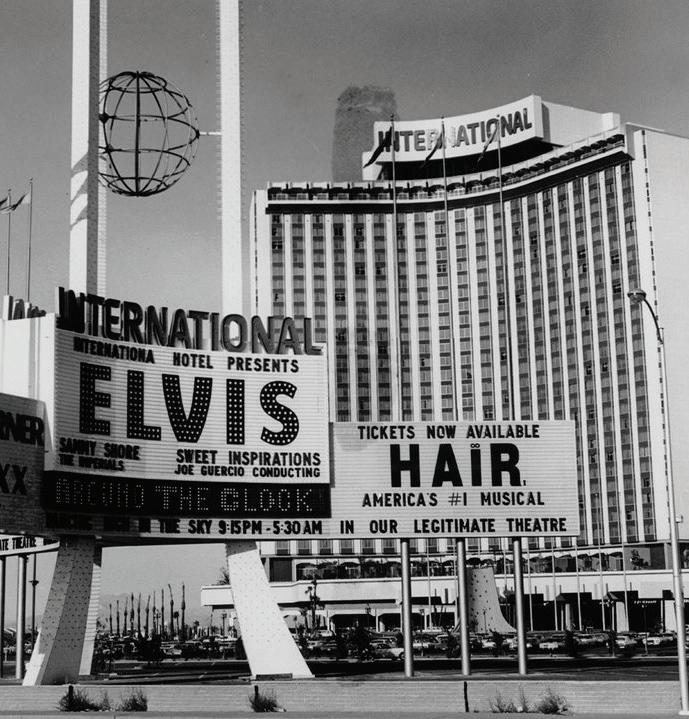































































review, because of the aging boomer demographic, proliferation of regional gaming and wider economic change. In November 2020, in this magazine, I cautioned the industry on making the mistakes of the 1980s which turned to discounting to keep visitor and occupation levels high.
The pandemic catalyzed the change. The inflationary confluence of rising labor rates, increased pricing for goods and services, and the sharp spike in energy, significantly increased operating costs for Las Vegas operators. Like many businesses, to remain profitable, these costs were passed on to the customers and attempts to discount were short-lived.

















The first is segmentation, seen in the



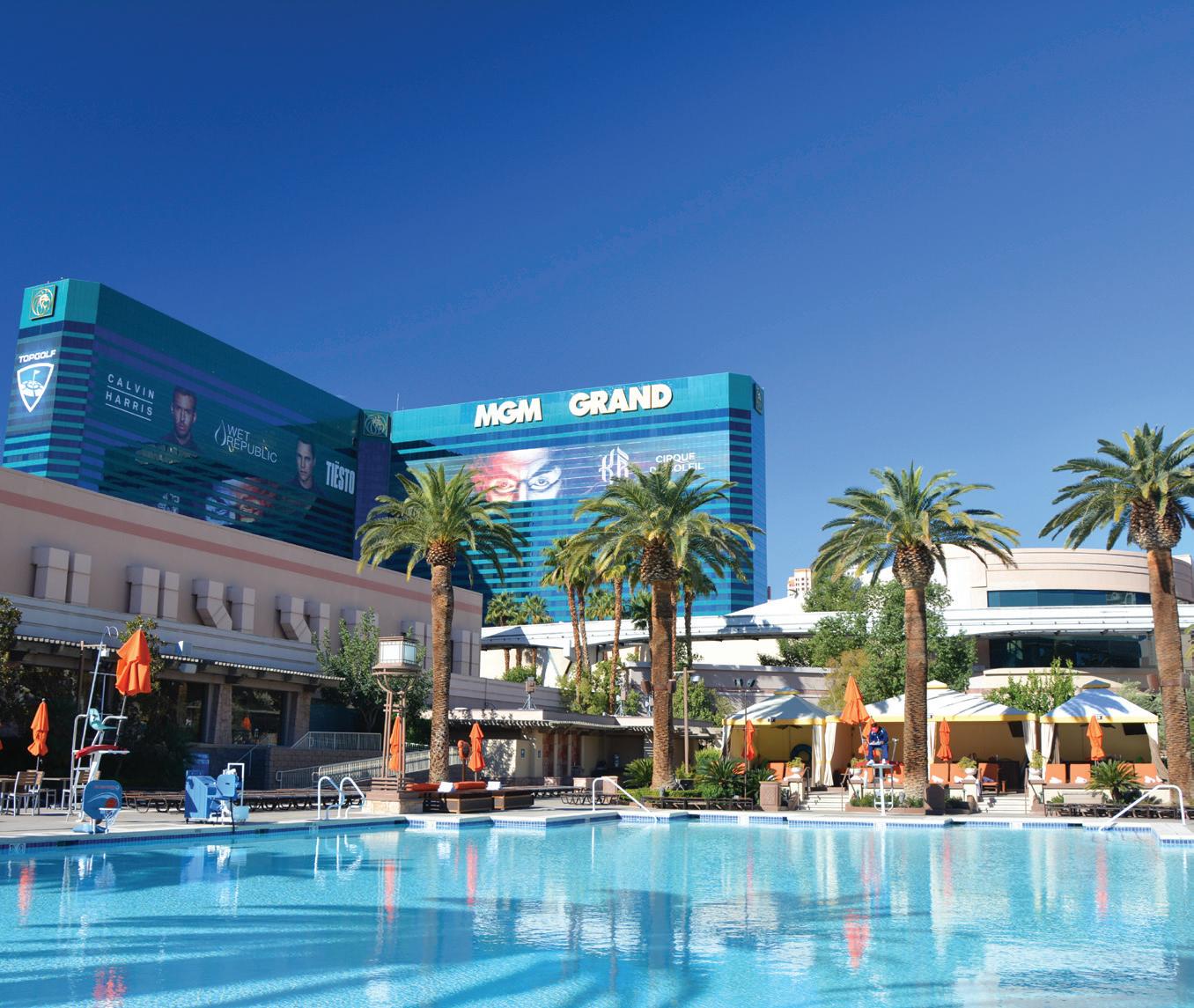




In managing a business in challenging times, there are several strategic approaches. The first is segmentation, seen in the luxury resorts with high service standards, elevated experiences and market-leading pricing. These attract either aspirational or genuinely wealthy patrons. As such, the





















































































pricing is aligned to expectations and, as seen above, the performance and EBITDAR margins realized are consistent.



For the value-driven strategy in an inflationary period, to deliver the same margins across the portfolio, a cost-leadership approach is required. This may be found in reduced service levels, lower human to human contact (fewer table games to slot ratios) and a cost focus throughout the business.
The other practical tactic employed to increase profitability is to reduce costs while raising prices. This may achieve increased operating margins but risks customer dissatisfaction, unless the value proposition remains apparent. In the case of ever-increasing parking and resort fees –where there is no additional benefit or value gained – for some customers it seems that this is eroding trust and the entire proposition.
It remains true that better, profitable gaming customers still receive benefits gaming customers still receive benefits












and perks; these have been reduced for more moderate players (save those that are offered discounted room product to meet slack inventory).



Those that remember the ‘old’ Las Vegas are somewhat shocked by this alteration to the business model. For them, visitation to Las Vegas is less frequent and changes to past behaviors are evident.
On November 18, 2022, Adele Atkins first took to the stage at the Colosseum at Ceasars Palace. Jay Sarno’s first Las Vegas casino resort was the most famous in the world, and the showroom built for Celine Dion is famed for legendary performers, identifiable by their first name alone. Not even Celine could generate the excitement of the best-selling artist of the 21 st century






welcoming a new generation of visitors to Las Vegas.

Adele, like Elvis, was aged 34 at the time of commencing her engagement. However, where Elvis’ tickets ranged from $12-$27 in price, Adele’s commanded sums from hundreds to tens of thousands of dollars. The commercial reality and spending power of the next generation of Las Vegas visitors had become apparent. Millennial and Gen Z visitors do not have the same expectations as older customers.
“Las Vegas… acts as an 'escape' from their normal routine for short and regular periods. The geography and the infrastructure of Las Vegas lends itself to accessibility; it is close by car or air travel to many of the key markets that this customer reside. Repeat visitation is uniquely high and is across all relationship demographics and especially high as a group activity. (This) group are
not opposed to gaming. Indeed, it remains an aspirational activity and as budgets and
an aspirational activity and as budgets and visitation increase, the next generation of visitors are more likely to gamble… Over 75% indicate that they are prepared to spend more on food and beverage when in Las Vegas… This customer is not motivated by transactional (loyalty) methods, (player’s cards and incremental benefits). However, other aspects of functional loyalty, such as environment and community may indeed be the best method of retention. We find that customers that visit more often both spend more on both gaming and on non-gaming and are the most loyal.” - Lovat, 2016
Using data from 2017, combining total spend, frequency of visit and taking a 10-year period, the value of an average single repeat customer was approximately $26,000. The same customer based on the 2024 data is valued at over $51,000.







and experience hungry customers, has been good business and in many cases, Las Vegas casino resorts have successfully repositioned, by replacing one customer profile with another.
My late father-in-law regularly observed that anyone can walk into The Ritz, but not everyone can stay there. Las Vegas casino operators are under no requirement to ensure that their businesses are open or affordable to everyone, rather their obligations are to ensure that their stakeholders (customers, employees and shareholders) are best served.
Casino resorts, like any business, have no right to be successful. Their sustainability is assured by identifying a customer and meeting their needs. The market is big enough for multiple operators and strategies. As a customer, if your needs are not being


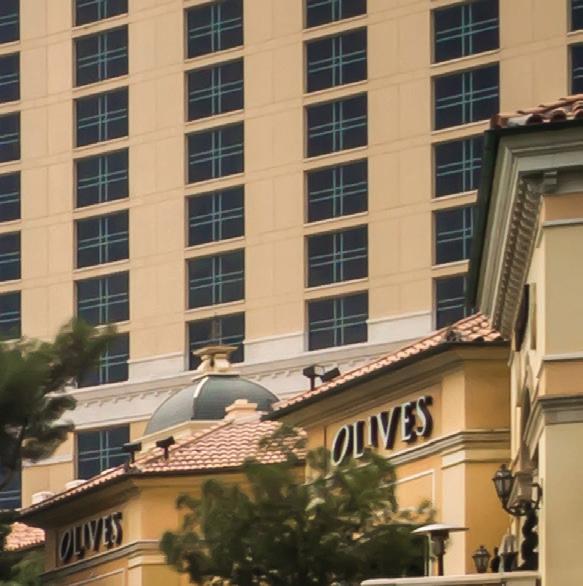







































































































OLIVER LOVAT CEO Denstone Group
a business that does.

met, you do have the right to migrate to a business that does.

Times change. Customers change. Properties change. Or they close.
Many resorts have closed in the past, more will close in the future, but in 2024, Las Vegas did pretty well. Not only was financial performance strong, the market transitioned to the next generation of customer and will continue to attract younger visitors, who will begin their own journeys and make memories, and in many ways, this group are better customers than previously.
What’s next? I am not certain, but Las Vegas is not as it was.
Oliver Lovat is the CEO of The Denstone Group, that offers strategic consultancy in resort development. His research topics are Las Vegas Customer Behavior and Strategic Positioning of Casino Resorts.

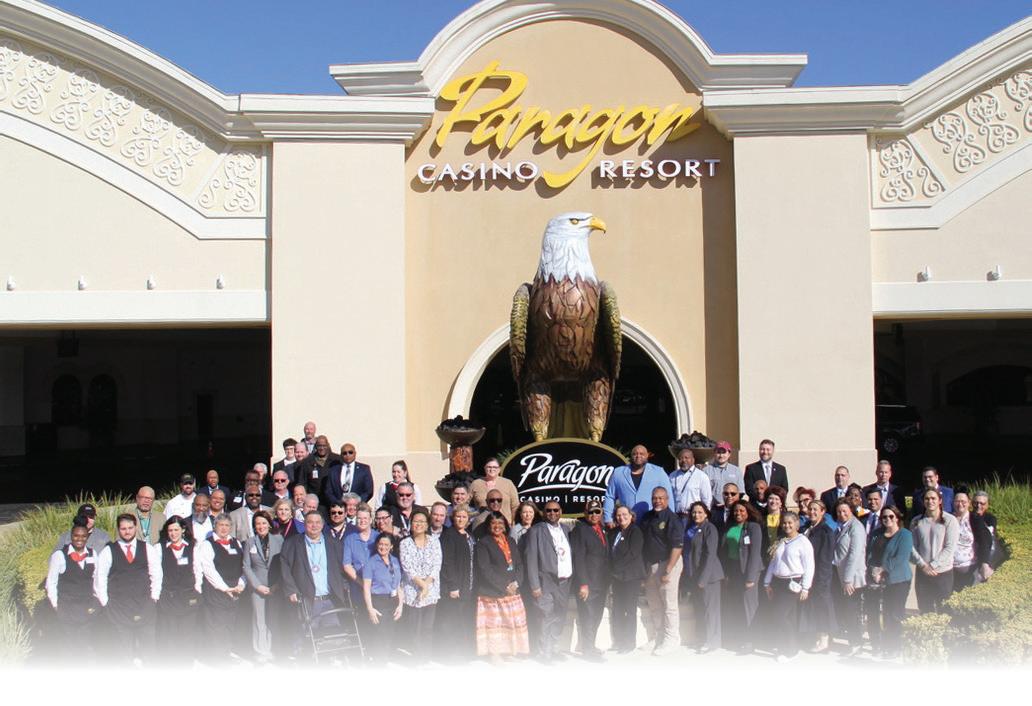
Gaming America is joined by leaders of Paragon Casino Resort to discuss diversity within the property’s executive team and how it stands out across an expanding Louisiana market.
Having recently celebrated the launch of a new Dragon Link Den on April 11, Paragon Casino Resort VP of Hospitality Emma Ford, VP of Marketing Joan Botts and VP of Human Resources & Guest Services Kimberly Haigh spoke with Gaming America to share insight on the property’s leadership and initiatives.
What does it mean to represent a property that has been so progressive in both diversity and equality across its leadership team?
Kimberly Haigh: It is very exciting. at this property we pride ourselves on diversity and on our hiring practices to support inclusion for any hire.
Joan Botts: The other thing interesting to note is that the Tunica-Biloxi Tribe of Louisiana, which oversees our property, is




































































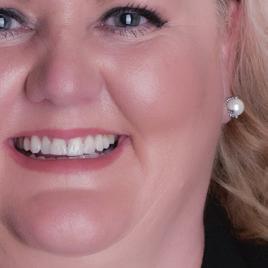






KIMBERLY HAIGH VP of Human Resources & Guest Services
Paragon Casino Resort
actually a multi-racial tribe. So it’s not just Native American; they actually have many different races across all of its members.
Having spoken on the Tribe, how do you work with Tribal leaders to ensure that not only the best interests of the property remain at the forefront, but Tribal sovereignty as well?
JB: Our General Manager, Marshall R. Sampson Jr, is also a Tribal member, citizen, leader and Vice Chairman of the Tunica-Biloxi Council. He’s worked at this property for many, many years and in the grand scheme of how Tribes work with casinos, I would say the biggest advantage for Paragon is that we are very autonomous, ironically.
We don’t have Tribal councils dictating our
strategies, but we also know to always place our top priority on their principles and the vision for their Tribal citizens – and then how that flows and manifests itself for our own associates, many of whom are not Tribal citizens. The Tribe’s headquarters is next door to our property as well, so we do a lot of things together. But when it comes to setting the direction for the property, that really comes from the executive team here at Paragon.
Emma, as the first African-American to be appointed a VP at Paragon, could you take me through your journey with the property and what it means to now hold an executive role?
Emma Ford: It’s an honor. I started off in the medical field actually, I was in nursing with three semesters left during my first clinical fundamentals at the time, but I started working for Paragon in 1996 and I haven’t left since. It’s the hospitality; it’s like a family here, it’s family oriented and I fell in love with the business side of it, to the point where I didn’t want to do the medical field anymore because I’m just an overall people’s person.
When I started working here, I just fell in love with the environment, the people and how everyone here just looked out






























for each other. It’s really an honor to be the first African-American VP; it’s exciting to see others come along right after me because it is a fair environment here and it’s been very rewarding for almost 30 years.
Of course, you mentioned the family atmosphere and that is something that’s common across Tribal properties especially, and for those who have gone the corporate route previously.
EF: I can tell you this is definitely the better place to be. Corporate is tough, it has its good points and bad points, but I think for me, this will probably be the property where I retire.
Like Joan said, the Tribe gives us an opportunity to make decisions, take care of our employees and what’s in their best interest. This means a lot because, if there’s something you want to do, you’re not waiting two months for some corporate committee to say, ‘hey, you’re good to do that or no we can’t do that.’ Being able to make decisions for our associates is huge for us and very, very rewarding.
Paragon Casino Resort recently became the largest supplier of Dragon Link slot games for casino patrons of any property in Louisiana; what went into that partnership with Aristocrat?
we’re confident it’ll help continue to keep Paragon top of mind and relevant with Louisiana gamers.
What other elements of the property help it remain prominent in Louisiana, especially as the gaming industry continues to develop throughout the state?
JB: Louisiana is easily one of the more competitive environments with so many casinos. Our location is smack dab in the middle of the Louisiana. We are surrounded by casinos within 45 minutes to two hours away from us in every direction and what I am most proud of for Paragon in its 31st year of operation is we, hands down, have more resort amenities than any other gaming property in the state. Whether it’s the resort side with the spa, the hotel, convention and meeting services, supervised childcare, arcade, movie theatre. I can also assure you that no other casino, probably in the world, has a live alligator habitat, which is featured in our Bayouthemed atrium. We actually do a show with those alligators once a month, but they’re out there every day for people to see.
We have a lot of unique elements about our property and we were the first landbased casino in the state, so a lot of things for us to hang our hat on for sure.











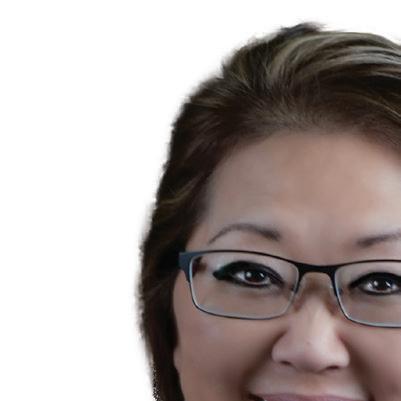




































JOAN BOTTS VP of Marketing Paragon Casino Resort
JB: We know Dragon Link games are one of the most popular slot games really across the country, but definitely in Louisiana, and the Dragon Link Den is the first-of-its-kind in the state. We now have the most Dragon Link games of any other casino in Louisiana, which includes over 20 properties, and we have 64 games across the casino with 46 of those inside the Dragon Link Den.
We did a soft opening recently and, already, the room is full. The guests love it, they’ve been hitting jackpots left and right. It was really a no-brainer for us to build some real estate space and dedicate assets to this game – because we know it performs. We’re excited about the Aristocrat partnership and















































































EMMA FORD VP of Hospitality Paragon Casino Resort
Coming off Women’s History Month, how have each of you seen female leadership become more recognizable throughout the gaming industry?
KH: Speaking from experience, I’ve been in the casino business for 25 years and it’s been a great thing to see women who are not only CEOs, but VPs of Finance and Systems and different things that are typically male-dominated roles.
I think we’ve come such a long way in this. I worked from the bottom to where I am now and it was tough. It was tough because men didn’t necessarily respect women in the early days. But it’s great to see how far things have progressed, to sit here with these women and be in the roles we’re in now; it just makes my heart very proud.
JB: My first gaming job was in 1995 in Tunica, Mississippi. I’ve worked for many

different companies, many different gaming markets and I know I’ve seen, firsthand, a definite evolution with the number of females taking senior management positions. I think that’s great to still be in an industry where we have witnessed that kind of change over time.
It’s almost cliché, I think, to talk about Women’s History Month and how far women have come. All the different achievements and accomplishments in every industry, not just gaming. It’s very prevalent even outside of Paragon in this market, and then even for Emma who’s been here the whole time, I’m sure you’ve seen that too.
EF: To Joan’s point, back in 1996, you didn’t see many VPs that were women. You probably didn’t have managers that were women either. Maybe one VP from 20 years ago that was in the hospitality field or on the gaming side, so we have come a long way.
Kimberly, what sort of responsibility do you feel in helping mentor the next generation of female leadership that could be coming through the gaming industry?
KH: I think succession, probably not just for women but in general, is tough. It’s very tough. When these ladies and I first started, I wouldn’t say we were the silent generation, but we were more of ‘your boss said do this, and we did it.’ In trying to help other females or other employees succeed, you have to learn to adjust to the generational thing,
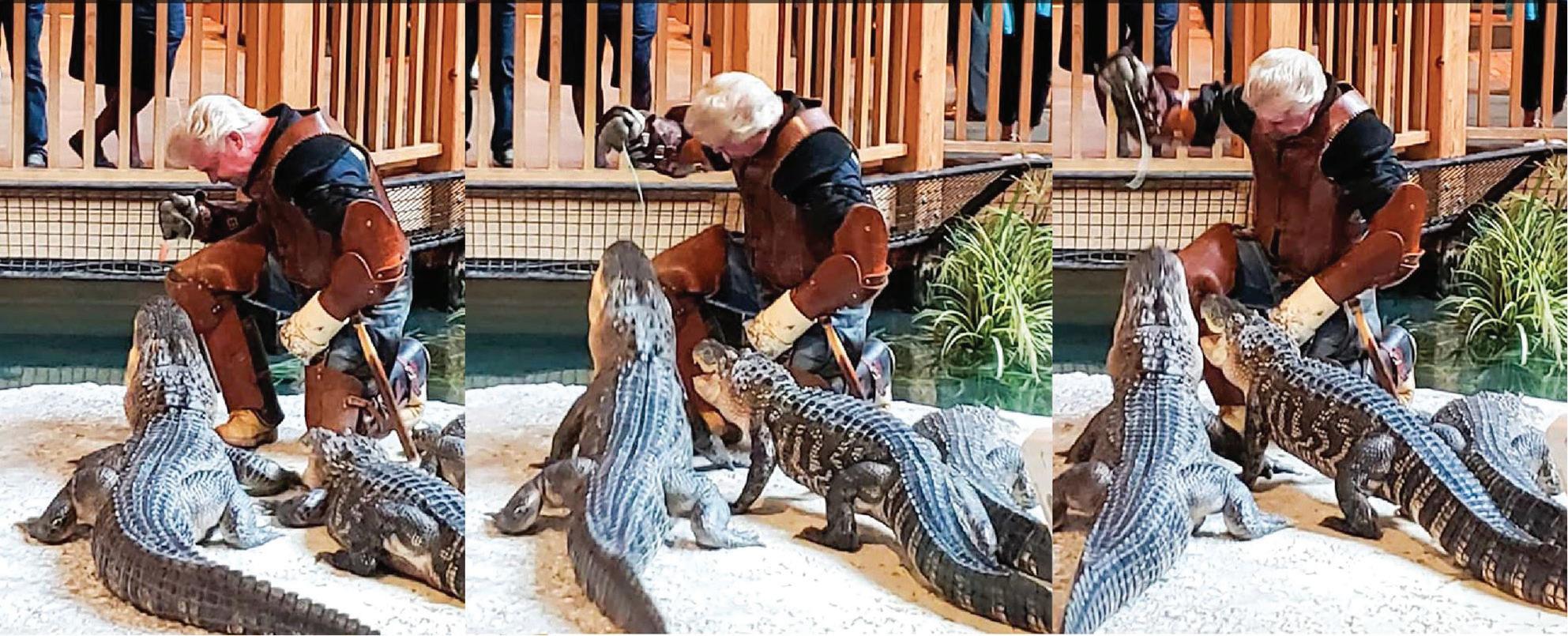
what’s important to them and ensuring our associates have training that’s available to them in pretty much whatever field they’re interested in.
Our property is unique in that the executives here are very accessible. So, if any of our associates want to talk to them and say, ‘hey, how do I, how do I succeed here? what do I do?’ they’re very happy to share their knowledge and their experience with them. That’s why we’re fortunate here that we have those executives and a Tribe that does an excellent job as far as the resources they offer their members.
What would you all say is the most critical element to leading a casino resort?
JB: It’s super important to be really aware of the competitive landscape. Being able to leverage all your own property’s strengths and figuring out the best way to create a culture and an environment for your associates, so that they can create an experience for the guests that obviously keeps them coming back.
That’s probably every casino, hotel, restaurant, hospitality venue in the world, but having that knowledge and understanding about everything around you, especially from a marketing standpoint. Also having a real good understanding of your competitors, and then figuring out the best way to profitably
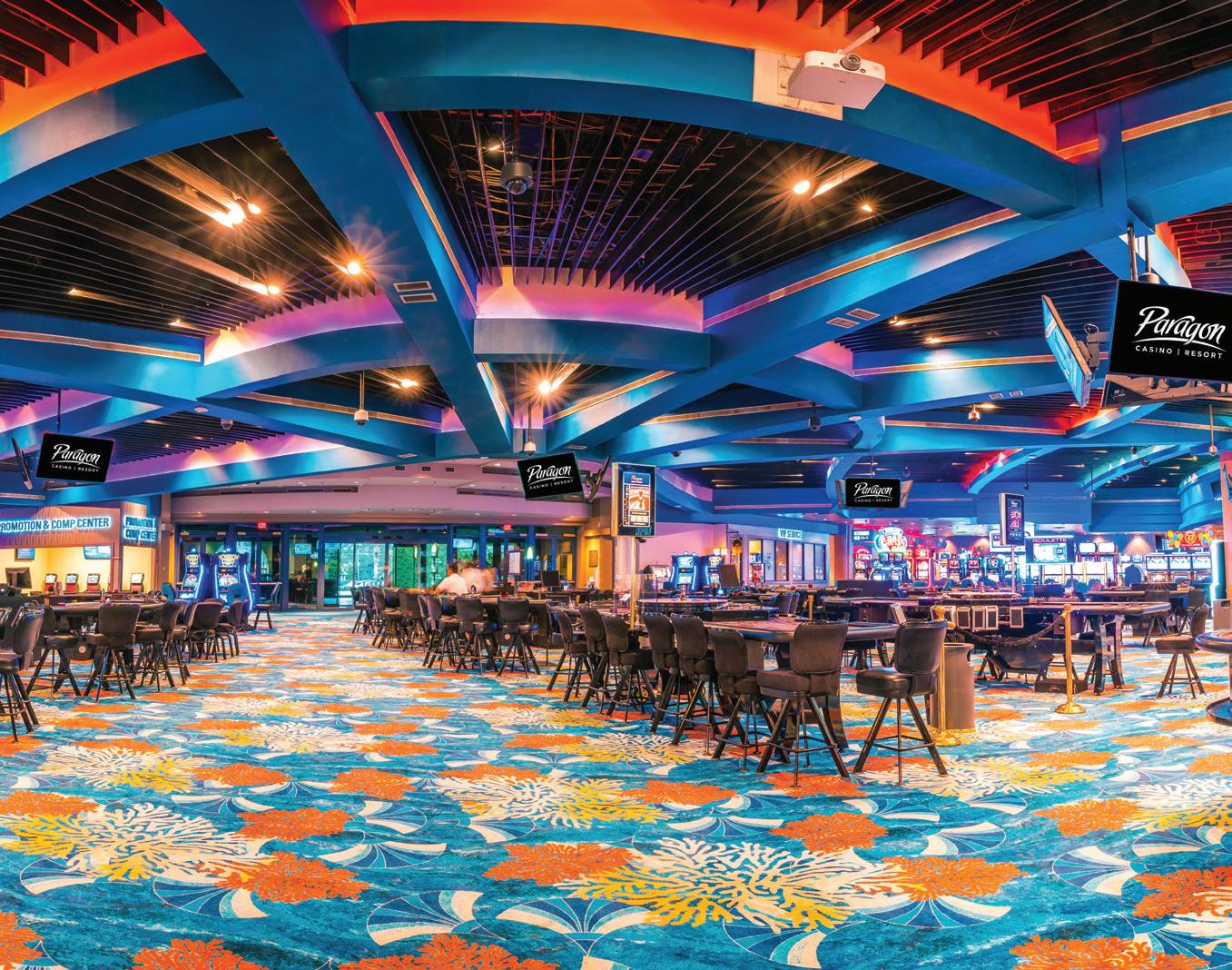
and strategically leverage those things for your own casino.
EF: For me, what’s critical in the hospitality department is making sure my associates and the guests feel like they are important and creating that environment for them. They used to say ‘if mama’s not happy, nobody’s happy.’ If your associate is not happy or dislikes what they are doing, then marketing could do all these things to bring customers here, but they won’t have a good experience. It’s maintaining and making sure
“I CAN ASSURE YOU NO OTHER CASINO, PROBABLY IN THE WORLD, HAS A LIVE ALLIGATOR HABITAT, WHICH IS FEATURED IN OUR BAYOUTHEMED ATRIUM. WE ACTUALLY DO A SHOW WITH THOSE ALLIGATORS ONCE A MONTH, BUT THEY’RE OUT THERE EVERY DAY FOR PEOPLE TO SEE.”JOAN BOTTS
my staff is happy, enjoying what they do, meeting the people of course and putting a real focus on guest service.
KH: This is my favorite part and to piggyback on what Joan and Emma said, engaging with our associates and maintaining an understanding of our competition is huge for us. We’re in a state that is so highly competitive, everybody has slot machines, we’re all brick-and-mortar, we all have the same sort of things. Now, we obviously have better amenities, but at the same time we’re all feeling that competitive nature as well.
Joan feels it from the gaming side, Emma from the hotel side, we feel it from the hiring side. We need to make sure we do what we’re known for, which is to provide that Southern hospitality because I think that’s a real thing. It’s a real, living breathing thing, and unless you’ve been here and been immersed in it, you just don’t get it.
What is that little extra we can do to make sure our guests leave here wanting to come back because they can go anywhere for the machines and the table games, but they come here for the experience that our associates provide to them. We try to keep the associates happy and engaged, we keep it fun and that is probably the best part of my job. That’s the easy part.

















Gaming America shares insight as to how Interblock Gaming went from a small company meant for developing security systems into one of the global leaders of gaming.
Interblock Gaming has a rich history spanning over three decades within gaming, having announced a number of strategic partnerships, released countless innovative products and established a strong presence in hundreds of jurisdictions. From pioneering the supply of electronic table games (ETGs) to continuing to innovate as gaming varies each year, Interblock has earned its distinction as a leader throughout the space.
What began as a small tech company in Slovenia has since evolved into a global powerhouse, expanding into over 348 jurisdictions worldwide. This transformation has been fuelled by a collective of forwardthinking leaders, engineers, and innovators whose shared commitment to technological advancement and customer satisfaction continues to drive Interblock’s success. From pioneering electronic table games (a category it helped define) to shaping the modern gaming experience, Interblock’s journey is one of innovation, strategic growth and relentless focus.
Interblock’s story begins in 1989 under the company’s original name Elektronček, which was founded by Joc Pečečnik in Mengeš, Slovenia as part of his early entrepreneurial efforts. Initially, Elektronček focused on developing and producing security systems, leveraging technical expertise to deliver advancements throughout the field.
This early phase laid the groundwork for the company’s engineering capabilities,
which would later prove instrumental in its eventual pivot toward gaming technology that followed less than a decade later. As the 1990s progressed, the supplier shifted its focus to information technology, reflecting the growing demand for digital solutions across multiple industries and representing the first example of Elektronček’s willingness to expand.
By 1997, Elektronček made a decisive move into gaming, a choice driven by a desire to combine its team’s technical strengths with the rise of a burgeoning casino market. The year marked a defining turning point for the company with the introduction of its first gaming product – Princess – a fully automated electronic roulette machine unveiled at the London Casino Exposition.
Unlike traditional table games reliant
on human dealers, Princess used real roulette wheels and balls, automated through sophisticated electronics, offering a previously unseen blend of authenticity and efficiency. The same year saw the launch of Megastar, a multi-player gaming machine supporting roulette, dice and video games, signalling Elektronček’s ambition to innovate and find its footing within the gaming space.
In 1999, the company took an additional step toward globalization by announcing the launch of Interblock, a subsidiary that would be aimed at building a global brand and sales network. The move represented a strategic effort to separate the organization’s gaming operations from its original technological roots, allowing for a focused push into
"IT'S ALMOST AS THOUGH A WHOLE NEW SEGMENT OF PLAYERS TRIED ETGS AND WERE ENCOURAGED TO STAY WITH THE PRODUCT. THE GROWTH BEFORE COVID WAS STAGGERING... BUT WHEN COVID HIT THAT TRAJECTORY SKYROCKETED."
international markets. By this time, sales had eclipsed $1.4m annually, with 70% derived from foreign markets, underscoring the company’s early success beyond Slovenia.
Entering the new millennium in 2000, Interblock released Queen and Supernova, two electronic roulette games that looked to capitalize on the growing acceptance of automated gaming throughout land-based casinos. These products introduced enhanced features such as touch-screen interfaces,
which became standard for any supplier during 2001 following the launch of the Stardust model.
This period was also characterized by rapid product renewal, as Interblock was forced to continuously refine its offerings to meet the demands of what was becoming a diversified gaming market. By 2003, the third generation of Interblock’s products had begun to enter the global stage, showcasing the company’s reputation as a pioneer in multi-player gaming technology.
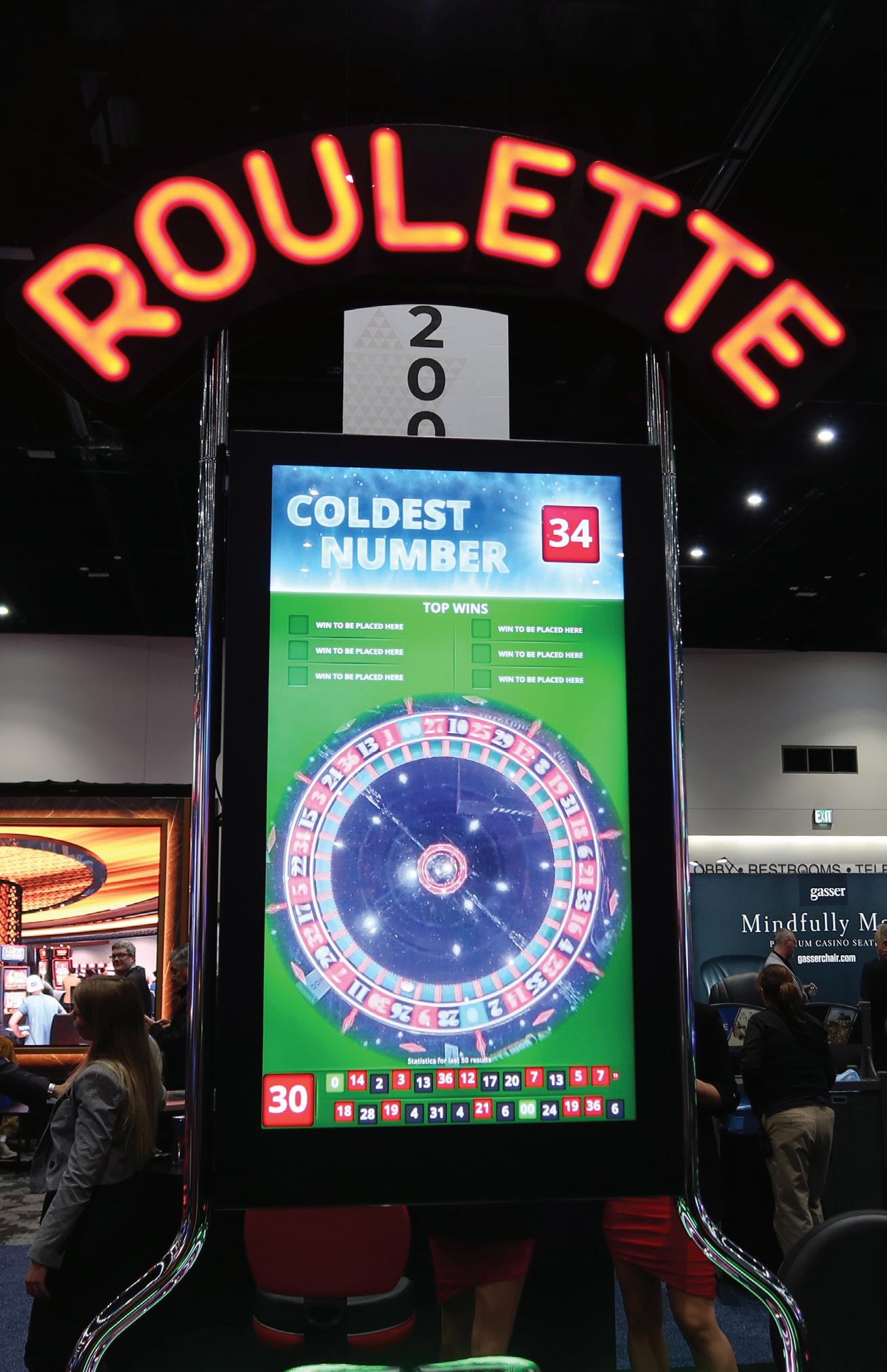
The mid-2000s is seen as a golden era for Interblock. In 2007, Interblock was selected from approximately 500 Slovenian-based firms as one the fastestgrowing companies across the country, earning the prestigious Golden Gazelle award, which highlighted Interblock’s economic impact and ability to scale rapidly. During that same year, the Golden Thread project honored Interblock for its human resources policies, placing it among Slovenia’s top employers as a testament to its growing organizational strength.
Fast forwarding to 2008, Interblock reached a new developmental milestone with the launch of the Organic line, beginning with the G4 Organic Card Blackjack. Unlike some competitors’ video-based systems, the electromechanical machine used real cards, offering players a simplified gaming experience enhanced by automation.
The Slovenian Chamber of Commerce even awarded Elektronček for the launch of G4. In December 2008, Interblock and its US subsidiary, Interblock USA, managed to secure non-restricted gaming licenses in Nevada, exemplifying a critical step for introducing the company into the country’s most potent casino market.
The 2010s saw Interblock deepen its technological innovation and global reach, including a 2011 expansion of the Organic Line to feature craps, dice, live, virtual and island variants, completing the supplier’s aspiration to become more versatile. In 2012, Interblock partnered with Musion Systems to unveil the Hologram Gaming Lounge, a futuristic platform that would go on to be recognized as one of the most innovative products across the casino space. The launch further solidified Interblock’s aim to attract new demographics on casino floors with immersive, hightech experiences.
By 2014, the company chose to completely rebrand its parent entity from Elektronček to Interblock in an effort to align its
corporate identity with its gaming-focused and rapidly developing subsidiary. Afterwards, Interblock housed its research and development (R&D) and production facilities from its headquarters in Slovenia, while subsidiaries like Interblock USA, based in Las Vegas, Interblock Asia and Interblock Casino Products Canada drove regional distribution. New products such as MiniStar Roulette and the enhanced version of a holographic gaming lounge would all make their debut on casino floors, helping to broaden Interblock’s portfolio across multiple verticals of the industry.
The Diamond line, also launched in 2014, introduced customizable multi-player systems for games like roulette, baccarat and blackjack, available in automated, dealer-assist and video formats for operators. The debuts of these new technological advancements would also set the company up for an even greater future, as the following year would bring about one of the
"FOR US, THE PANDEMIC VASTLY ACCELERATED A BUSINESS PLAN WE PUT IN PLACE. RATHER THAN OUR BUSINESS MODEL TAKING
FIVE YEARS, IT TOOK TWO."
most significant decisions Interblock has made throughout its three-decadeplus history.
During January 2015, seasoned gaming executive John Connelly was appointed as Global CEO of Interblock, seeking strategic leadership in the hopes of accelerating the company’s growth. It was at this point the definition of Electronic Table Games began to evolve
from a mechanical roulette product, often associated with slot machines, into the diversified segment of casino floors we know today.
Connelly had served as a member of Bally Technologies’ executive committee, having first joined the company in 2004 as its VP of New Business Development and Government Relations, before being promoted to SVP of International a year
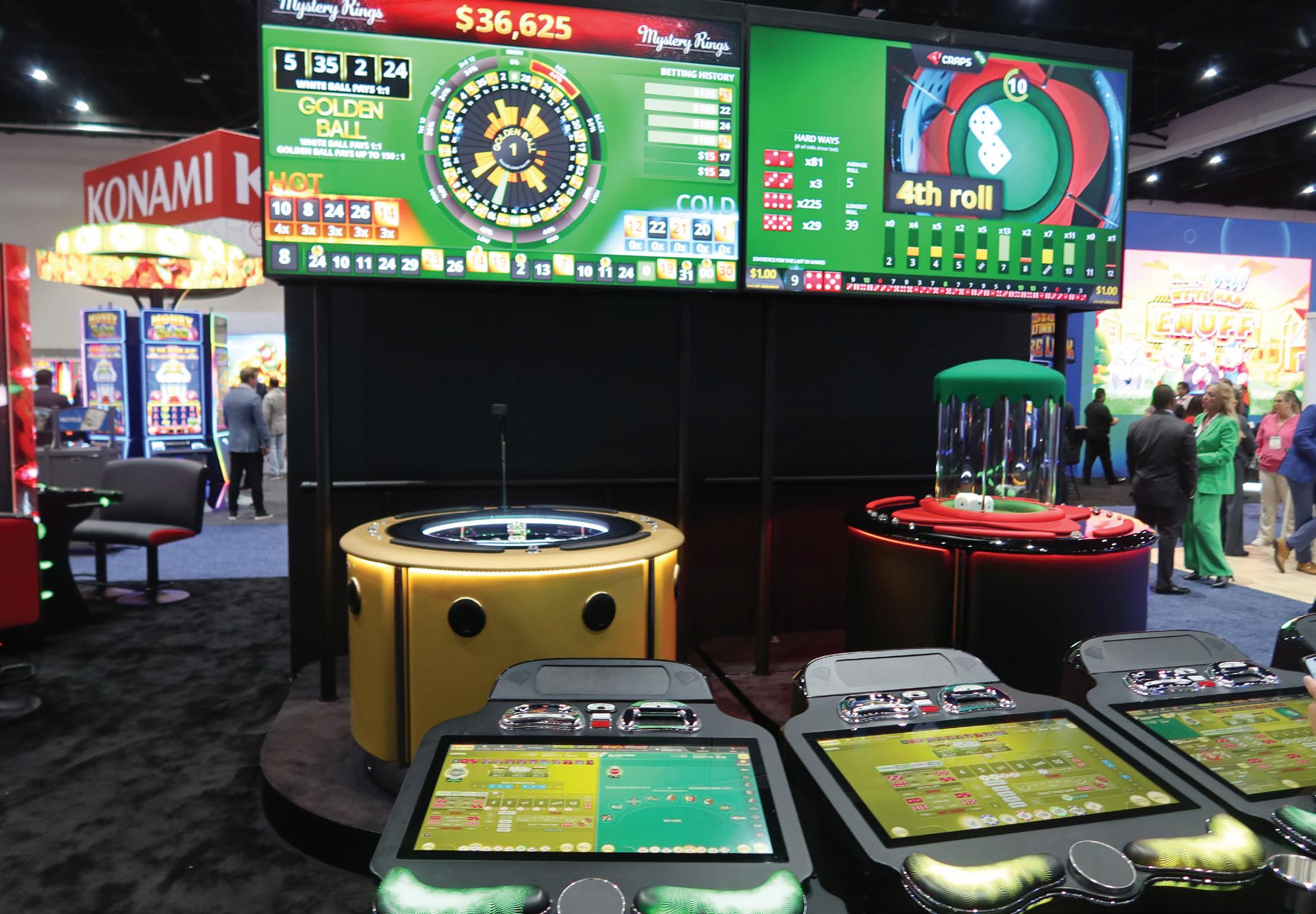
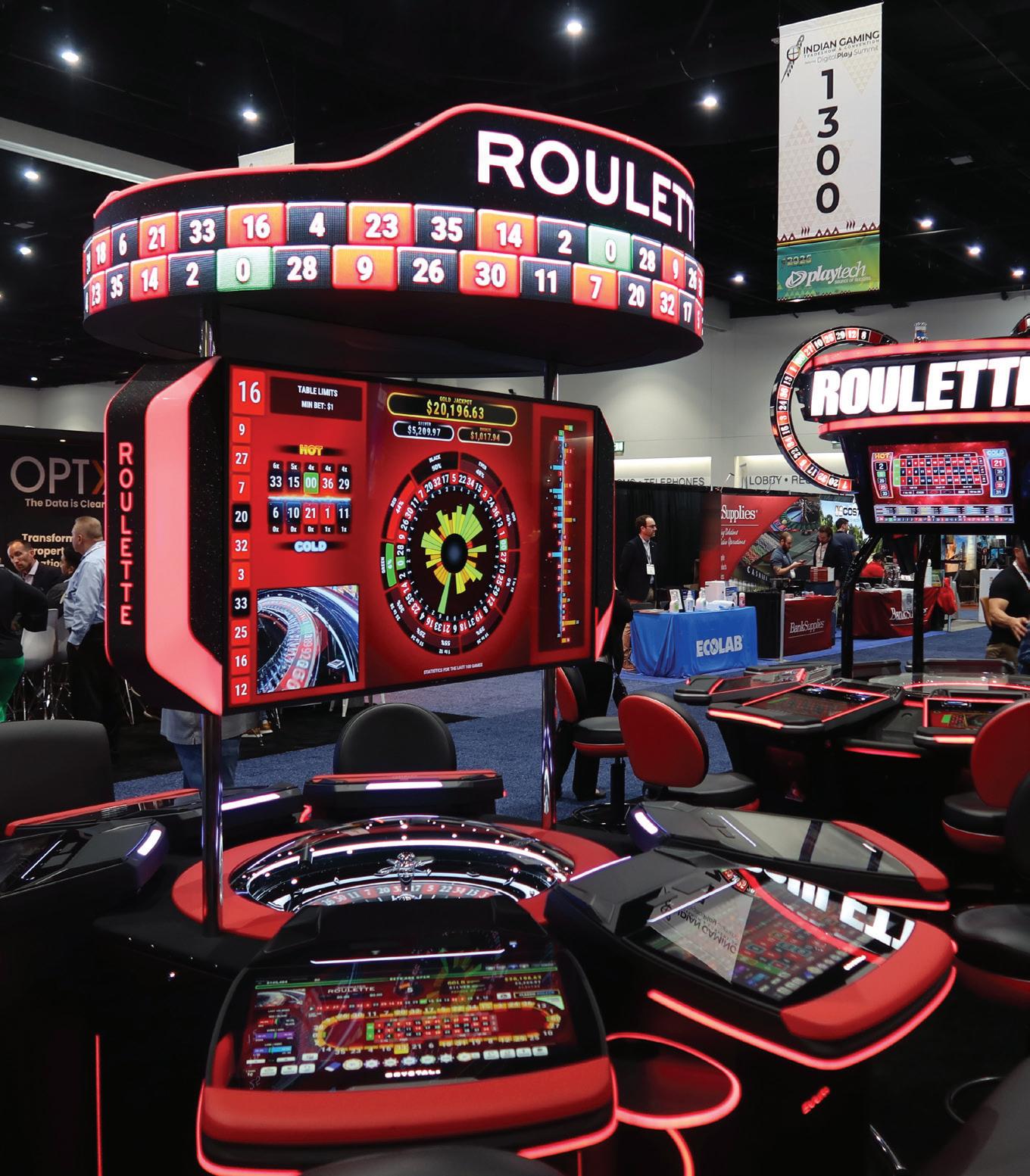
later. By 2014, Connelly was part of the executive committee and held the role of SVP of M&A and Business Development for the company. Shortly after, the company was sold to Scientific Games in August of 2014, leaving the door open for Connelly to utilize over 20 years of gaming experience and explore new opportunities.
He tells Gaming America: “While an executive at Bally, I had the opportunity to evaluate dozens of companies within the gaming sector. It was at this point I became familiar with Interblock and evaluated a new area of the casino floor, which appeared to have tremendous potential.
“Upon the sale of Bally, I began evaluating various aspects within the gaming sector that I felt were still in their infancy but had strong growth potential. From my experience, Interblock demonstrated to have the necessary components to compete within the traditional casino space and attract an entirely new segment of global gaming. It was at then that I made the decision to partner with Interblock’s Founder and subsequently joined the company in 2015.”
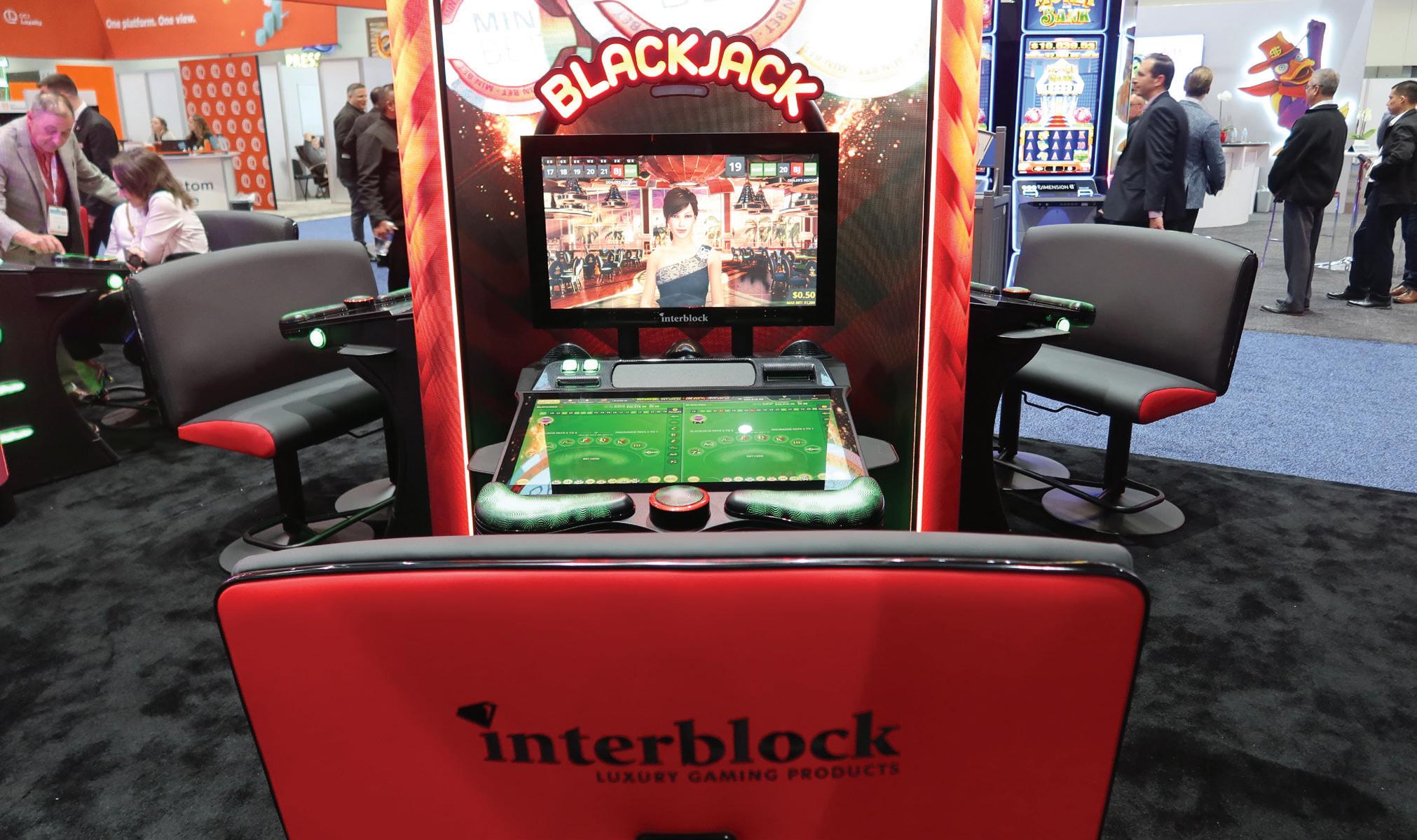
One of Connelly’s first priorities was to create a recurring revenue stream with the intention of diversifying Interblock, in every sense of the definition. At the time, the company “was comprised of a very small customer base, a limited product portfolio, and relied on a sales model highly dependent on the global economy.”
From his first day on the job, Connelly and his new team worked to build a broader product offering and establish a new player segment within gaming, eventually surpassing 348 operational markets across 145 countries and eclipsing 200 variations of its products. 2015 was also a year of significant investment in R&D from Interblock, setting the stage for future innovations such as the Pulse Arena, Universal Cabinet and Smart Pit, designed to enhance social interaction and attract a new demographic.
“When I had the privilege of joining Interblock, we immediately realized the urgent need to diversify. We couldn’t just be a company predicated around a single product – the mechanical roulette. We needed to expand our portfolio and establish the Electronic Table Game segment as a complementary offering to the more traditional slot and table games, while simultaneously building a sustainable, recurring revenue business,” Connelly says. “To achieve this vision, we needed to innovate a portfolio of products designed to attract a new wallet within the casino sector, while distributing known content through new form factors – such as blackjack, roulette, craps, baccarat, etc. We were fortunate that several of those distribution methods began to resonate not only with casinos, but with players alike. This evolution gave us new insights into ETGs and how to attract a new generation of players.”
ICE London that same year. The Covid-19 pandemic in 2020 tested the land-based gaming sector in numerous ways, but Interblock managed to adapt swiftly by introducing the Interblock Covid-19 Prevention Kit, including protective covers for terminals to ensure player safety while preserving the casino atmosphere.
Connelly speaks on the pandemic’s impact on Interblock, telling Gaming America, “Covid-19 was something no one could have anticipated, and it tested the resilience of the entire gaming industry. These types of unforeseen events can create opportunities for companies to adapt and provide solutions through innovation. Interblock’s culture enabled us to draw upon those strengths and, as a result, the pandemic significantly accelerated our five-year business plan.”

Connelly continues: “Coincidentally, the timing of the pandemic aligned with years of R&D that were scheduled to hit the market, providing us with a strategic advantage – particularly as casinos around the world were forced to close their traditional table games.”
remained loyal and demand continued. An entirely new segment of ETG players had been created, and the critical mass needed to establish Electronic Table Games as a sustainable segment within the casino industry had been achieved.”
Interblock’s product categories, such as Universal Cabinets, Stadiums, and Standalone units, quickly became commonplace on a global scale. Throughout 2021, this growth continued.
In 2022, Interblock achieved a



In 2019, the company won the Global Gaming Awards’ Land-based Product of the Year for its Stadium product line, a multi-player setup adaptable to live or automated play, while Interblock would also go on to showcase its solutions at

Connelly also speaks on the changes witnessed by Interblock during the Covid-19 era: “What was even more surprising to us post-Covid was the unexpected increase in ETG players. We had anticipated a slight pullback from the ETG category when traditional table games began to reopen; however, the players






record-breaking year, highlighted by its acquisition by Oaktree Capital, a global investment firm with a gaming portfolio and background within the space. Announced on June 7, the deal bolstered Interblock’s financial foundation, enabling further innovation and investments on a global scale. The acquisition was seen as a testament to the company’s evolution over the prior seven years, driven by a strong leadership team and a clear strategic vision. Connelly said at the time of acquisition, “We have delivered robust growth over the past seven years, which can be attributed to the company’s dedicated team of ETG specialists, best-in-class product portfolio, data-driven decision making and our continued focus on innovation. There is significant momentum within
"IN EVALUATING INTERBLOCK, I THOUGHT IT HAD THE POTENTIAL TO GO GLOBAL."
the Electronic Table Game sector, making it the right time to partner with one of the largest private equity firms in the world – Oaktree Capital. Moving forward, we are excited about our partnership with Oaktree and the ability to further accelerate our momentum, concentrating on both organic growth and potential acquisitions.”
Since this time, Interblock has continued its upward trajectory, including notable
partnerships that have blossomed the supplier into a leading force across gaming. In 2023, it celebrated global success with recognition once again from the Global Gaming Awards, affirming its leadership in ETG innovation. The supplier also expanded into online gaming through a strategic partnership with Awager for live streaming and an RGS license from Black Cow Technologies, helping create an even more diversified revenue stream.

In June 2023, Interblock completed a strategic acquisition of Aruze Gaming’s ETG assets, accelerating several of Interblock’s strategic initiatives. The purchase was just the first step in obtaining additional assets. Interblock would go on to announce
the acquisition of a majority share in Zuum Limited in 2024, a producer of Class II and Class III ETGs, slots and bingo products. The acquisition allowed Interblock to offer a wider range of gaming solutions, including affordable ETGs for price-sensitive markets, while still catering to more luxury-focused properties. Connelly shares: “One of the most memorable days in the past 14 years was when Aruze announced they were going bankrupt [not in a disparaging way, but because it was an opportunity for Interblock], due to the respect I had for them; I believed it was a very complimentary product offering to Interblock. It helped accelerate the vision we had for the ETG sector – continuing to attract new players, while diversifying our portfolio to accommodate all areas of gaming.”
“In many ways, Zuum was just as impactful, expanding our reach into an entirely new category of casinos and players we had previously struggled to serve due to Interblock’s position as a high-end luxury brand. Zuum substantially increased our penetration into casinos that had a lower net win per day and had historically been unable to afford Interblock’s products. We often use the Mercedes-Benz analogy: S-Class, E-Class and C-Class. It’s still Mercedes; however, each subset is targeted toward a different demographic profile. With Zuum, we can now address all three segments, which opens up the world for us.”
In parallel with the numerous acquisitions Interblock was pursuing, the company had also been quietly developing an entirely new segment within the gaming industry: AMUSE. In October 2024, AMUSE was introduced to the gaming industry as what is believed to be the fourth category on the casino floor –alongside slots, table games and ETGs.
This new category was specifically designed to attract a new type of player and wallet to the casino floor, while helping bridge a new generation of online players, who historically hadn’t stepped onto casino floors for entertainment. Titles featured within the AMUSE category include Marble Run, Bingo, Dragon Roulette, Roulette Xplosion and Free Fall Roulette – each offering a version of gameplay and
entertainment never before seen in the casino industry.
In addition to the numerous initiatives Interblock has been pursuing, the company has maintained a longstanding commitment to the Tribal gaming markets within the US. This dedication has resulted in the development of a new portfolio of Class II products, which Interblock intends to launch by the middle of this year.
“Obviously, the Tribal community continues to grow on an annual basis in terms of North American casino market percentage. I think most people fail to appreciate how large and influential the Tribal casino market is. We have invested a tremendous amount of time and money focusing on products designed for varioussized casinos within this sector.”
Connelly continues, “Historically, Interblock’s portfolio lacked the diversification needed to serve all tiers within the casino industry. However, through the acquisition of Zuum, this all changed. Interblock now has immediate access to a product line well suited for Class II markets. The first game to launch will be roulette, followed by craps and blackjack, with all three expected to roll out by mid-year. This marks a very exciting and transformational time.”

























































Reflecting on his time at Interblock and where the company will head throughout 2025 and beyond, Connelly sees significant growth forming within the AMUSE segment and iGaming space. With more products set to launch during the 2025 Global Gaming Expo (G2E) event in Las Vegas this October, Connelly shares how his company is constantly working to stay ahead in the gaming industry. “To enter the product roadmap within Interblock, you must first convince our Innovation Committee that your idea represents true innovation –something we call 'Leapfrogging Technology.'
“We are committed to data-driven decision-making when it comes to innovation. This, combined with fostering a culture of leadership rather than imitation mentality reinforced through a series of process-driven controls, enables the company to continuously push the boundaries of the industry. If you’re never making mistakes, you’re generally not pushing hard enough. Creating a sustainable sense of urgency within the organization will help any company remain one step ahead. This mindset laid the foundation for Interblock to introduce new ideas, such as AMUSE. We take great pride in being an innovation leader,” Connelly states.
While Interblock clearly doesn’t see a need to follow its competition, Connelly expresses that when the supplier does “see something of interest,” it is not the type of organization to say, “no one can do anything better than us.” “If we see something that’s innovative, we’ll learn from it, and we’ll then attempt to do something that’s even more transformative.”




















With gaming remaining an ever-expanding space, Interblock’s market presence has grown to levels unimaginable when the company was first founded just over 35 years ago. As Interblock continues to forge its path forward and establish a defining presence in the gaming world, Connelly and his team remain committed to delivering the most innovative products for the casino industry.
JOHN CONNELLY Global CEO Interblock
In closing, Connelly states, “We aspire for Interblock to be synonymous with table game innovation in every sense of the definition!”



























































Latin American gaming is growing at an incredible pace. As such, Gaming America will dedicate a section each issue to the development of LatAm. In this issue:








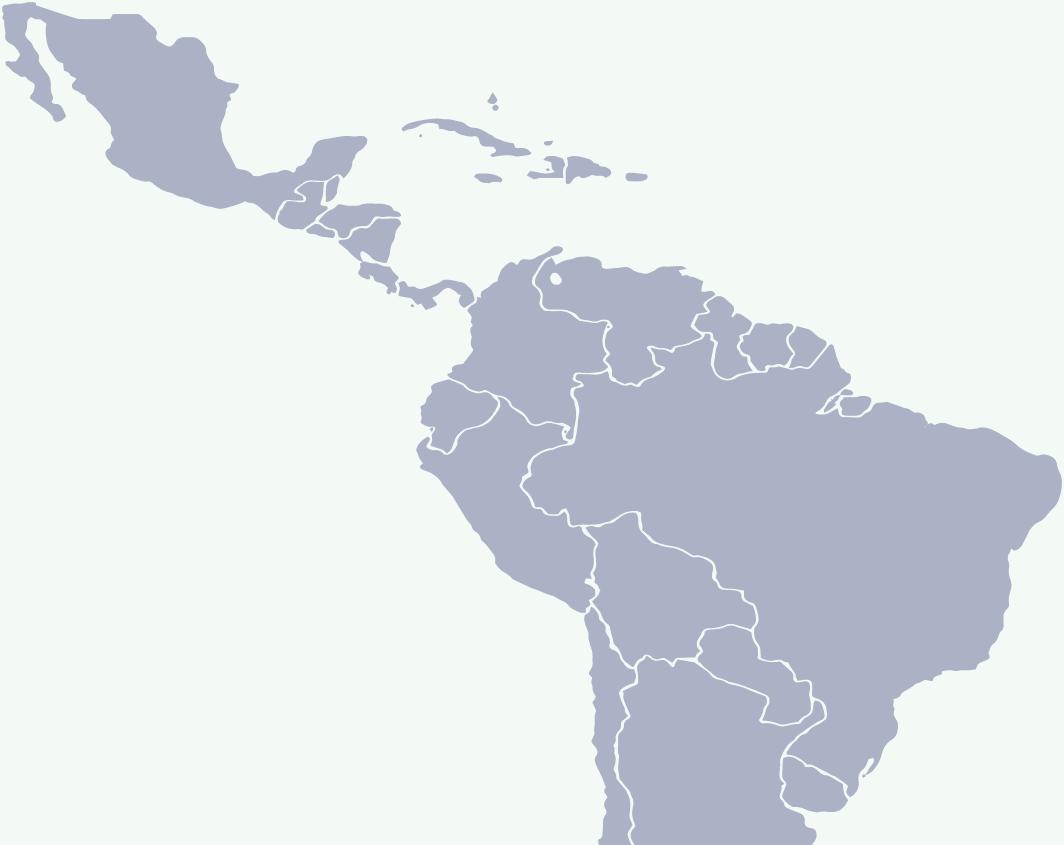
























We look at the partnerships brokered in LatAm so far in 2025












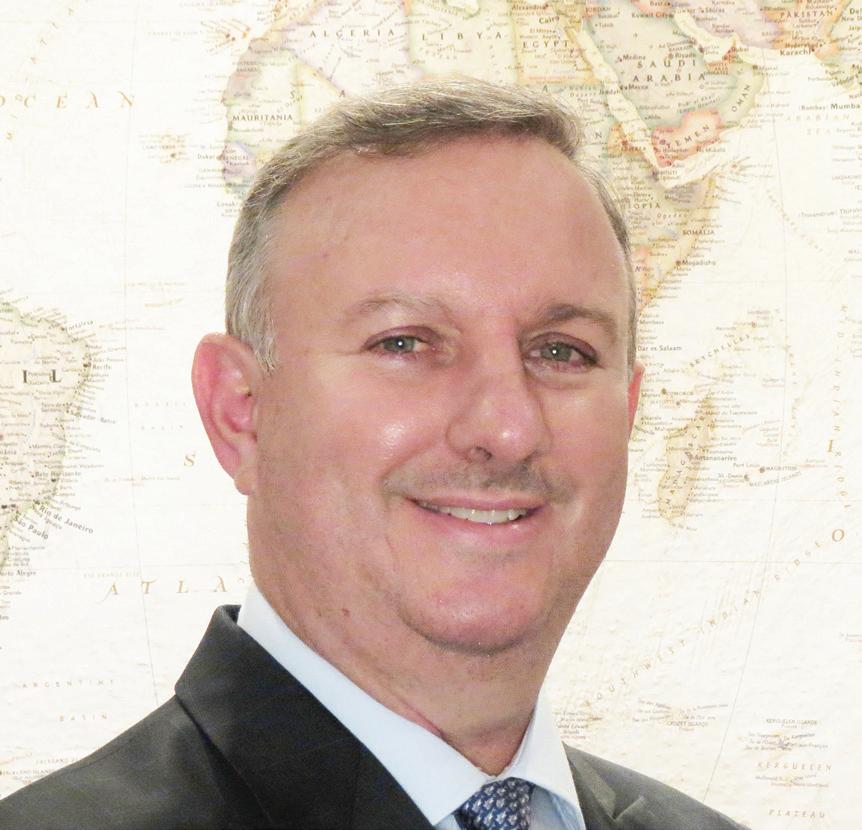





























We hear from legal expert and regular contributor Neil Montgomery











































































50




















Lawyer Ana Barbara Costa Teixeira joins our list of contributors











54



Aposta Ganha Chief Product Officer Elvis Lourenço reflects on Brazil's first regulated Q1...

































































As the LatAm gaming industry continues to expand rapidly, new regulated markets, suppliers and operators have begun forming partnerships in various countries.
Zitro has already made numerous debuts of its Concept cabinet throughout Mexico during 2025, including at properties such as Casino Flamingo, Clover Casino and MonteCarlo Casino. The supplier is expanding its presence across multiple jurisdictions in LatAm, having also entered Brazil’s newly regulated iGaming market on January 29.
Following certification for 20 of its gaming titles by the Peruvian Ministry of Foreign Trade (MINCETUR), 7777 Gaming began the distribution of its iGaming offerings in the market on January 9. The news follows the company’s confirmation of a Peruvian supplier license, which came in the latter stages of 2024. 7777 Gaming launched its first batch of certified games in Peru on January 29 through a partnership with Apuesta Total.
Inspired Entertainment expanded its partnership with Rush Street Interactive (RSI) via its two subsidiary organizations, RushBet and BetRivers, on March 10 as part of an arrangement spanning multiple jurisdictions. Indeed, Inspired and RSI have now partnered in several LatAm jurisdictions – including Colombia, Mexico and Peru – via RSI-owned and operated RushBet.


Playson announced a handful of partnerships within the Brazilian marketplace on February 4, including collaborative agreements with licensed operators such as Betano, Brazino777, Entain, EstrelaBet, Novibet and Superbet. Many of the provider’s online gaming options, including its Hold and Win titles, have now been distributed to players in the country via the operators’ platforms.

FanDuel sportsbook officially launched in Puerto Rico following the operator’s partnership with Cage Puerto Rico II (Cage Sports) on January 16. The deal also spanned across a new retail location where Cage Sports’ office in San Juan is currently set. Cage Sports currently focuses on the installation, operation and management of video lottery, VGTs, linked gaming systems and content such as sports betting throughout the Caribbean and LatAm.







Just prior to the calendar flipping to 2025, Interblock entered into a collaboration with Hipódromo Argentino de Palermo, witnessing the installation of its Reel Roulette title in a LatAm casino for the first time. Located in the Argentine capital of Buenos Aires, Hipódromo Argentino de Palermo’s Digital Lounge now offers Reel Roulette to its players as part of an eight-seat game station, as per the new arrangement.




With such focus placed on the potential of Brazil’s iGaming market, countless brands have gained the necessary licensing and authorization to officially enter the market during 2025. Meridianbet secured its online betting license in Brazil on January 2, while Kambi and Betsson went live for Brazilian customers on January 8 and February 26, respectively. Bragg Gaming and Light & Wonder have also made their respective introductions to the newly regulated market, with Bragg entering Brazil on January 7, followed soon after by Light & Wonder on January 14.


SCCG Management formed a new partnership with one of Brazil’s top mixed martial arts (MMA) leagues, SFT Combat, on February 13. Through this partnership, SCCG has begun leveraging its experience in the Brazilian gaming market to connect SFT Combat with sports betting operators and brands for sponsorship opportunities.




















Gaming America contributor Neil Montgomery provides highlights from Brazil’s start to life as a newly regulated online gaming market, alongside underlining what to expect from the rest of the year.
January 1 saw the launch of the Brazilian fixed-odds sports betting (FOSB) and iGaming regulated market at federal level, with just under 70 licensed operators (14 of which received definitive licenses as a result of the documentation submitted being in order). On March 26, the Prizes and Betting Secretariat of the Ministry of Finance (SPA), which acts as the federal regulator, announced that the number of licensed operators had grown to 80, with eight companies operating nationwide by determination of court orders. Until such date, 370 applications for a federal license had been filed. This means not only that the SPA has a large backlog of applications to handle but also that the Brazilian licensing model has been very successful, especially if one considers the license fee costing BRL 30m ($5m) and a financial reserve of BRL 5m ($833,000) also being required.
The beginning of 2025 also saw a blow to the gaming licenses issued by Loterj, the regulator of the State of Rio de Janeiro. On January 2, Supreme Court Justice André Mendonça granted the Federal Government injunctive relief determining
that Loterj license holders refrain from accepting bets from outside the territory of the State of Rio de Janeiro and implement geo-blocking tools. Despite many attempts by Loterj to overturn the ruling, in the second half of February, the Supreme Court Plenary confirmed the injunctive









relief that had been granted. The merits of this lawsuit are still be to reviewed by the Highest Court in Brazil, leaving Loterj with some hope, since the two Justices ruled that the effects of the injunctive relief should be modulated. This means license holders who obtained their licenses prior to January 2 could potentially still have a chance of accepting bets from outside state borders. Still, this could be a long battle.





















































































NEIL MONTGOMERY Founding & Managing Partner Montgomery Sociedade de Advogados
While the SPA is trying to come to terms with state regulators, Secretary Regis Dudena convened a meeting with the regulator in Brasília for April 4, for the purposes of creating a National Betting System. That date also saw the launch of the SPA’s Regulatory Agenda for 2025/2026, which received contributions from the market in general. Brazilian municipalities that issued local gaming licenses have also been targeted by the SPA, which underlines that the Federal Constitution would not provide the necessary authority for them to do so. Municipalities argue that the Supreme Court decision of 2020, which broke the Federal Union’s monopoly on the exploitation of
lotteries in Brazil, would provide such authority, especially since FOSB and iGaming were legalized in Brazil as forms of lottery. One such municipality to do so, Bodó, in the Northeastern State of Rio Grande do Norte, with less than 3,000 inhabitants, has been issuing gaming licenses (inspired by Loterj, with nationwide coverage) to dozens of interested operators for a license fee of only BRL5,000! In a recent lawsuit filed with the Supreme Court discussing such municipal authority, Justice Nunes Marques decided, for the time being, not to suspend operations under such municipal licenses.
Aside from the above-mentioned regulatory issues, the SPA’s Regulatory Agenda for 2025/2026 also signals that B2B providers, which currently do not require a license to operate in Brazil, may also have to submit to a licensing exercise towards the end of the year. In connection therewith and prompted also by licensed B2C operators urging their foreign suppliers to set up shop in Brazil (to reduce the tax burden), a new wave of foreign investment into Brazil, in the form of such B2B providers incorporating local subsidiaries, has been ascertained.
In relation to the above, licensed B2C operators are starting to experience the ordeal of defending themselves against consumer claims, which can proliferate in courts nationwide (particularly in Small Claims Courts – known in Portuguese by the acronym JEC). If such lawsuits result from damages suffered by bettors from defects in the games played on the operator’s website, operators will want to pin such liability on their B2B provider – and it will be easier to do so if the B2B provider has a door to knock on in Brazil.
Despite the above-mentioned setbacks operators can experience when doing business in Brazil, there is still tremendous interest in the Brazilian gaming market. This can be seen not only in the number of licenses issued and the backlog of license applications, but also the interest of foreign players in engaging in M&A transactions with local operators. Important players that decided either not to apply for a license initially or withdrew from the market last year may be looking closer to the Brazilian market once more and planning their comeback under acquisition mode. There will certainly be many local targets available, both for partial and full acquisition, especially since many license holders will now want to multiply their return on the investment, while obtaining a license or seeking strategic partnerships.
I anticipate that we will see more M&A transactions materializing during the second half of 2025 because operators are still adapting to the new regulatory environment and will probably need some months to
prepare for any potential M&A transactions. In any event, 2025 would be an ideal year in which to conduct such transactions, especially since one layer of cost and complexity will not apply this year: merger review control. While Brazil now adopts a pre-closing merger review methodology (where the parties to the transaction need to secure approval by the Brazilian antitrust authority, if they have recorded Brazilian group gross turnovers in the financial year prior to that in which a transaction occurred of at least BRL75m, on the one hand, and BRL750m, on the other), such exercise will not be required this year because the regulated market was only born on 1 January.
As the regulated Brazilian market progresses in the years to come (hopefully with enhanced legal and regulatory certainty), we should also start to the witness consolidation of licensed operators seeking enhanced efficiencies and market share – in what is bound to be a very large and competitive market.





Ana Bárbara Costa Teixeira, Brazilian lawyer specialized in Gambling Regulatory Law, and Founding member of AMIG (Women in the Gaming Industry Association), discusses how social media will “influence” the future of Brazil’s betting market.
“Influencer marketing,” the marketing activity of promotion by celebrities and some ordinary people with the power to influence the purchasing decisions of their followers on a variety of social media platforms, is a worldwide phenomenon and is especially relevant in the Brazilian context; where culturally more personal connections are highly valued for creating bonds of trust and, consequently, consumption. Due to this vote of confidence placed by the public,
the ethics of influencers’ conduct when promoting commercial services is the subject of so many discussions, with a near consensus on the need for more assertive regulation of this activity.
The degree of “engagement” of influencers with their communities is a direct result of the perceptions of this audience about them, such as admiration for their artistic or a sportingspecific talent, empathy with their life story, or simply liking their personality
and/or worldview, among others. Such perceptions generate a feeling of trust in the good faith and veracity of the communicators’ message, especially among the most vulnerable segment of their audience. And from this trust results the influencer’s success in “influencing” someone’s decision to purchase a certain product or service.
The betting market worldwide has sought to consolidate itself as a healthy adult entertainment industry, through











the replication of good practices from innovative operators and compliance with government regulations, which in common focus on the protection of minors and on the clear and truthful communication that gambling is fun, must be practised responsibly and does not automatically generate enrichment. However, many influencers’ related to the industry act recklessly, promising unlikely gains, falsely associating the act of playing for fun as a source of wealth, acting without due care to protect underage audiences from such content and, even worse, blatantly promoting illegal operators.
The reasons identified that lead some influencers to such questionable behavior range from lack of knowledge to the deliberate search to maximize the conversion of bettors, and consequently their own profitability. In any scenario, this irresponsible disclosure puts the activity of the entire gaming industry at risk, providing ammunition to the sector’s detractors and fueling an environment of unfair and uneconomic competition to the detriment of legal operators.
In Brazil, as in other jurisdictions, several measures are being studied on how to deal with the challenge of regulating the activity of influencers, led especially by the National Council for Advertising Self-Regulation - CONAR, an entity founded 45 years ago that brings together the main communication agents and advertisers in the country, having been included among the regulated operators. The challenge of regulating influencers is not exclusive to the gaming industry and, in 2021, CONAR published the Digital Influencer Advertising Guide Code, which standardizes good practices such as the inclusion of proper identification in communications (#publi, #publicidade) among other distinctions to clearly indicate commercial content, the need to consider the target audience and the form of communication of the message, notably among sectors of sensitive products.
Specifically regarding the betting market, in December 2023, CONAR published a specific Annex on the gambling industry linked to its Code of Ethics (the so-called “Annex X”), the result of intense debate with advertising agents, the Brazilian regulator and operators in the process of authorization, which also incorporated good practices for the sector, largely reflecting the best international experiences and of other critical sectors (e.g. alcohol), which should be observed not only by influencers, but by other media advertising gambling in the country. This regulatory framework was completed with the content of Ordinance 1231/2024 of the Secretary of Prizes and Bets, the Brazilian Betting Regulator, which incorporated in such ordinance several measures and commands brought by Annex X of Conar, and also added other specific provisions, such as special concerns in promoting responsible and healthy gaming.
Since the mere existence of regulatory commands is not enough to ensure the legality of the actions of the entire universe of influencers, other strategies and ideas have been under discussion by the industry with the regulator and within the members of the CONAR’s Betting

ANA BÁRBARA COSTA TEIXEIRA Lawyer and Founding Member AMIG
Working Group, which range from:
• If it should be required that influencers who promote the industry should provide proof of training in responsible gaming advertising, training that would be provided by entities accredited by CONAR, to ensure the integrity of the training
• The creation of a registry of influencers before CONAR, with identification and location data to speed up administrative measures for financial accountability, respecting the right of defense
• Enforcing the individual accountability of the influencers, through the standardization of back-to-back clauses in their contracts with operators
• The accreditation of influencer/ affiliate agencies before CONAR, to add a more effective layer of monitoring of influencer activities
• The cooperation partnerships with social media entities for the purpose of taking down profiles that advertise illegal operations, specifically due to the absence of a formal legal requirement for action: to be licensed in the country (which is not to be confused with the analysis of content from the perspective of free speech)
• The strengthening of technological structures for monitoring networks to speed up the identification of illegal behavior
• Strengthening and structuring channels for reporting illegal advertising by civil society, operating agents and their associations, among others In Brazil, physical casinos were banned in 1946 and, in 2004, bingo halls were formally banned. On both occasions, the main reason was society’s perception that the harmfulness of these activities outweighed the benefits of regulating them. The most important lesson learned from this story is to be very careful about how the industry communicates with society. Influencers currently play a fundamental role in this, so that the wrong actions of a few do not compromise the performance and future of everyone.

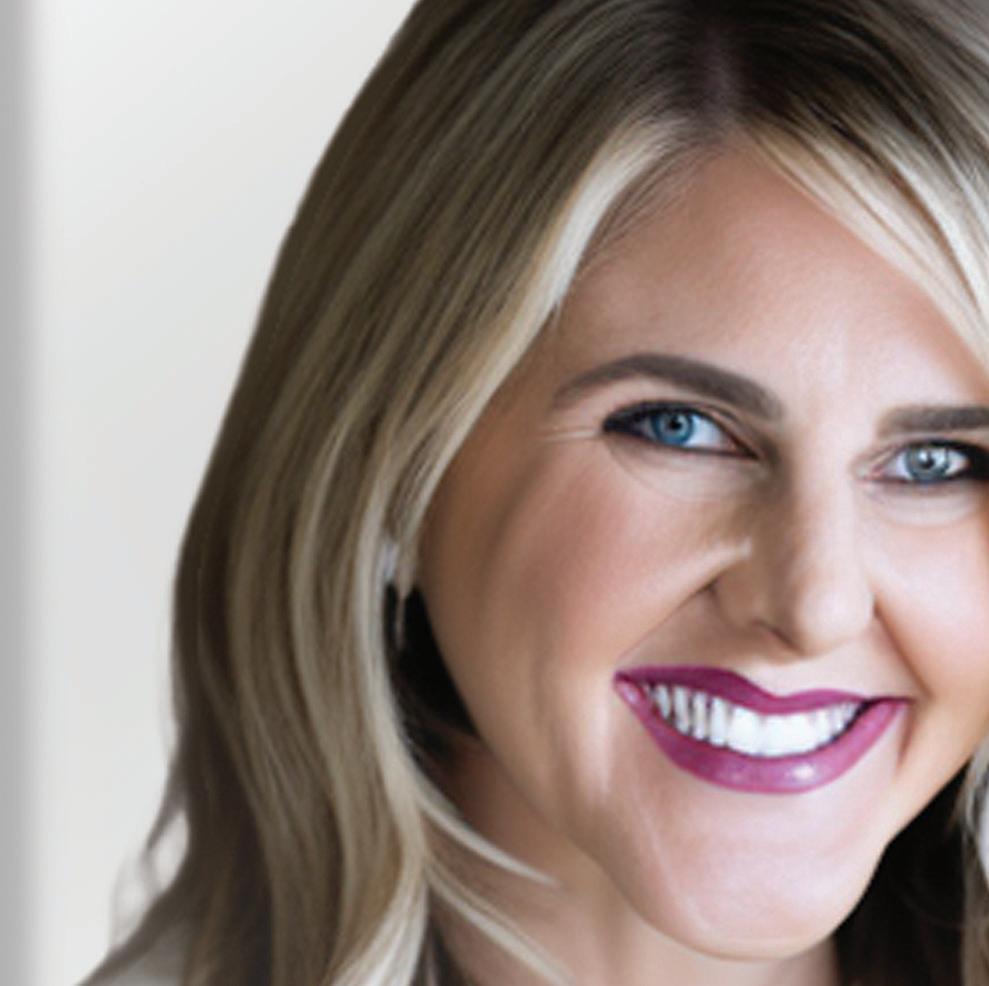













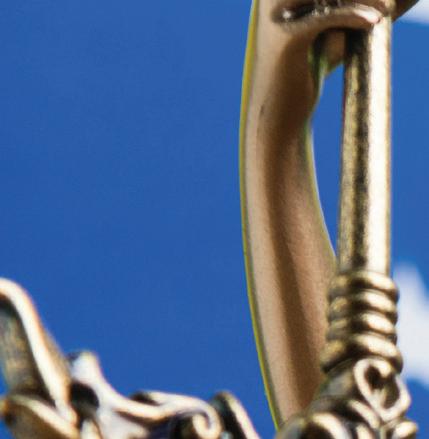
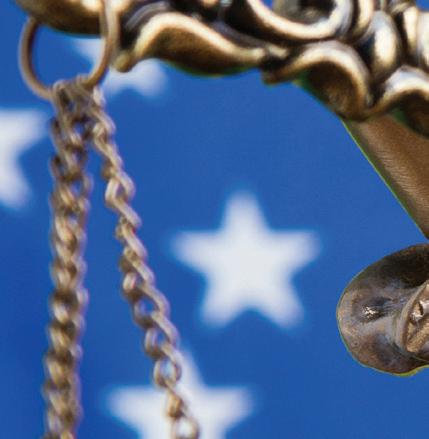


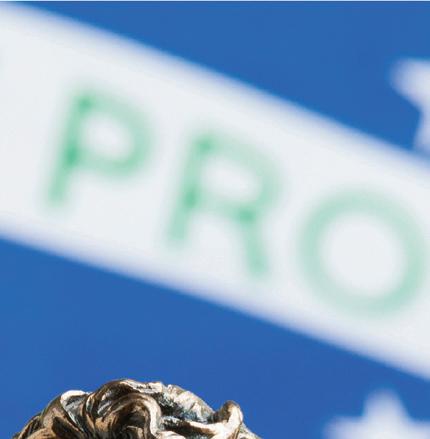


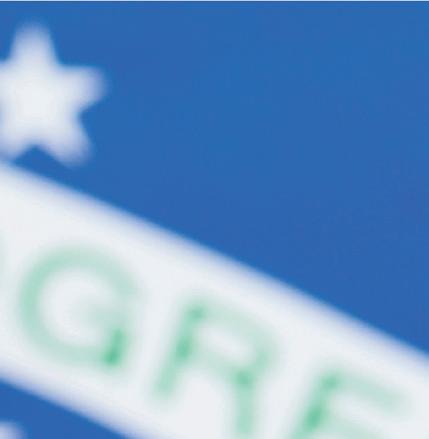







Elvis Lourenço, Chief Product Officer at Aposta Ganha, reflects on Brazil’s first regulated Q1, and what we can expect going forward.
The long-awaited start of the regulated sports betting and online gaming market in Brazil began in January 2025 – but far from being smooth sailing, the first quarter was marked by turbulence, legal disputes, user migration and strict compliance measures. The good news? The industry is already showing signs of maturity, and the next steps are set to position Brazil as one of the most important markets in the world. In this article, we analyse the key events of the first three months of regulation and what lies ahead.
MANDATORY KYC AND MASS MIGRATION: A 60% DROP IN ACTIVE USERS
The year began with a major operational and commercial challenge for licensed operators. With the new regulations in
effect, all users were required to complete the full KYC (know your customer) process, including document verification and facial recognition at the time of registration. Although the measure aims to protect players and ensure system integrity, the immediate impact was severe:
• Operators reported an average reduction of over 60% in their active user base, compared to the peak recorded in November 2024.
• Conversion rates dropped drastically due to friction in onboarding and lengthy verification processes.
• Many players migrated to offshore, unregulated platforms, which still offer quick sign-up and aggressive bonuses. This scenario exposed a strategic problem: The rigidity of the registration process could, paradoxically, empower
illegal gambling if not accompanied by educational initiatives and improvements to the user experience.
In parallel with operational challenges, the industry faced a legal battle with serious commercial implications: The controversial activity of LOTERJ, the state lottery of Rio de Janeiro, which granted licenses for operators to operate across the national territory without complying with federal regulations.
In early March, the Supreme Federal Court (STF) ruled against this unrestricted territoriality, and the Secretariat of Prizes and Betting (SPA/MF) emerged strengthened by the decision.

The outcome:
• Federal authority over national licensing was reaffirmed.
• Operators working under state licenses are now required to regularize under the federal model.
• The market gained legal certaintyto grow in a structured and predictable way. The decision also discouraged other states from pursuing similar paths, closing a chapter of regulatory uncertainty and conflict.
Another important milestone in Q1 was the beginning of the certification process for B2B companies, which provide content, games, platforms and payment solutions.
According to current regulation, all providers must submit the following by April 2025:
• Technical certifications issued by accredited laboratories.
• Proof of game integrity and certified RNGs (random number generators).
• Compliance with LGPD (data protection), consumer protection and responsible gaming standards.
Operators that continue using uncertified providers face sanctions and possible license revocation. This move ensures that the entire ecosystem – not just operators –complies with the rules.
Aware that the migration of players to unlicensed platforms increased following the implementation of mandatory KYC, the Ministry of Finance intensified its crackdown on illegal gambling.
The Ordinance MF/SPA No. 566, issued on March 20, 2025, marked a new phase in enforcement. Key measures include:
• Blocking domains and apps of unauthorized operators.
• Coordinated actions with the Central Bank, financial institutions and payment gateways to disrupt financial flows.
• Educational campaigns to warn consumers about the risks of using illegal websites.
The goal is to protect players, strengthen the regulated ecosystem and increase tax collection, which depends on player migration to legal operators.
With the first months of the regulated market marked by operational challenges and institutional progress, Q2 2025 will focus on consolidation and the implementation of essential regulatory pillars. Based on the Regulatory Agenda of the Secretariat of Prizes and Betting (SPA/MF), here are the key initiatives underway:
The SPA is preparing to roll out the Betting Monitoring and Audit System, a strategic tool that will enable:
• Real-time tracking of events and bets recorded in the regulated market;
• Detection of suspicious patterns and prevention of match-fixing;
• Generation of structured data for supervision, intelligence and transparency purposes.
This system will be a milestone in control and integrity, aligning Brazil with international best practices.
As a central pillar of the regulatory model, the SPA will intensify the implementation and enforcement of responsible gambling programs, requiring operators to:
• Offer tools for voluntary self-exclusion and limits on time and spending;
• Monitor risky behaviors, with alerts and automated interventions;
• Promote educational campaigns on conscious gambling and support channels. These requirements aim to protect players and reinforce the credibility and sustainability of the regulated market.
According to the SPA’s presentation in February, the coming months will include:
• New regulatory acts, including rules on advertising, AML (anti-money laundering) and match-fixing prevention;
• Technical guidelines for auditing, certification and internal controls of licensed operators;
• Cooperation with other public authorities, including the Central Bank, Federal Revenue Service and law enforcement.
The agenda is being executed with transparency and is continuously updated on the Ministry of Finance’s official portal.












































































The first quarter of Brazil’s regulated betting market was undoubtedly a stress test for the entire industry. The loss of active users due to mandatory KYC, the legal battle with LOTERJ, and pressure on B2B and operators to adapt were expected growing pains in a maturing market.
ELVIS LOURENÇO Chief Product Officer Aposta Ganha
On the other hand, institutional victories, strengthened federal oversight and action against illegal gambling show that Brazil is on the right track. With improvements in player onboarding and increased regulatory stability, Brazil is poised to become one of the leading global hubs for online betting by the end of 2025.
Executives from SCCG Management, Oddin.gg, BGaming, Pilot games, First and Betsson speak on the recent developments in LatAm and Brazil specifically, with an eye toward what’s to come.
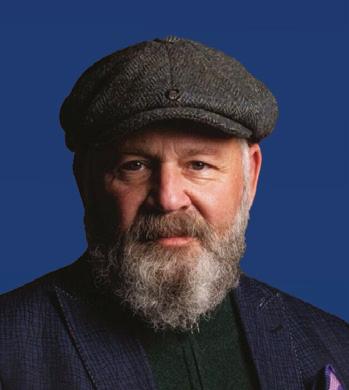




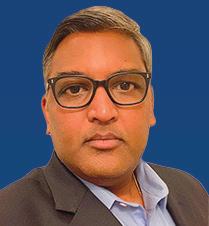


STEPHEN CRYSTAL, Founder & CEO, SCCG Management
From transforming Tribal and riverboat gaming to owning iconic Las Vegas casinos and founding the leading global advisory firm in the gambling industry, Stephen Crystal has been at the forefront of gaming innovation for over three decades. As the founder of SCCG Management, he has led $3bn in project finance, M&A and gaming technology advancements. Crystal also developed US operations for the UK’s largest privatel -held bookmaker, securing major deals with teams like the Bengals and Golden Knights, and establishing sports betting for Tribal casinos. An expert in emerging markets, Crystal has traveled to over 100 countries, supporting over 120 client-partners.
MAURICIO LIMA, Senior Business Development Manager, Oddin.gg
Mauricio Lima has over two decades of experience across diverse sectors, with an outstanding career in top esports and game publishing companies. His years of service were marked by significant achievements such as leading Esports Competitive Operations at Riot Games Brasil and directing a team of 70 professionals as Esports Associate Director at Ubisoft LatAm, where he also launched the Esports Business Development department and established foundational operational processes. Lima has contributed to top-tier esports ecosystems, which made him an ideal fit for Oddin.gg.
Paulina Hovar has nearly five years of experience in the iGaming industry. For the past three years, she has been working at BGaming as a Sales Manager with a strong focus on the Latin American market. Hovar is responsible for driving the brand’s expansion across the region and building long-term partnerships to support BGaming’s growth in LatAm.
Abhinay Bhagavatula is the CPO at Pilot Games and has over 15 years of experience in the gaming industry. He has led high-impact teams and initiatives that have opened and grown gaming markets across the globe. At Pilot Games, he leads passionate teams creating innovative, player-first experiences that merge cutting-edge technology with world-class game design.
TOM LIGHT, CEO, First - Best in Sports
Tom Light is CEO of First, an industry-leading solutions provider that is setting new standards in sports betting technology. Light's professional experience has seen him work with leading B2B providers such as Playtech and SBTech; with this knowledge he has enabled First to develop the most comprehensive selection of betting markets and trading options in the industry.
Andre Gelfi has garnered a strong international track record in the gaming and betting industry, while remaining passionate about building businesses, leading teams and navigating the intersection of innovation, regulation and market growth.

Stephen Crystal: Since Brazil’s big kickoff in January, I’ve been struck by how quickly things are taking shape. The shift from unregulated to regulated play has been smoother than expected on the structural side, even as some policies and tax details remain unfinished – early growing pains, not dealbreakers.
I’m also excited to see a unified focus on responsible gaming and clear advertising standards – not just as a regulatory box-tick but as smart business. And the buzz here is drowning out any caution, with new platforms rushing in and validating Brazil’s long-term potential.


Mauricio Lima: What’s most noticeable is the shift in expectations. Regulation has raised the bar across the board, and we’re finding that local operators are no longer just asking only for a product – they’re asking for reliable partners, specialists in esports who can support their growth with fit-for-purpose solutions tailored to a new generation of bettors. Esports betting is a huge part of that conversation now. What we’re seeing in Brazil – and indeed globally – is the transition from “esports as a niche” to “esports as a growth engine.” Operators, including our existing clients such as Betano or Stake, now want content that performs around the clock and appeals to younger audiences. Engagement is the name of the game and that means fast, flexible, mobile-first solutions.


Abhinay Bhagavatula: The official launch of Brazil’s regulated gambling and betting market in early 2025 marks a major milestone in the country’s journey toward a robust, legal gaming landscape. While it's still early days, several noteworthy trends are already emerging through our close collaboration with key partners and Pilot is excited to be an early leader in this market. As these developments continue to take shape, Brazil is clearly positioning itself as a fertile ground for growth. Game providers worldwide are watching closely – and many are preparing to bring exciting, innovative offerings to this dynamic and rapidly evolving market.


Paulina Hovar: One of the biggest changes we’ve noticed is the drop in the number of operators, which makes sense because of the new regulations. For BGaming, the process hasn’t been fast either, since we had to get our games certified in Brazil.
It’s pretty normal for a market that’s still growing, companies are adjusting. But what’s stood out is how much more trust there is now, both from players and partners, because the market is becoming more transparent and legit.


After witnessing the launch of Brazil’s regulated market, what developments have you taken notice of most as the early stages materialize



Tom Light: Brazil's regulatory and commercial landscape is evolving quickly, and First is actively engaging with partners to expand their sports betting portfolios.

Andre Gelfi: We’ve seen significant demand for licenses and growing interest from both operators and investors. As of now, over 65 operators and more than 140 brands are active in Brazil, with substantial capital still being deployed. The creative direction of marketing campaigns is evolving quickly, and we’re seeing the emergence of new channels adapted to the regulated environment. From an operational standpoint, SPA’s onboarding rules introduced some initial friction, but the offshore-to-onshore migration appears largely resolved. The regulator has also sent strong signals of its intent to enforce the rules, which is a positive step toward formalizing the market.










Stephen Crystal: Forecasts indicate the market’s onshore gross gaming revenue could nearly double from roughly $5.6bn in 2025 to around $10bn by 2029. For operators, that means tens of millions of new players to serve. For distributors and suppliers, it’s a race to provide enough localized content, payment systems and innovative tech. The momentum suggests a rising tide for all stakeholders – everyone from sportsbook operators to game studios stands to see significant upside as Brazil cements itself as a centerpiece of the global iGaming map.














Paulina Hovar: Brazil has long been seen as a market with great potential. For operators, it’s a chance to build strong relationships with players by following the rules and offering highquality content, which can help make a brand popular and attract more people. Casinos can also grow by adding certified games and exclusive solutions from providers like BGaming. It’s all about building trust and offering players something they can rely on.



Mauricio Lima: Growth in Brazil is likely to come from a combination of product differentiation and operational readiness. In the short term, we expect to see steady growth as newly licensed operators go live and begin fine-tuning their offerings. But the real opportunity lies in long-term retention and differentiation. Esports gives operators a way to speak to a demographic that’s grown up on competitive gaming and one that expects more from a betting experience. The biggest growth in Brazil, though, will come to those who don’t treat esports as an afterthought. The audience is here, the demand is clear, and with us, the tools exist to serve it properly.





Abhinay Bhagavatula: The surge in demand has everyone talking – and for good reason. Pilot Games is at the forefront, strategically aligning itself with the evolving regulatory landscape and tapping into new markets. The pace of growth will be closely tied licensing frameworks, the strength of distribution partnerships and the accessibility of products. As operators gear up to launch, the demand for both turnkey and modular gaming systems & platforms is rising sharply. Content availability is becoming a critical differentiator, and providers that are already certified, compliant, and well-versed in regulations and payment systems will hold a distinct edge.




What type of growth can be forecasted for this market, whether it be from the perspective of an operator or supplier










Tom Light: The LatAm online gambling market is projected to grow from $2.5bn in 2024 to $12.3bn by 2028, with Brazil accounting for over half of this revenue. This expansion offers substantial growth opportunities for operators, distributors and suppliers. Operators can benefit from a rapidly expanding customer base that is well-known for being passionate about sports. In addition, distributors have the chance to broaden their reach and suppliers can meet the increasing demand for gaming content and technology solutions.








Andre Gelfi: The main challenge remains market channelization. There’s still a large share of activity outside the regulated perimeter, meaning plenty of untapped potential. While official figures haven’t yet been published, with Q1 closed, we expect the first data to emerge soon. After a natural adjustment period, which is expected in this first year of regulation due to the compliance and operational requirements imposed by the framework, we foresee a new phase of market growth. This recovery will likely be driven by marketing investments, which have already begun to shape consumer awareness and engagement under the new rules.

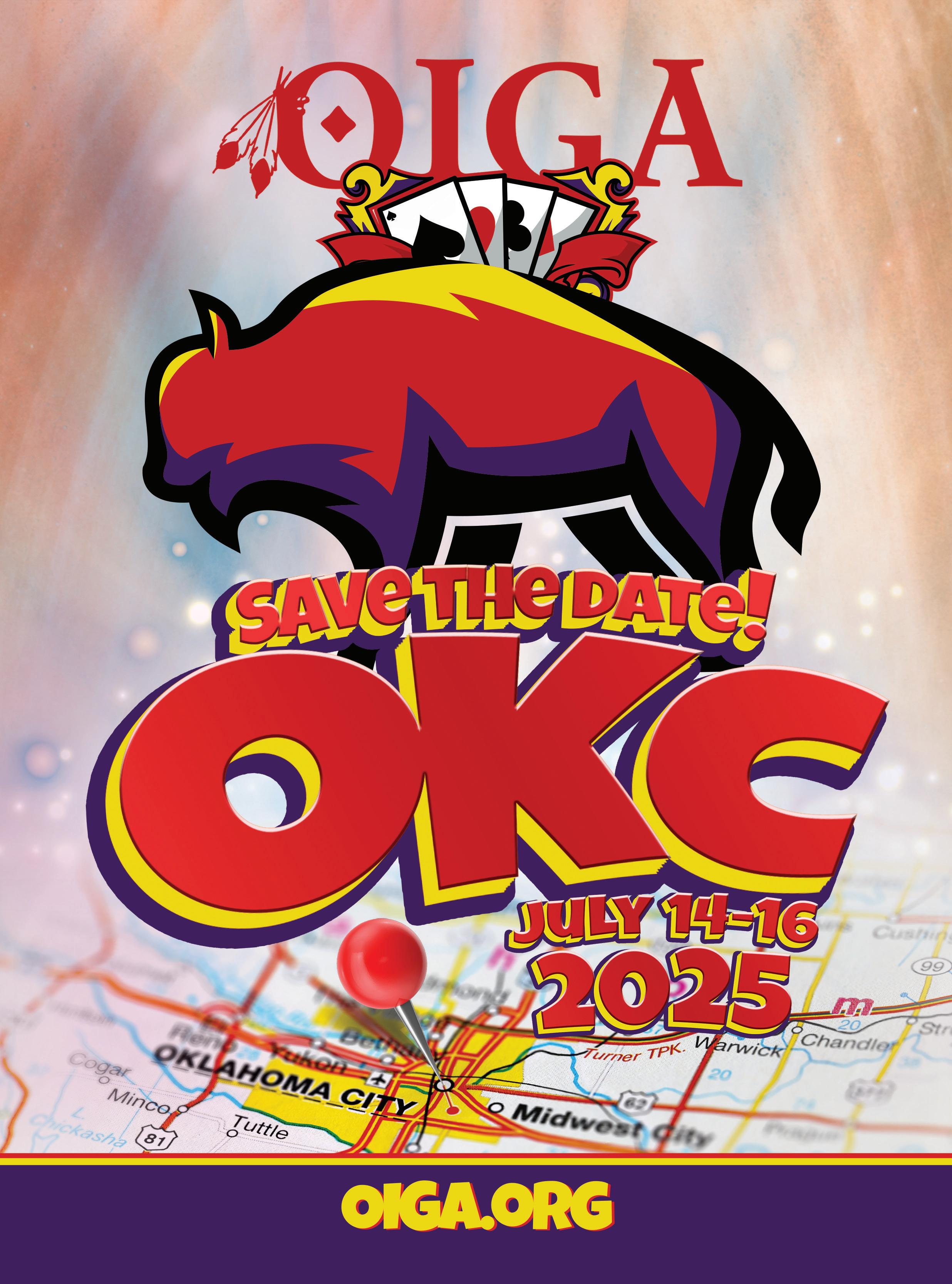









Paulina Hovar: I think we’ll see higher expectations when it comes to product quality, certification and transparency. The competition is going to get stronger, with both global and local players getting more active. That will push companies to find new ways to connect with their audience and stand out in the market.









Stephen Crystal: The industry should watch how Brazil solidifies its rules and cracks down on unregulated operators. Expect clarity on lingering issues like taxation and advertising as regulators catch up to the market’s momentum. We may even see the first major actions against grey-market platforms, showing Brazil’s commitment to channel play into the legal market. Beyond Brazil, Peru’s new online gambling framework is rolling out, and countries like Chile are pushing forward with their own regulations – inspired by Brazil’s example. Also anticipate more competition and big partnerships as everyone positions for a share of Latin America’s boom.





Mauricio Lima: Expect more operators to start asking harder questions about differentiation and engagement. The LatAm market is competitive and regulation is setting a new standard – so sportsbooks will need to think beyond just the basics. We believe esports betting will continue to grow rapidly in the region, especially with products designed to meet local expectations. Operators are looking for partners that bring expertise, not just features. That’s why our partners in LatAm are leaning into tools like BetBuilder and fast betting formats – because they’re seeing the direct impact on bettor retention and satisfaction. Beyond that, it’s worth keeping an eye on how the entertainment side of esports continues to evolve, not just in LatAm, but globally. The newest generation of bettors increasingly expects immersive, real-time engagement. And at Oddin.gg, we’re investing in exactly that – and you’ll hear more from us soon about how we’re enhancing the live experience to bring esports bettors even closer to the action.




Heading into the mid-point of this year, what should the gaming industry be on the lookout for when it pertains to Brazil or LatAm as a whole











Tom Light: By staying up-to-date with evolving regulations in Brazil and other South American countries, industry stakeholders can play constructive roles in developing high quality working environments that enable the sector to grow. Further priorities include market entry strategies, consumer protection measures and technical innovations, especially advancements in gaming technology that enhance UX and operational efficiencies.





Abhinay Bhagavatula: As we move into the heart of 2025, Latin America’s gaming industry – led by Brazil – is at a pivotal inflection point. The region is experiencing a dynamic convergence of regulatory transformation, explosive consumer growth and rapidly intensifying competition. The next few months will be critical in shaping the industry's trajectory for years to come. 2025 is a proving ground. For Brazil – and Latin America as a whole – this is the year that will define the decade ahead. The operators, platforms and regulators that can demonstrate scalable, responsible, and compliant growth over the coming months will set the tone for the future of gaming in the region.







Andre Gelfi: Market consolidation is a mid to long-term expectation. In the short term, we’re still in the setup phase, but as the industry becomes more institutionalized and revenue flows formalize, we expect to see interest from adjacent industries. This will likely translate into new partnerships and strategic alliances, further embedding the betting sector into LatAm and Brazil’s formal economy. Another key area is sports integrity. It’s worth noting that the regulator is also new to this space, and both the industry and public authorities are still adapting to the new framework. There is growing awareness of the importance of protecting competitions, and we expect this agenda to advance in the second half of the year.


Stephen Crystal: For a company like ours that specializes in bridging global gaming expertise with local markets, Brazil’s boom invites transformative partnerships. We’re connecting international game studios and tech providers with Brazilian operators, introducing advanced data analytics and helping local stakeholders implement proven models from mature markets to ensure sustainable growth. In essence, we can serve as an innovation conduit –tailoring global best practices to Brazil’s culture and scale. This fast-evolving market rewards those able to bring experience, networks and agility to the table, and we’re poised to do exactly that.

Mauricio Lima: One of the biggest opportunities is to offer something different, not just to have esports on the platform, but to deliver a dedicated, high-performing product that genuinely engages local bettors. That’s what operators across LatAm – including existing partners Betsson and Coolbet – are telling us. They want something that can stand alongside their traditional offering, not hide beneath it. They also want tailored solutions, real-time support and a roadmap that evolves with them. That’s where we come in. We’re not trying to be everything to everyone. We’re experts in esports, and we build end-to-end esports betting solutions that reflect exactly what the esports audience wants: 24/7 content and interactive features that make betting feel part of the experience. We also have an active presence in the region, with dedicated coverage of Brazil and Spanish-speaking LatAm. It’s this “boots-on-the-ground” local insight that helps us align our offering to real market needs, not just assumptions.



Abhinay Bhagavatula: With a proven track record of launching in new markets and driving innovation through its cutting-edge products, Pilot Games sees Latin America as a natural next step in its growth journey. As the LatAm gaming industry continues to evolve, Pilot Games is uniquely positioned to serve as a bridge between world-class gaming technology and the region’s distinct player preferences. Leveraging its expertise and robust tech foundation, the company is poised to bring tailored solutions that resonate with local audiences.



Paulina Hovar: For BGaming, it’s a great chance to create and promote more local content, and strengthen our presence in the region. We can connect with new partners and also run promos with the clients we already work with in the market. There’s a lot of room to grow and be more visible across LatAm.
With LatAm evolving at an exponential pace, which opportunities could present themselves for a company such as yours





Tom Light: The exponential growth of Latin America's gaming industry presents several opportunities including market expansion in areas such as Brazil, Peru and Chile, product diversification, strategic partnerships and responsible growth.



Andre Gelfi: Brazil is now fully integrated into the fast-growing, regulated LatAm landscape – and it’s the region’s largest market by far. This will remain the primary focus for operators and B2B providers in the coming years. Importantly, as more countries across Latin America regulate their markets, we anticipate the emergence of regional synergies that will generate competitive advantages through scale. Operators with a strong presence in multiple jurisdictions are particularly well-positioned to benefit from this dynamic, optimising operations, marketing strategies and technology infrastructure across markets. In terms of M&A, we expect more concrete movement to begin later this year or in 2026, as the market starts to mature and players look to consolidate or expand regionally.


Gaming America looks at the latest offerings on the casino floor; in this issue, we look at products from IGT, FABICash and Interblock
Magic Treasures Gold represents an evolution of IGT’s successful Magic Treasures slot title, which was released on casino floors shortly before the next step in the offering’s design and configuration. While the original version of Magic Treasures features a Moneyball Pot that grew over time and eventually triggered a Moneyball feature, Magic Treasures Gold has three separate Moneyball pots, creating a diversified experience for players of not knowing which jackpot may hit. Each Moneyball pot grows at an independent rate, creating a deeper and engaging title for players as compared to the original for-sale version.
Magic Treasures Gold Emperor includes a free games feature while Magic Treasures


Gold Empress holds a cash spins feature for players. Both continue to offer a jackpot feature and maintain elements from Magic Treasures which is still recognizable to any casino player. Both titles are included as part of IGT’s RISE55 cabinet, designed to deliver an immersive experience while optimizing floor space with its sleek design, ultra-highdefinition 55-inch screen, state-of-the-art lighting and advanced ergonomics.
While much of the excitement surrounding Magic Treasures was the bonus features, the new titles feature a jackpot bonus which essentially acts as a match-three, which can be multiplied by 3x, 5x or even 9x the wager amount. Magic Treasures Gold is currently testing to three or even 3.5x house average at extremely competitive properties, creating noticeable anticipation amongst IGT executives to bring the new offering to market in a short time.




"DESIGNED TO DELIVER AN IMMERSIVE EXPERIENCE WHILE OPTIMIZING FLOOR SPACE WITH ITS SLEEK DESIGN."

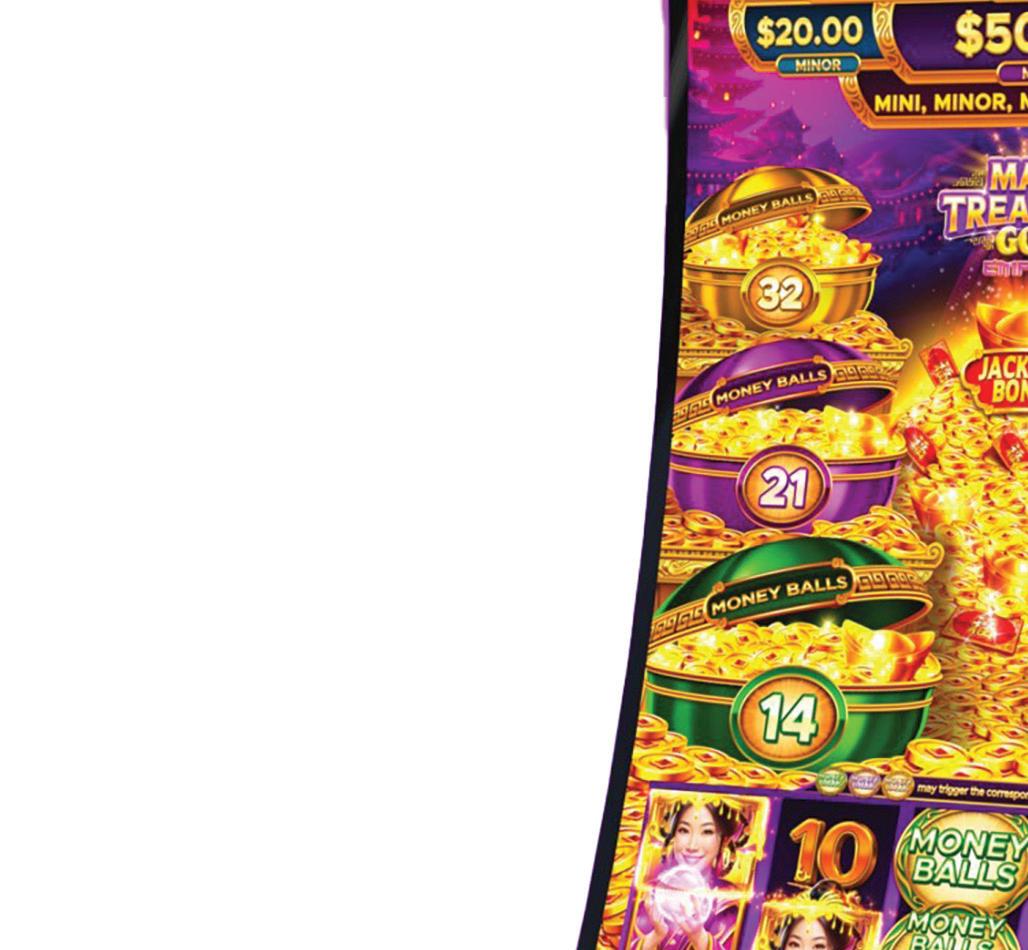

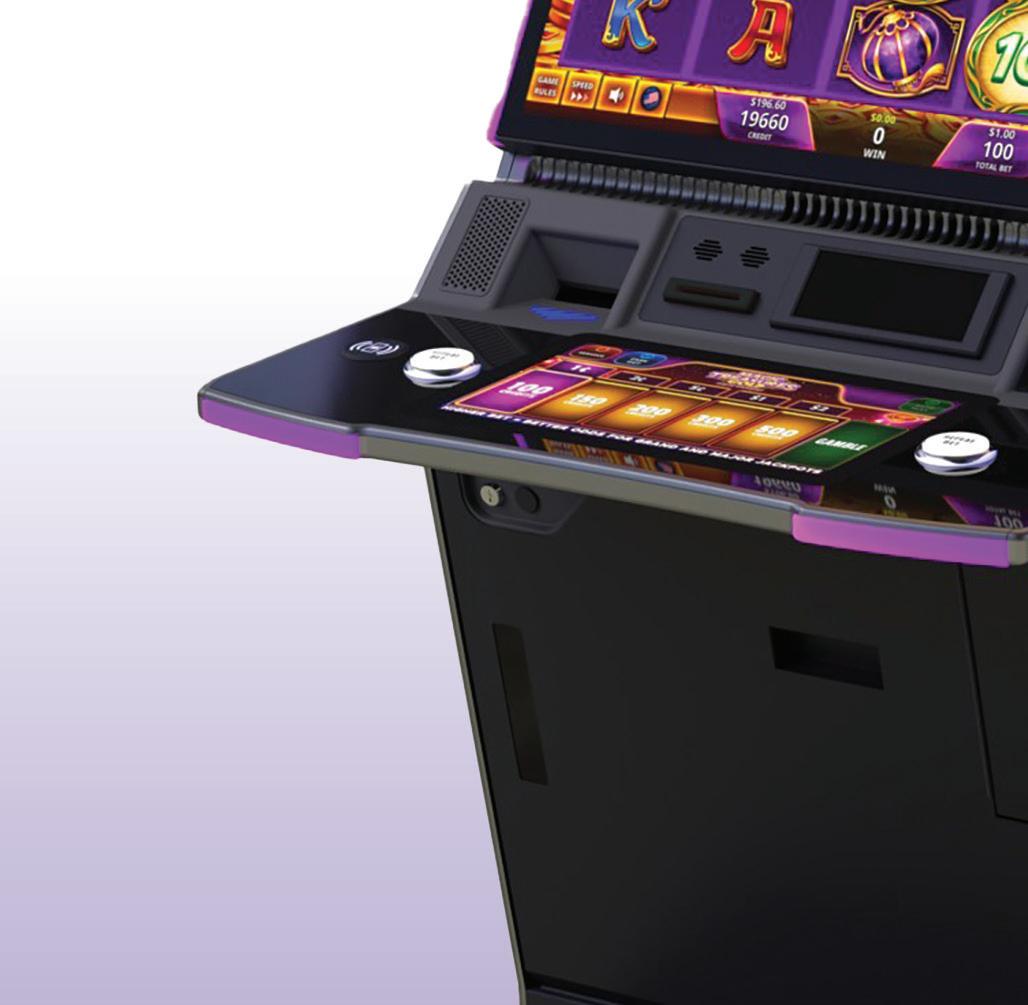

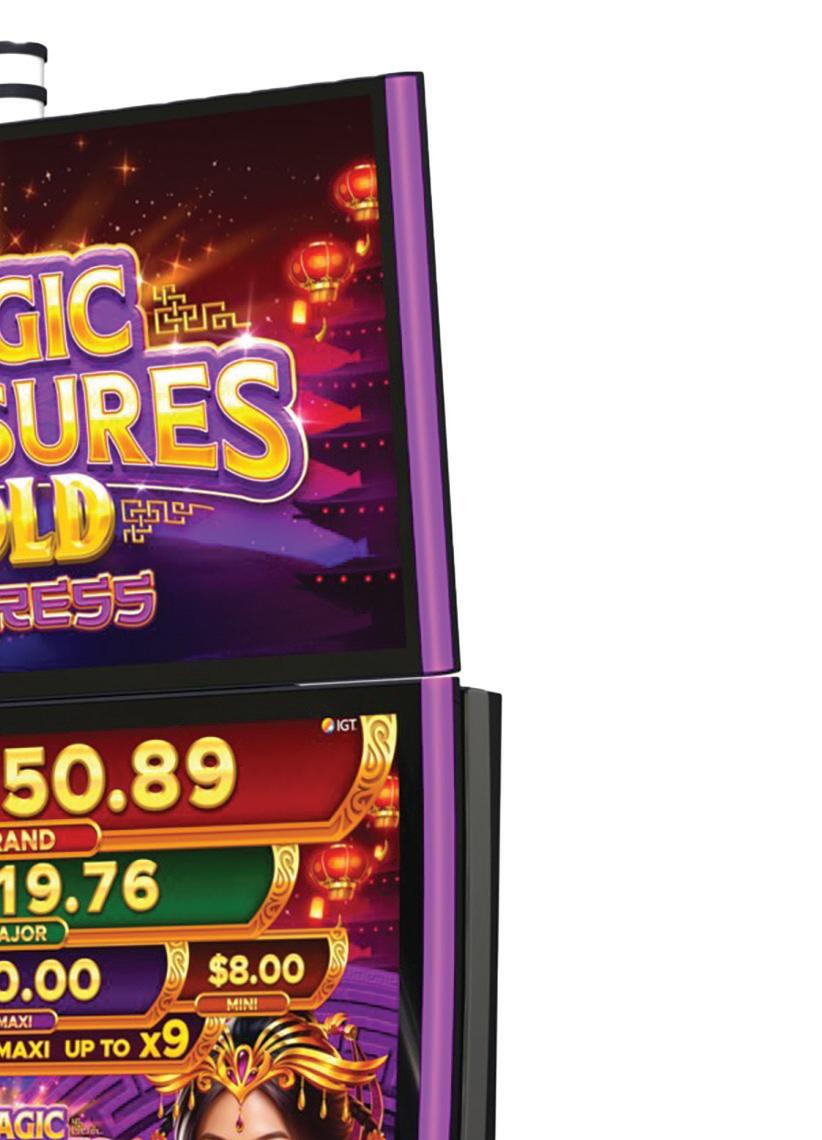
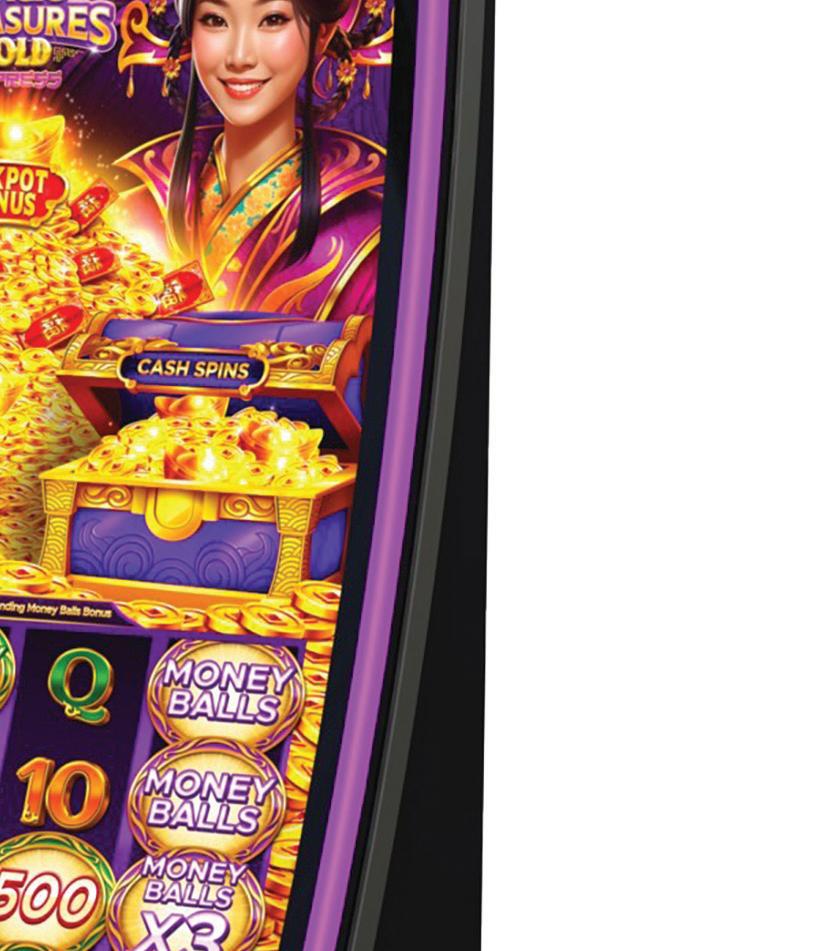
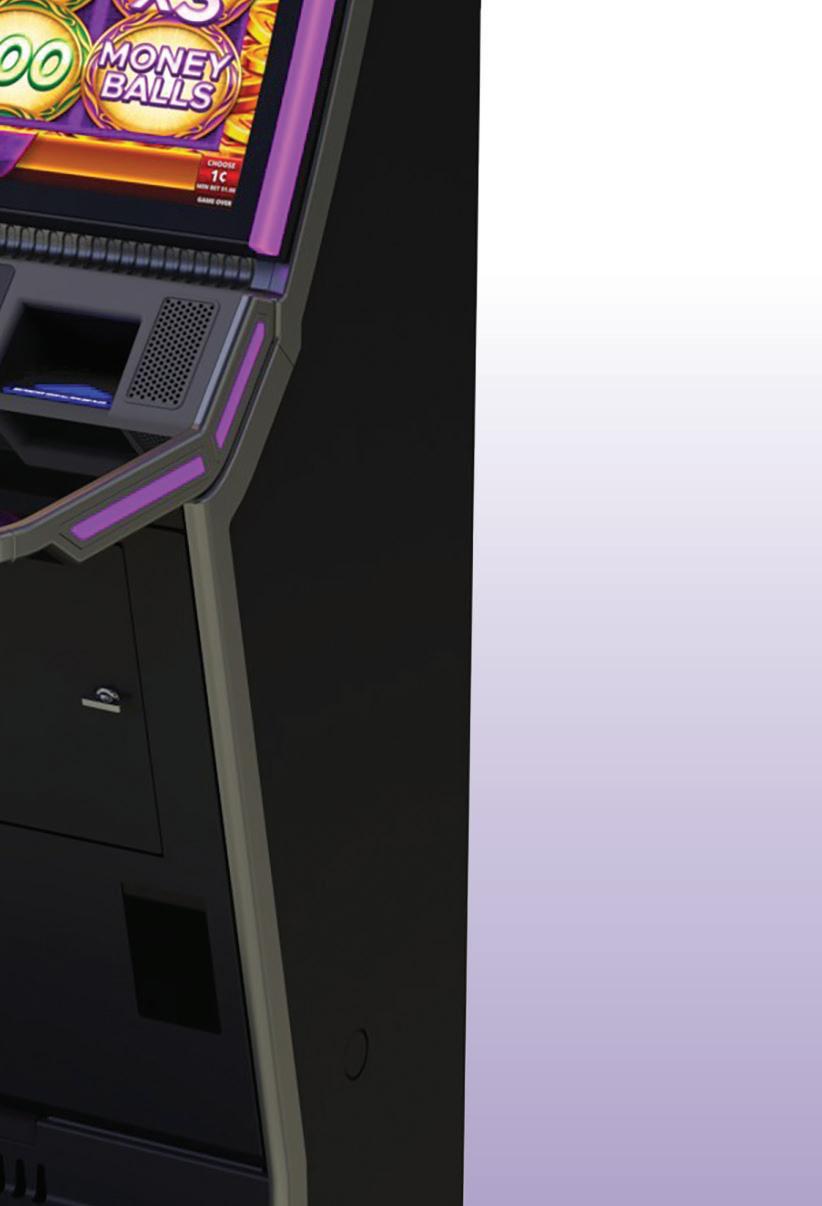

The FABILoyalty kiosk allows players to enroll in loyalty programs as well as print their player’s cards and reprint it, no matter if they lose it, using an ID, driver’s licence or passport, a first from FABICash in the gaming scene. The kiosk also allows casinos to create more resourceful player’s clubs, as 24/7 service would no longer be required as cards can be physically printed at each station.
In addition to printing and enrolling in the loyalty programs, players are able to see every offering from the casino in a single kiosk, including slots, table games and ETGs. Manufacturing its technology out of Las Vegas, Nevada, FABILoyalty Kiosks are the only stations designed to offer operators exactly what is desired. Handing casinos the “magic wand” of FABILand, the company allows operators to use its imagination to turn any ideal rewards system into a reality.
Offering a sleek design, customization tools, Know Your Customer (KYC) functionalities, promotions and facial identification, FABILoyalty Kiosks are able to offer infinite amounts of creative design for casinos. The kiosk’s royal blue color with gold accents is consistent with the entire FABI product line, making a more uniform appearance for FABI’s casino customers.
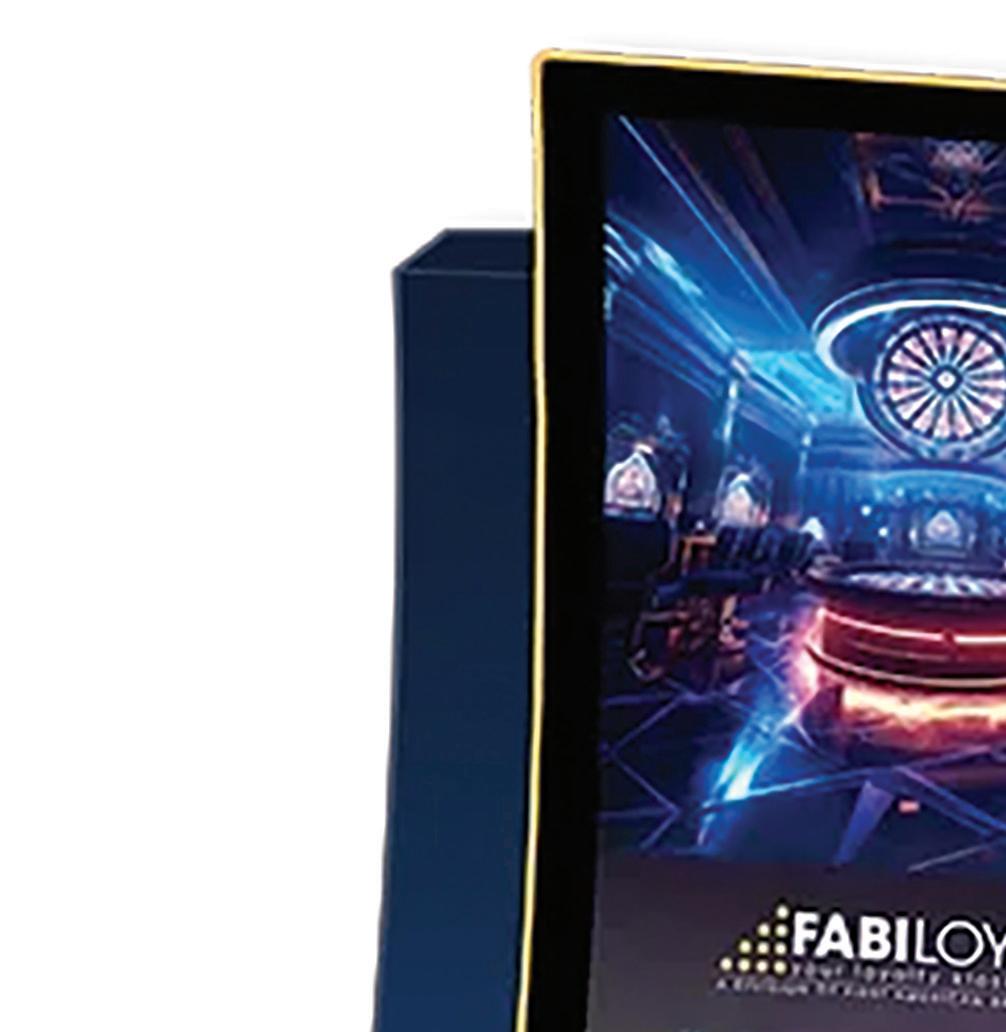
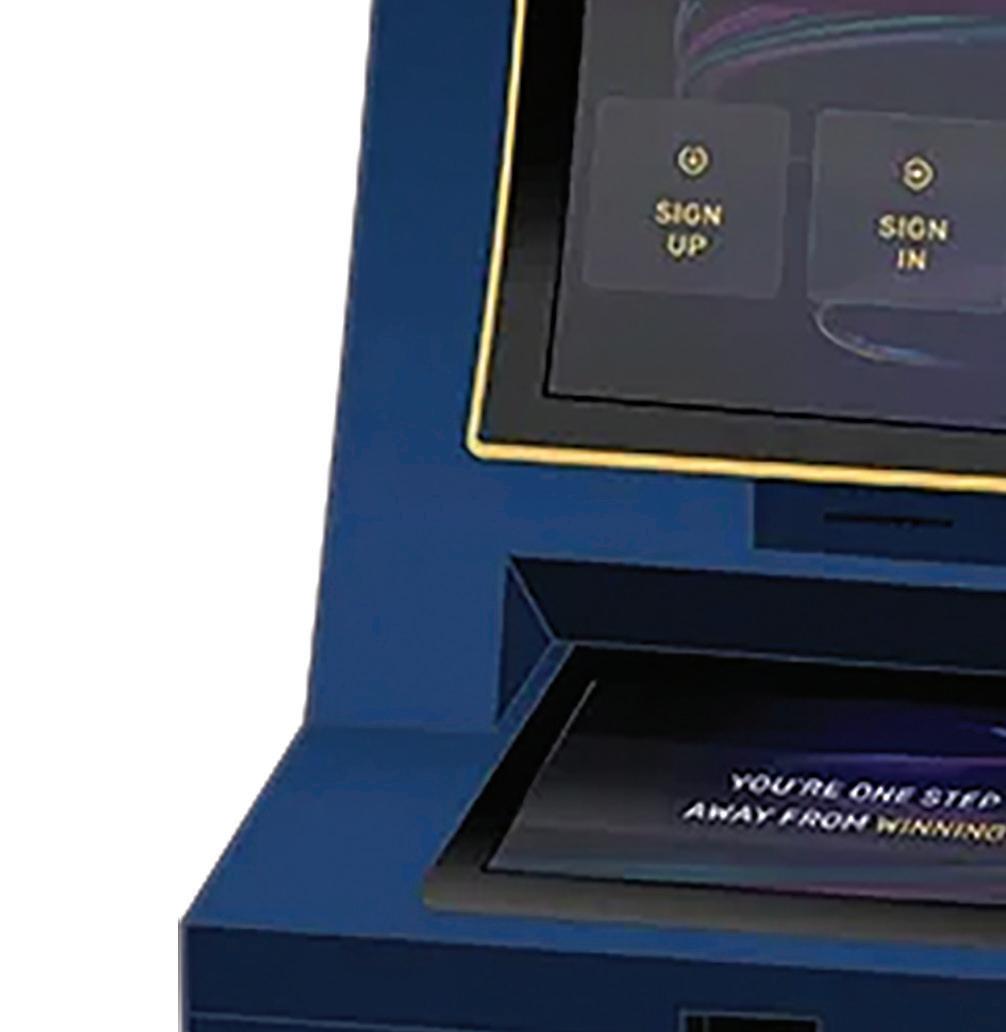
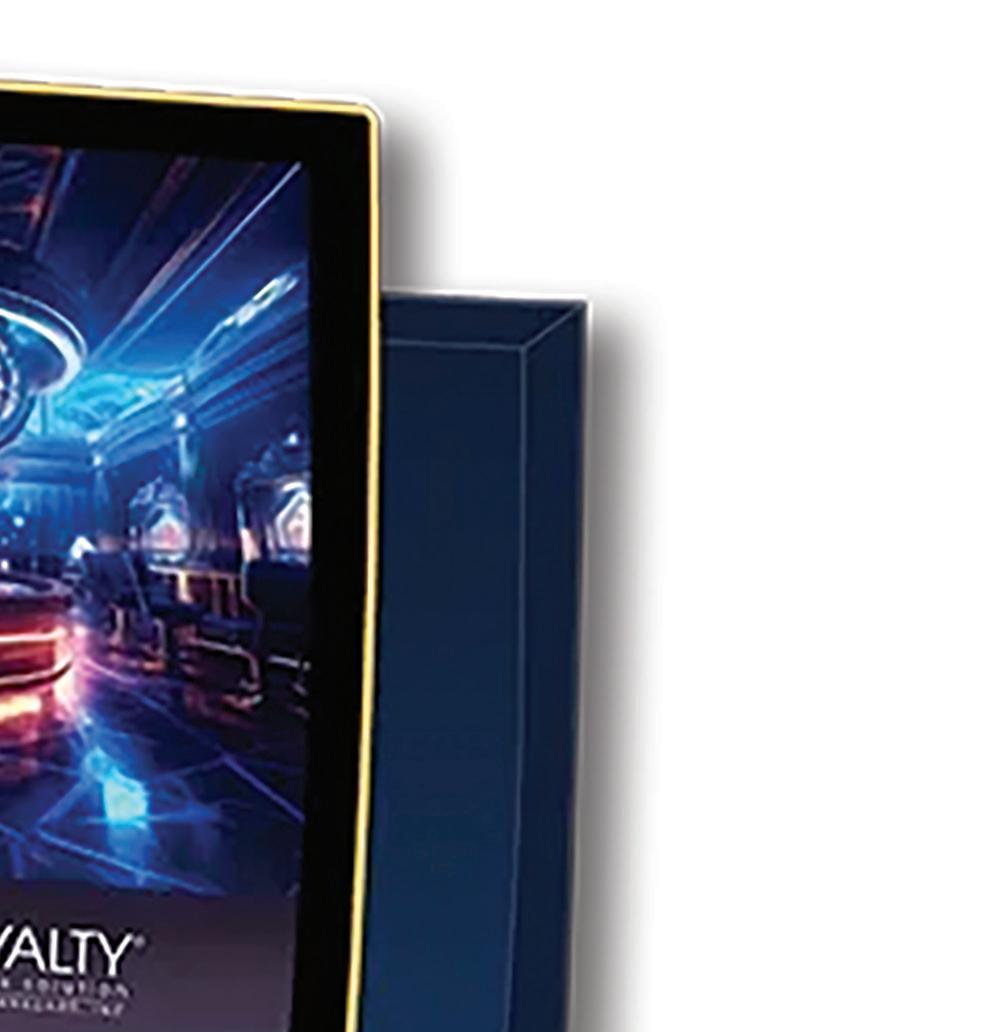
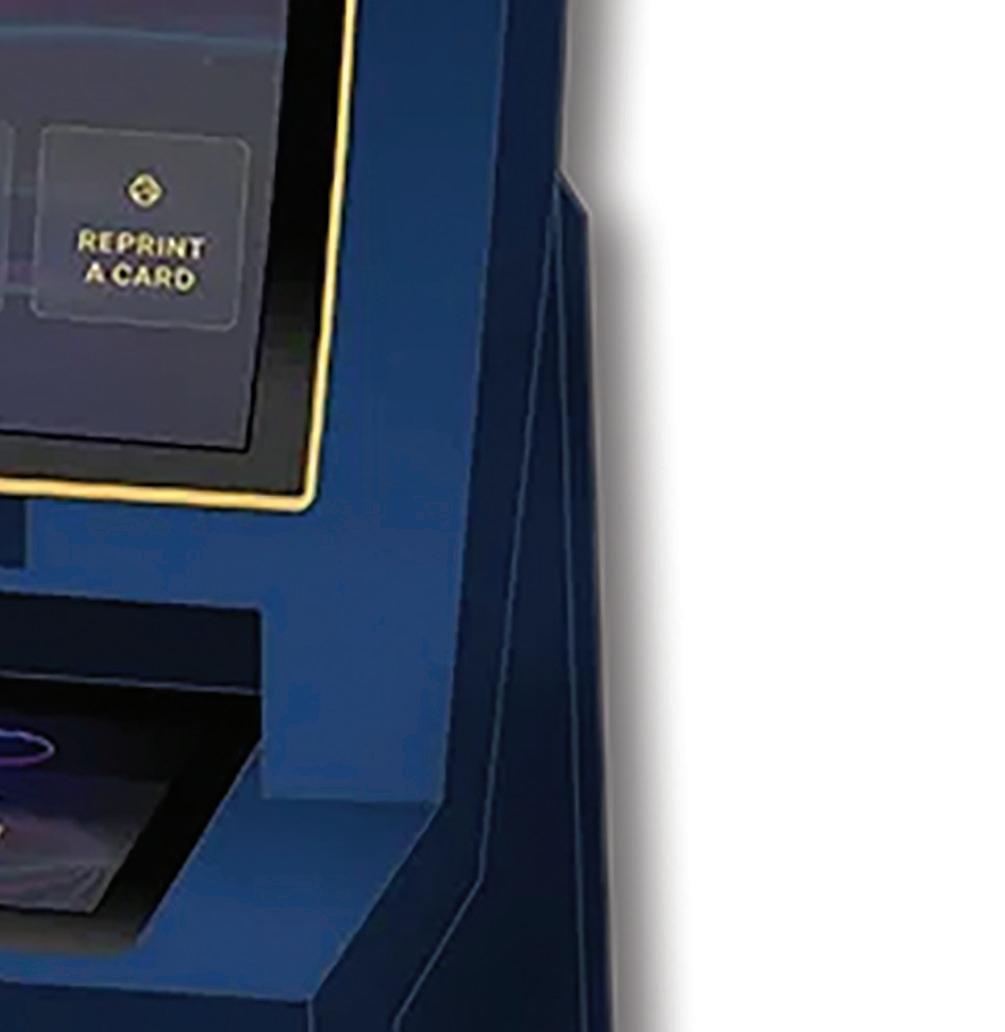

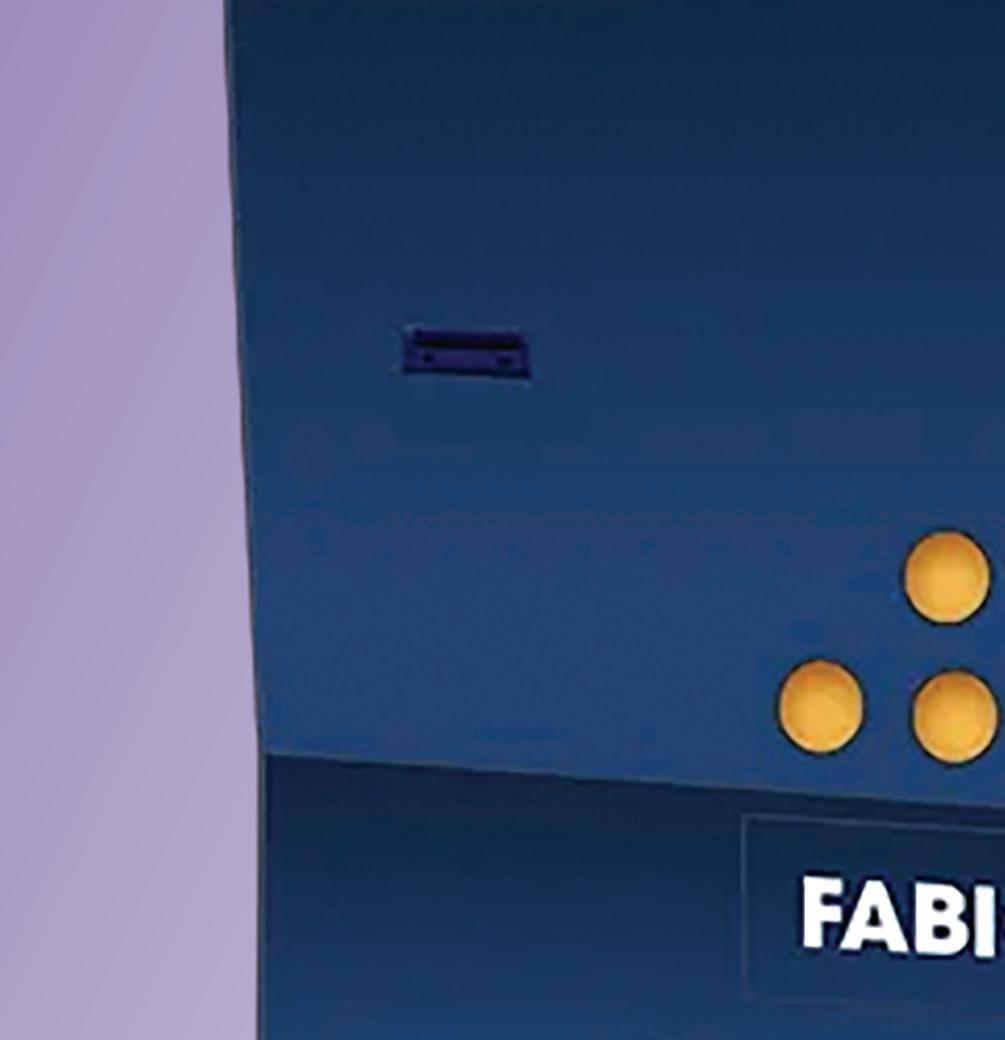




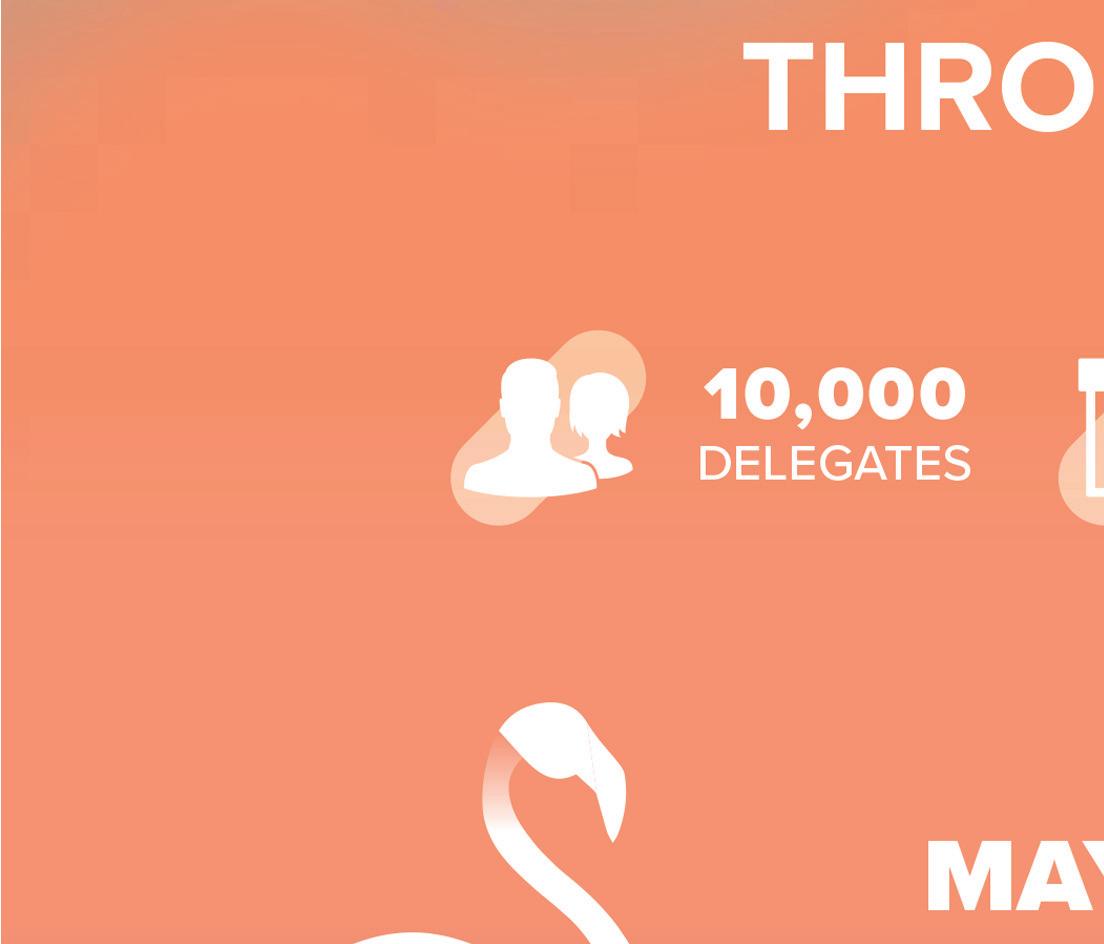


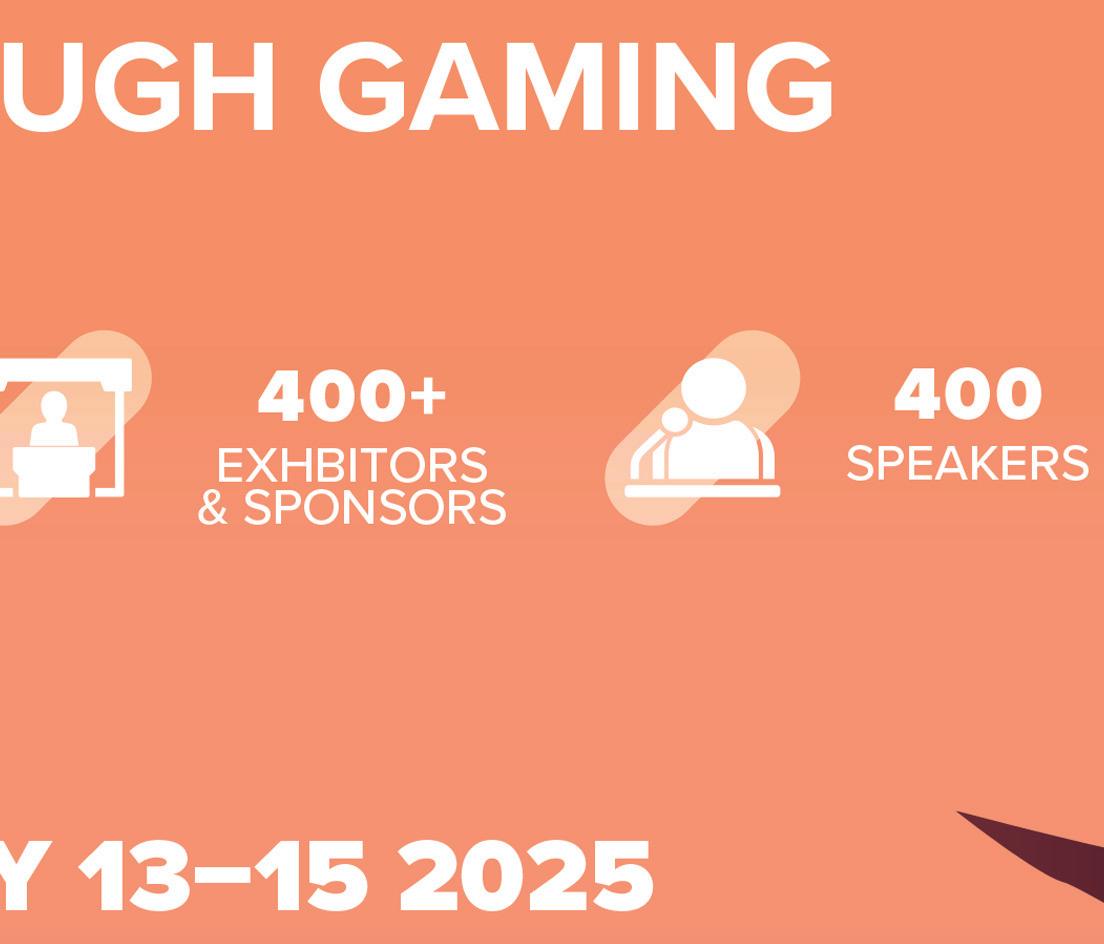
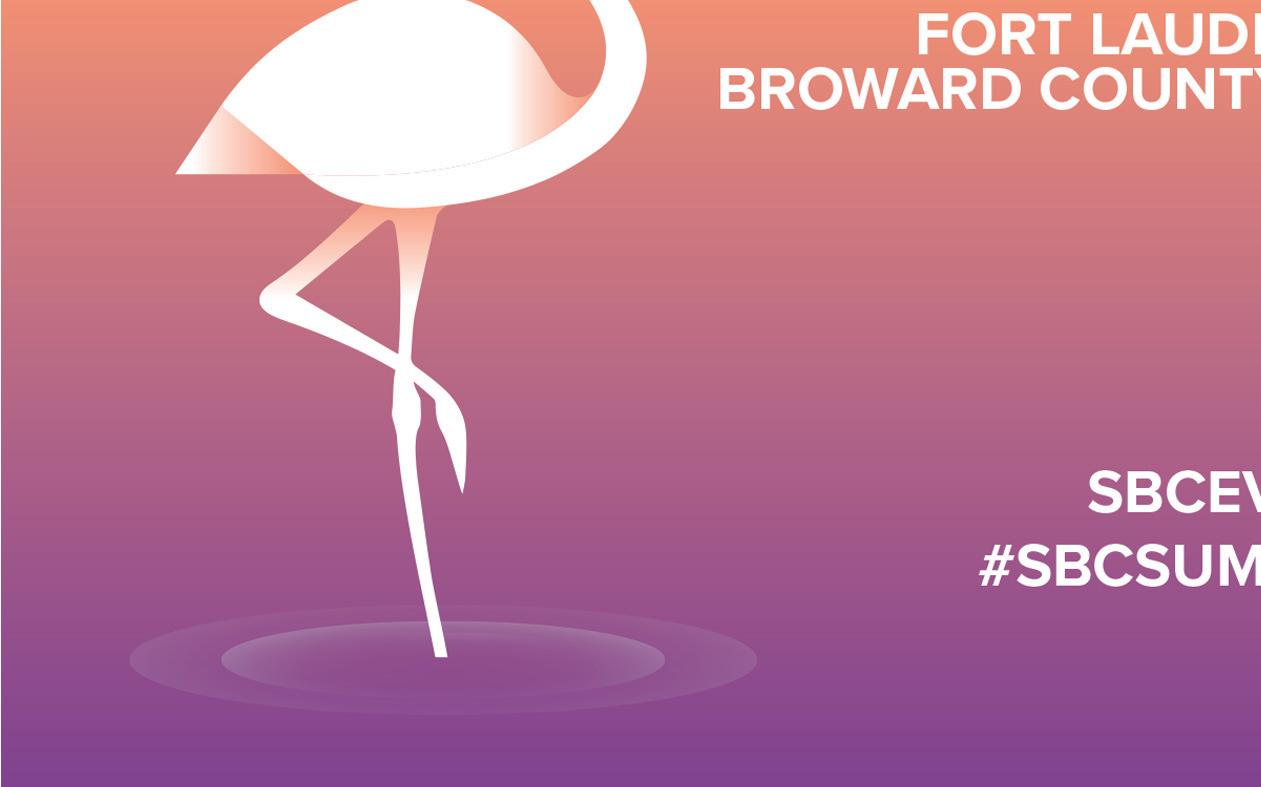
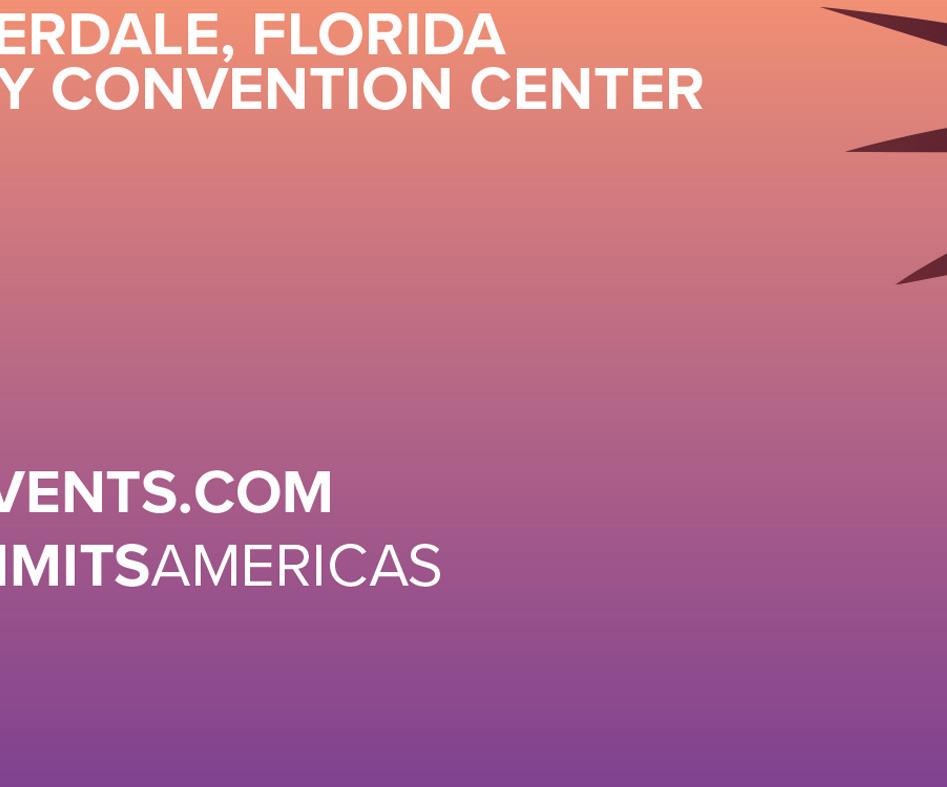


Interblock’s Xplosion Roulette redefines the classic Lucky Roulette experience with a complete hardware and software overhaul, bringing enhanced gameplay, improved mathematics and next-level excitement to the casino floor. Xplosion Roulette revolutionizes the traditional roulette experience with its Xplosive Odds, where randomly generated multipliers offer payouts of up to 500x. This high-energy feature increases player engagement and excitement, making every spin more rewarding.




Built with advanced hardware and software upgrades, Xplosion Roulette ensures seamless gameplay, enhanced reliability and faster performance. Its stateof-the-art projection technology delivers stunning visuals and immersive animations, creating a captivating atmosphere that keeps players engaged longer.
Xplosion Roulette is designed to increase player excitement, extend game time and maximize revenue potential for casinos. Whether players are drawn in by the thrill of high multipliers or the modern, immersive design, this next-generation roulette
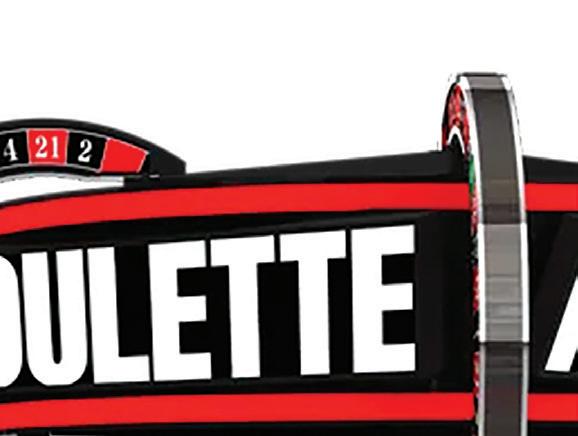
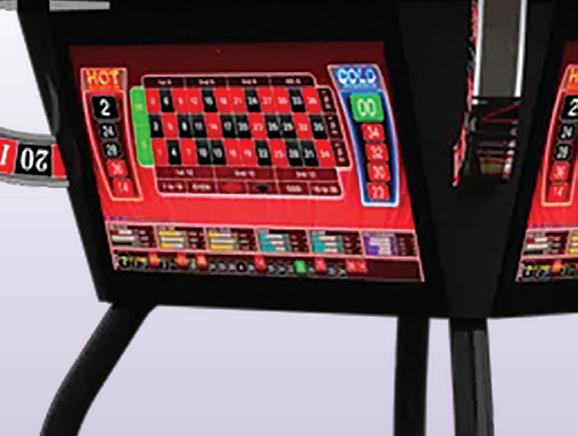
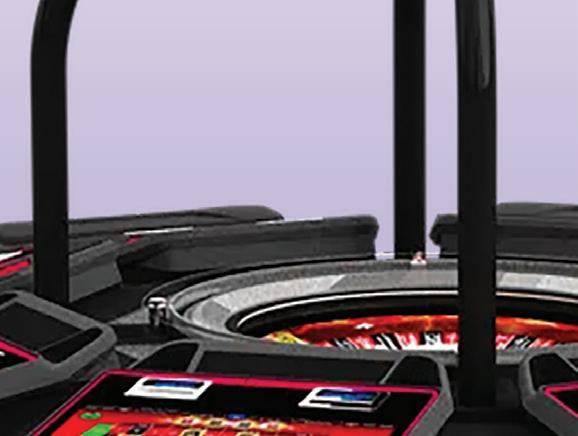
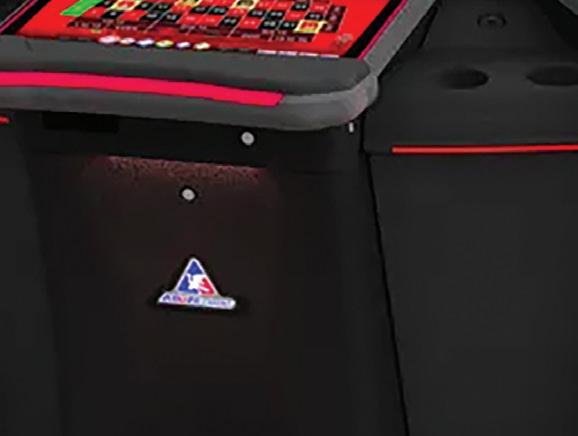

experience is a must-have addition to any gaming floor.
Due to the projector technology and amusement flare of the gaming interface, Interblock expects Xtreme Roulette to attract a different type of player, with 20 machines set for an initial rollout during Q2 2025, most of which will be seen on the Las Vegas strip. Along with numerous other products debuting prior to the Global Gaming Expo (G2E) event in Las Vegas, Interblock’s desire to create a defined area across casino floors will be brought to fruition by the conclusion of 2025.
